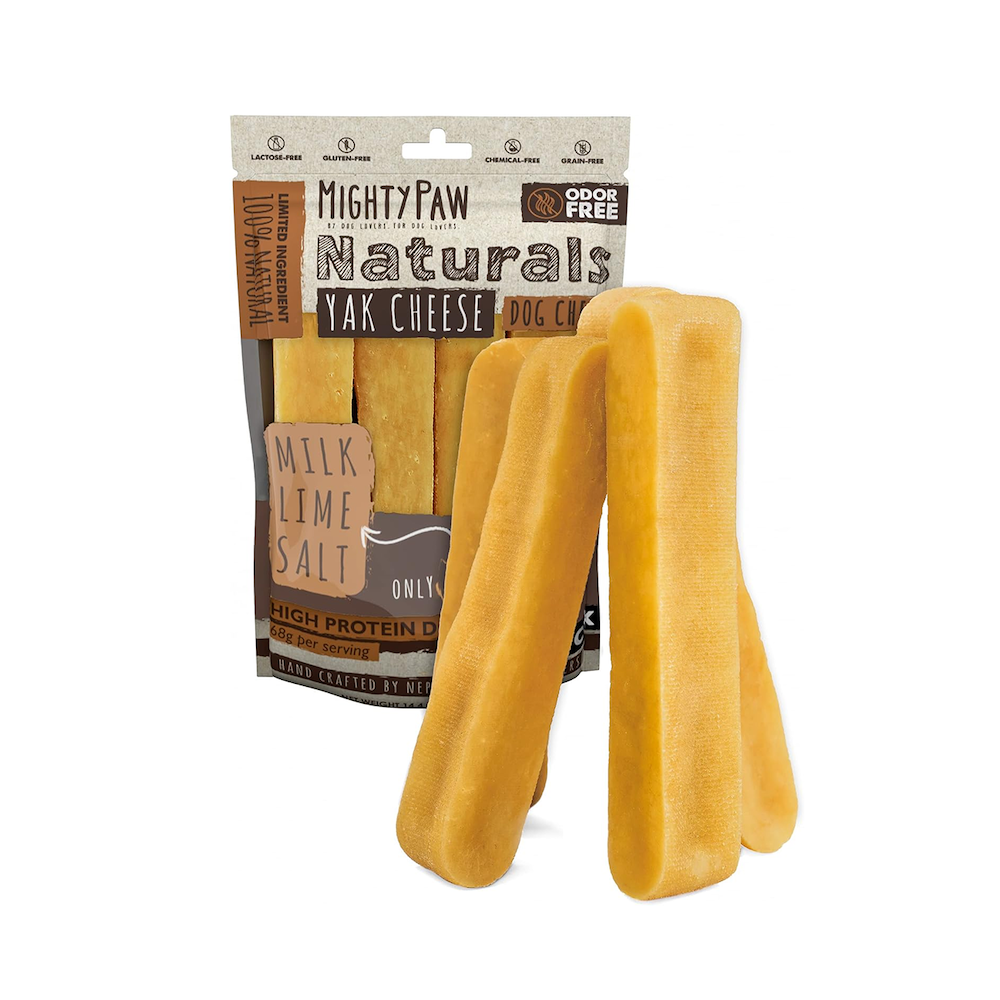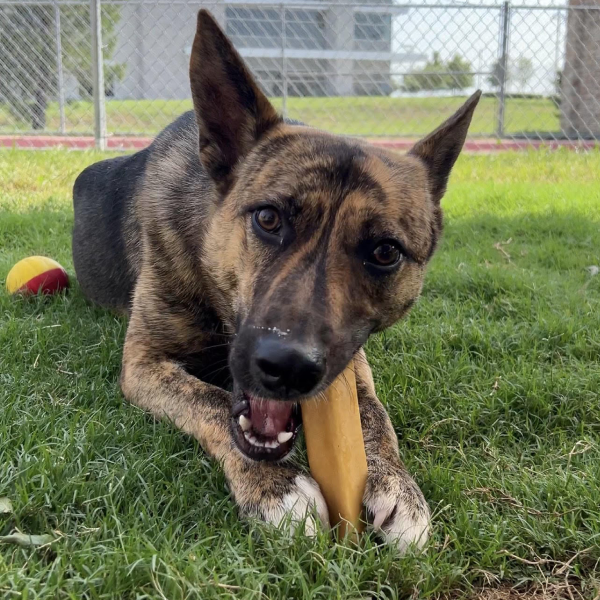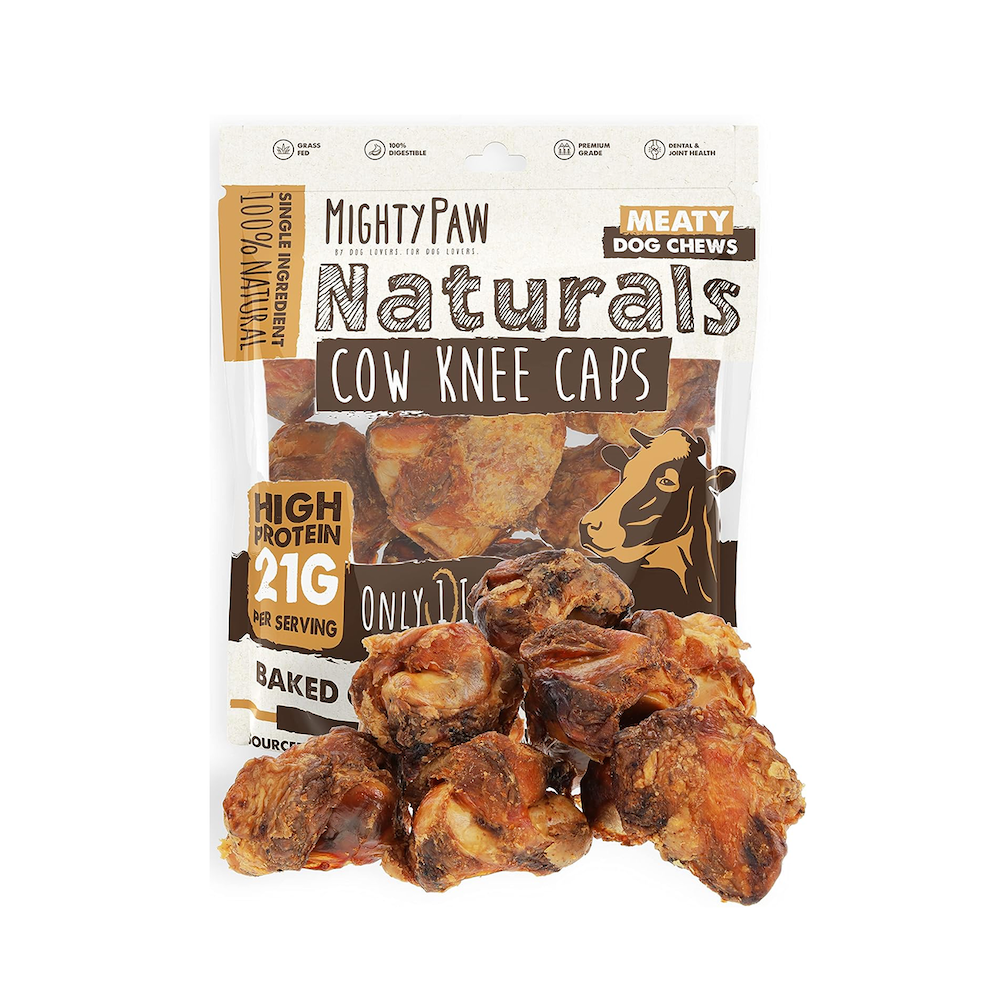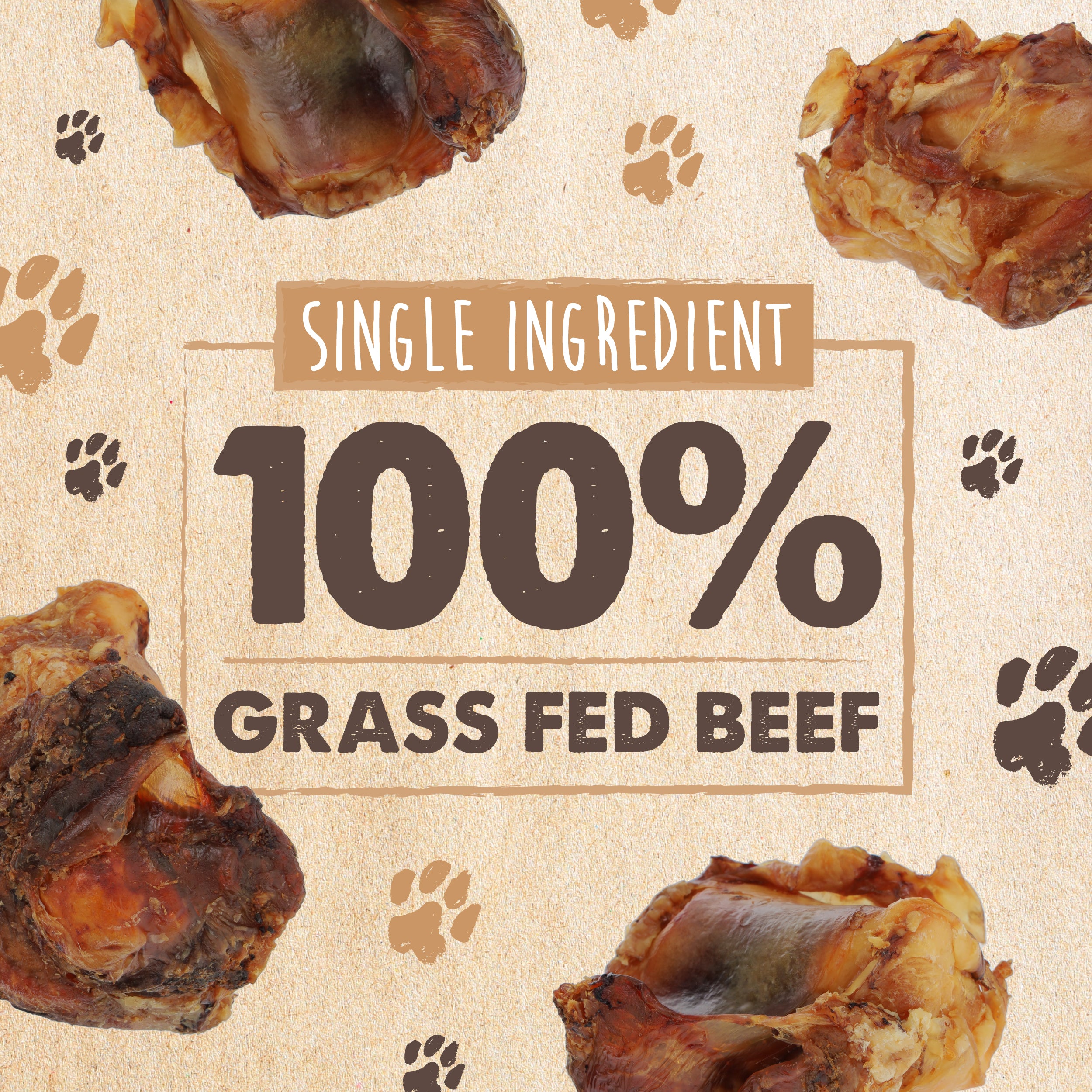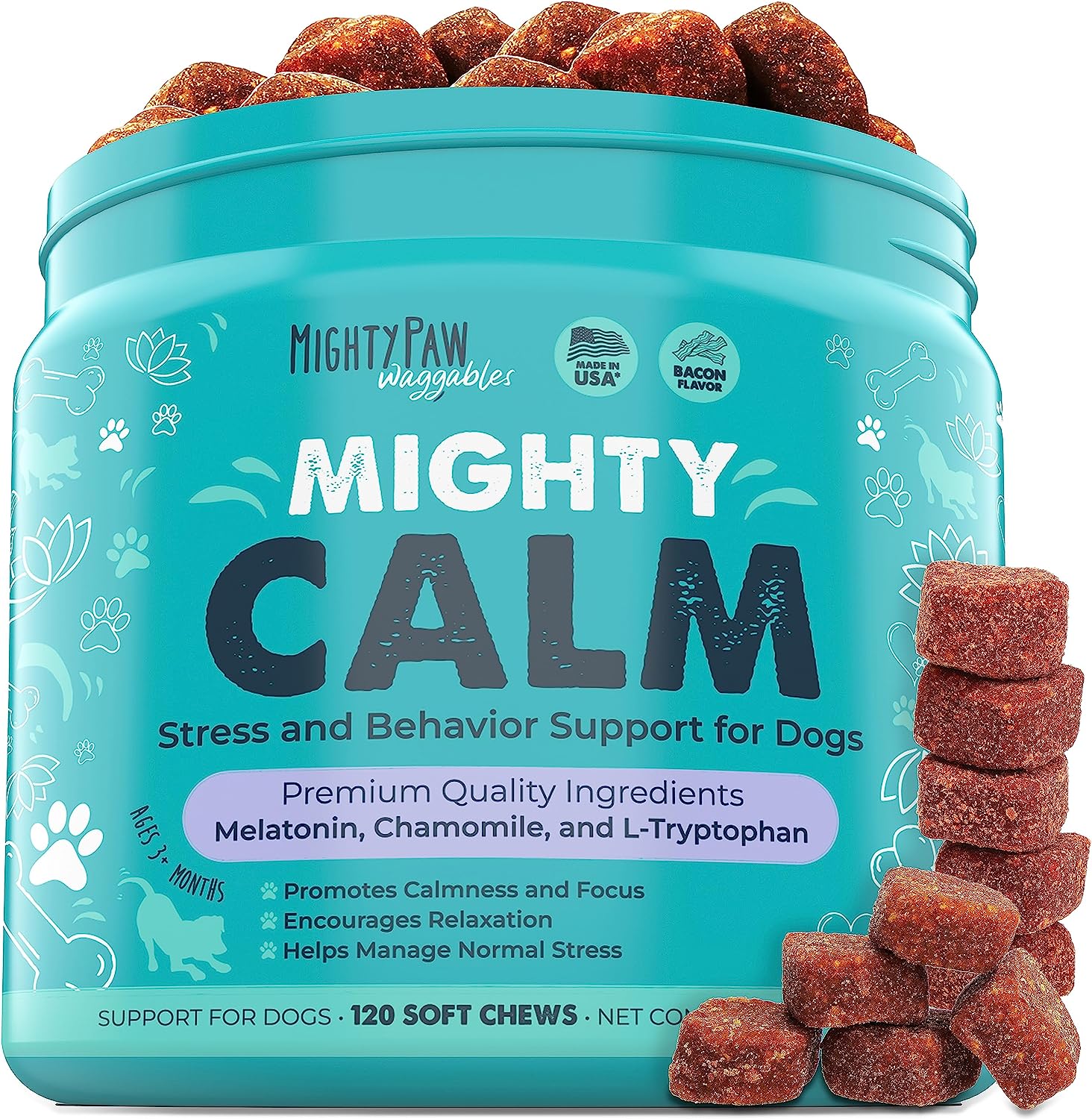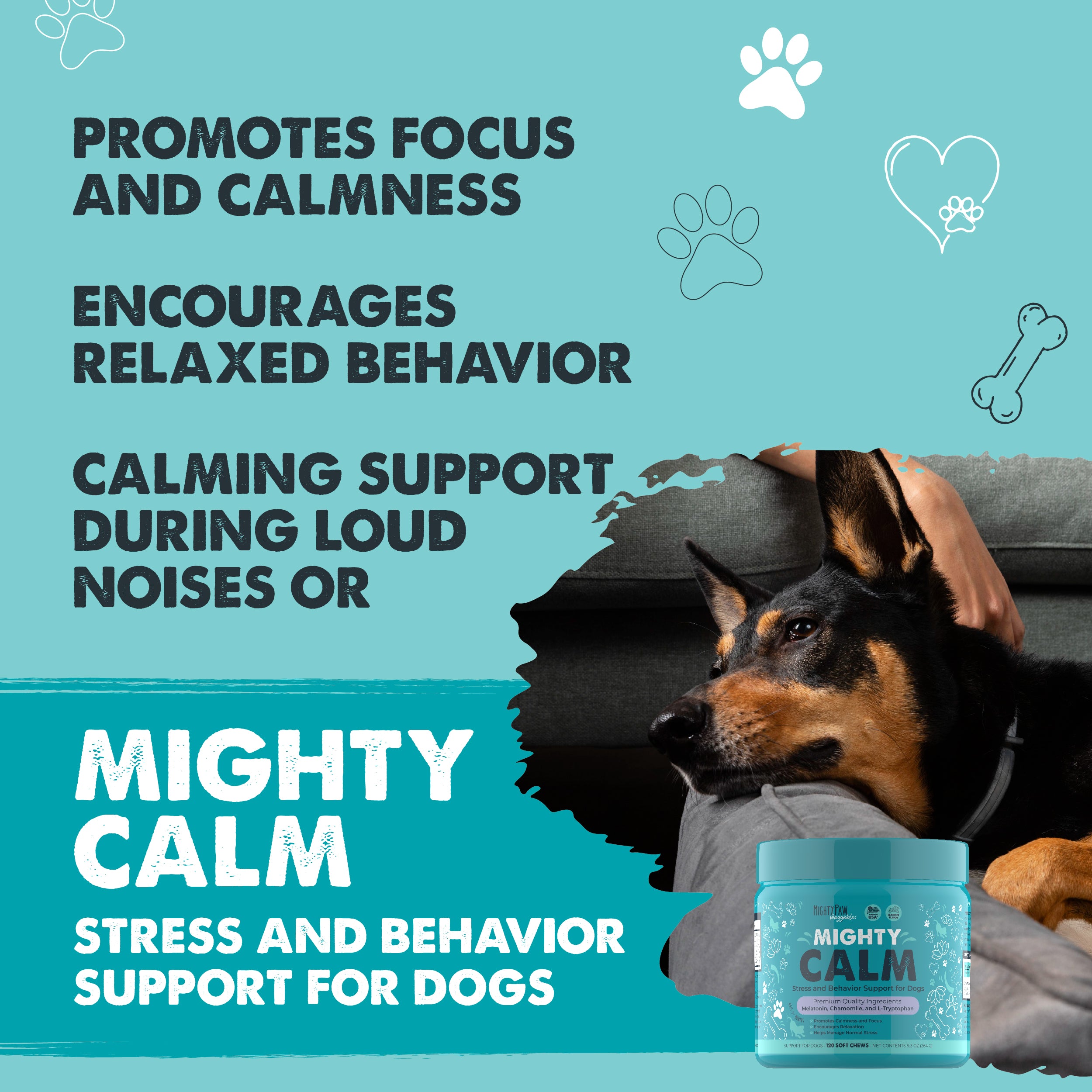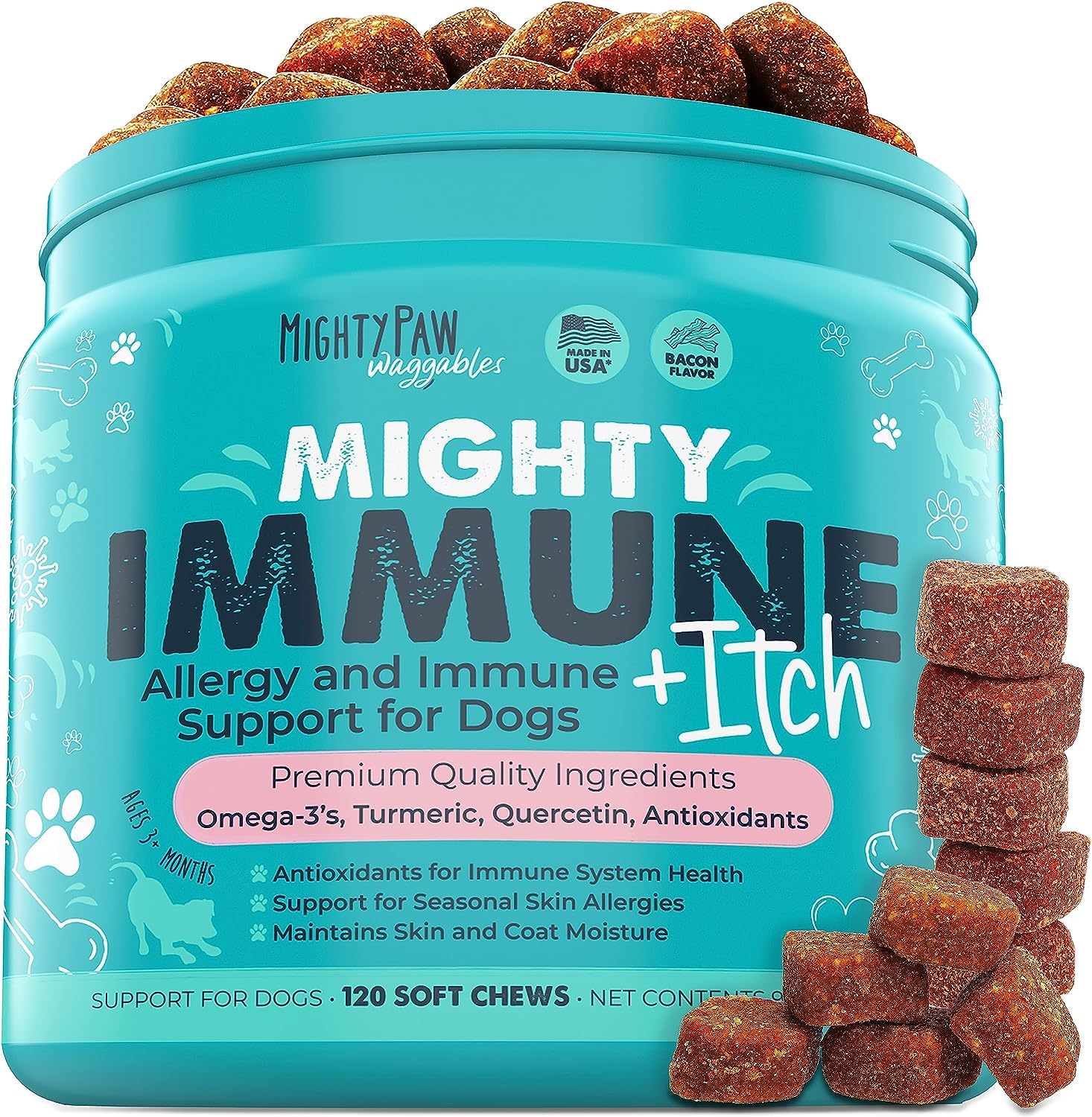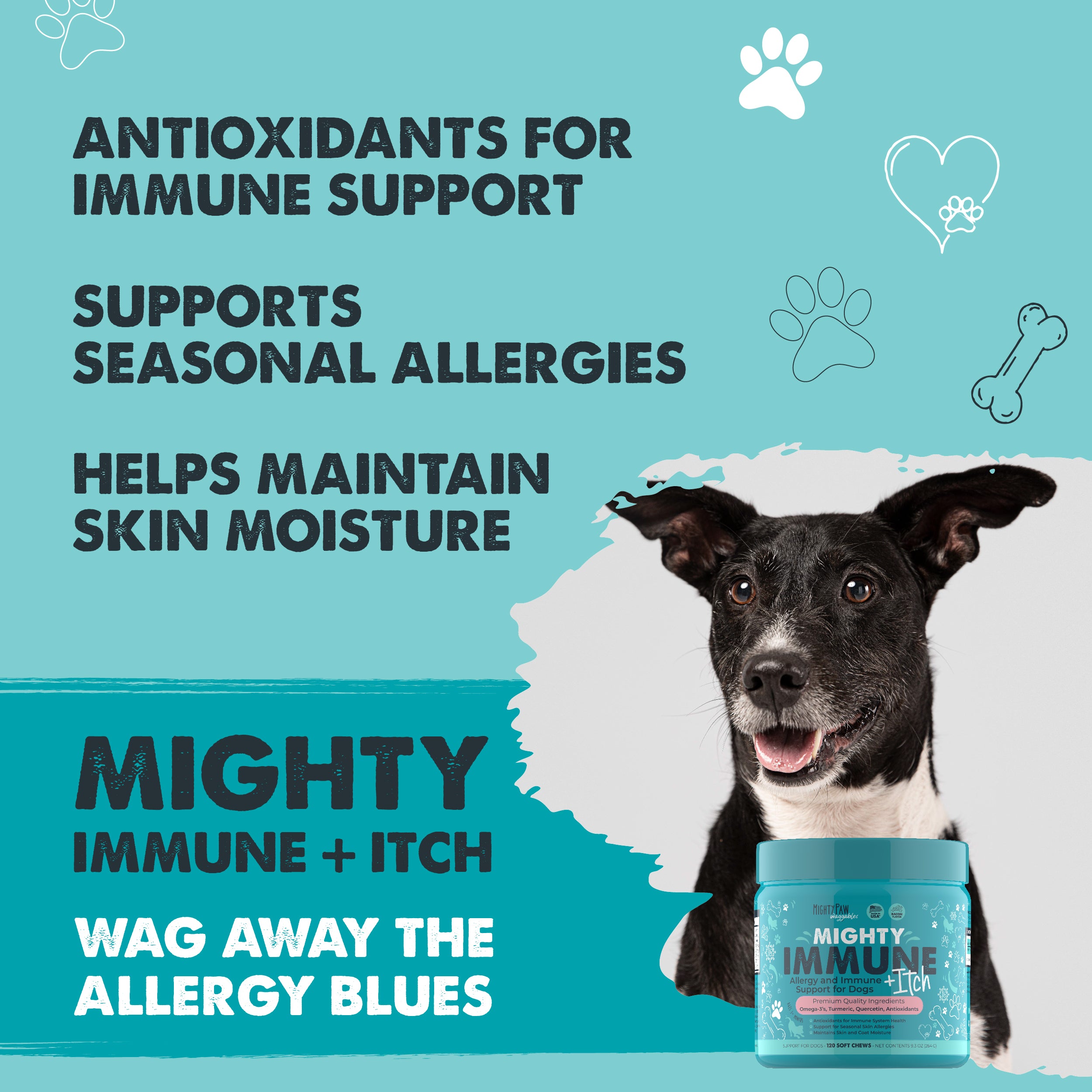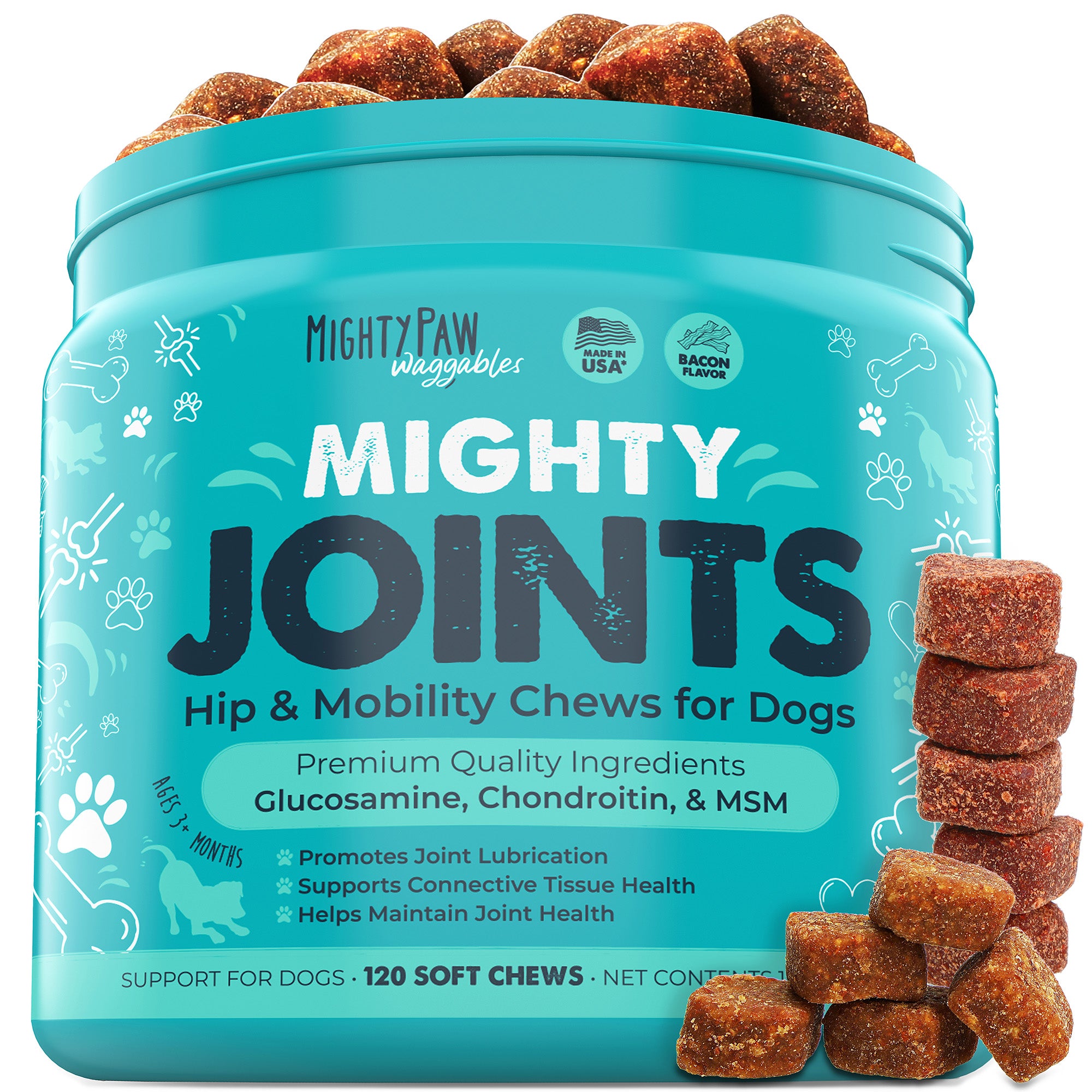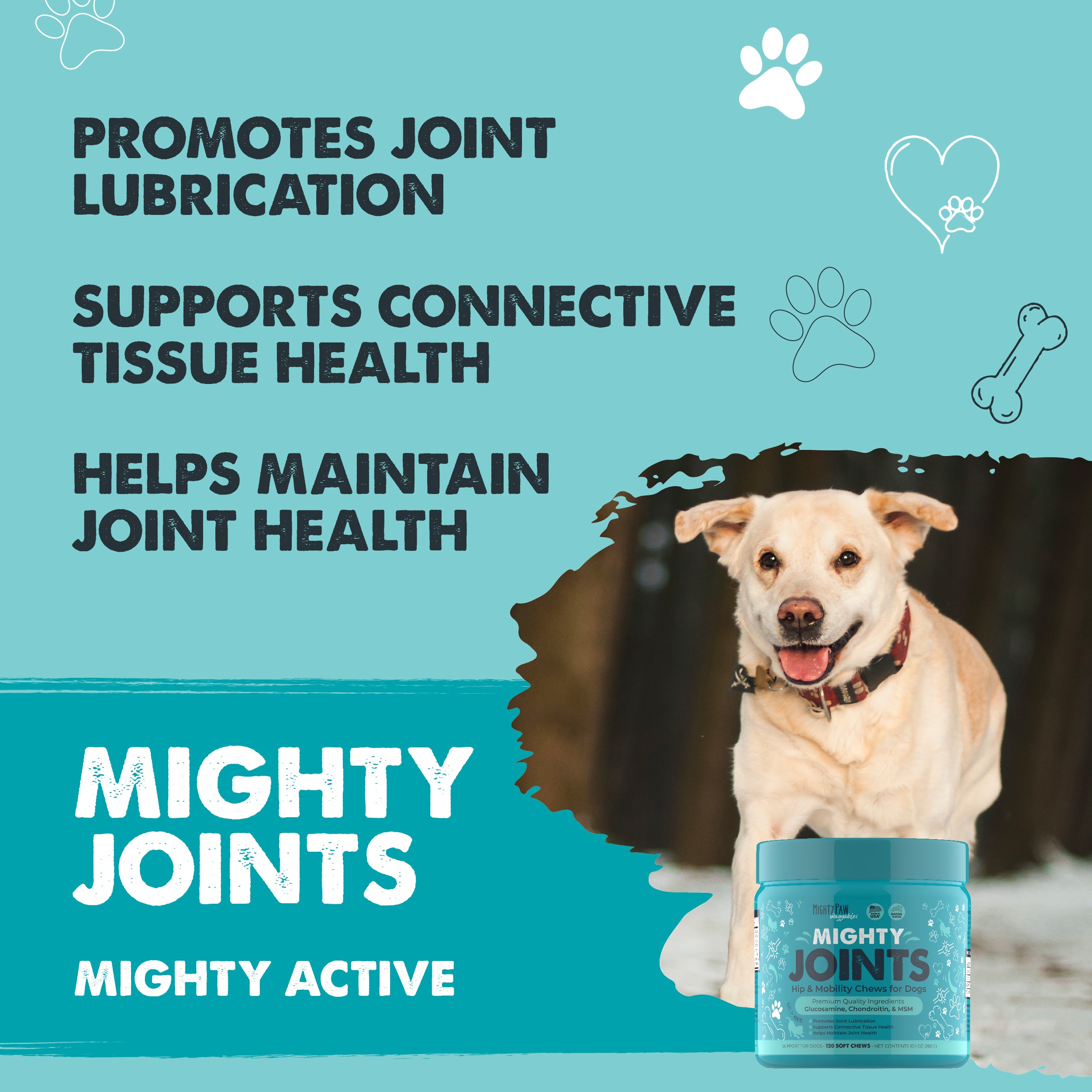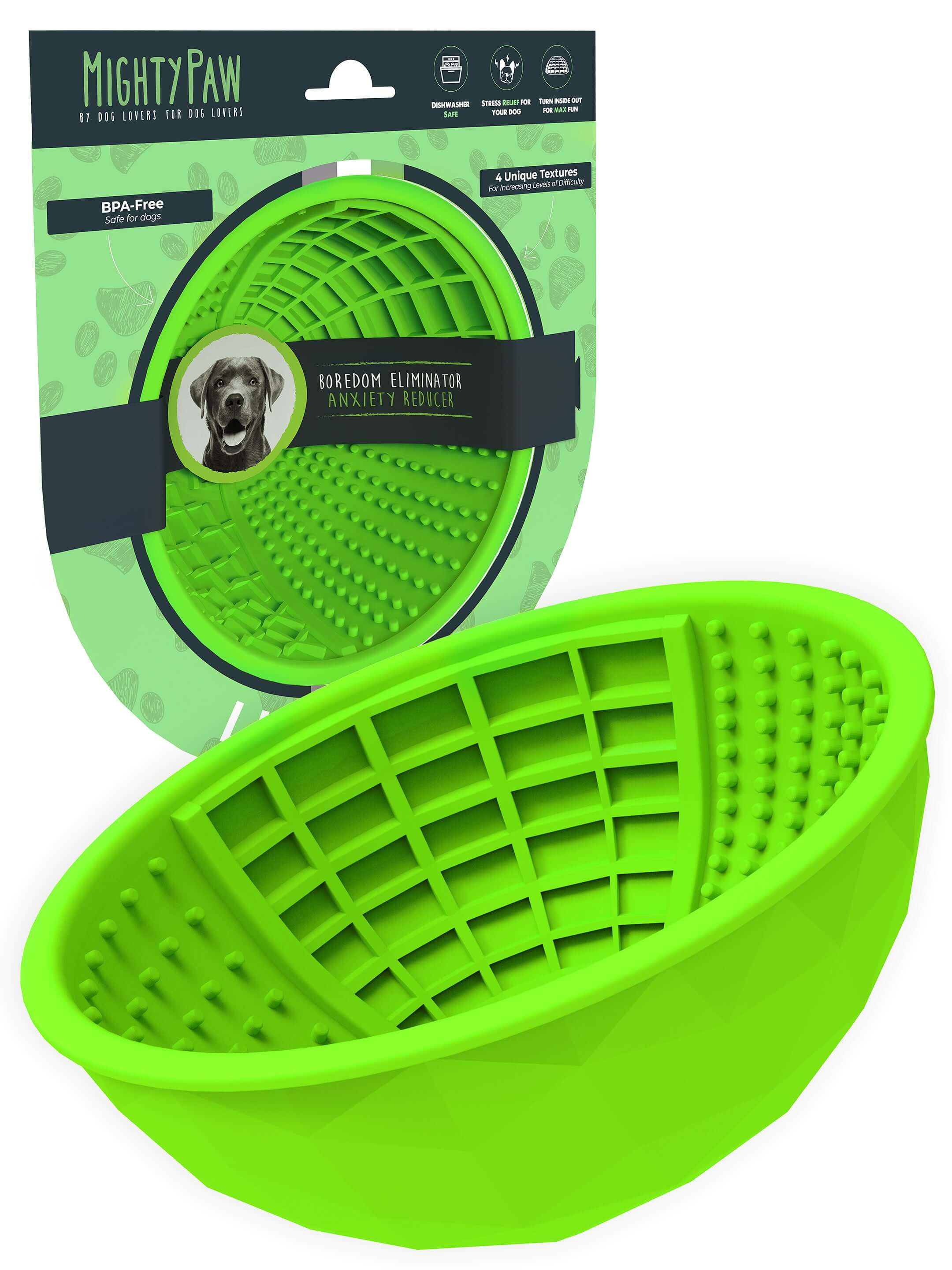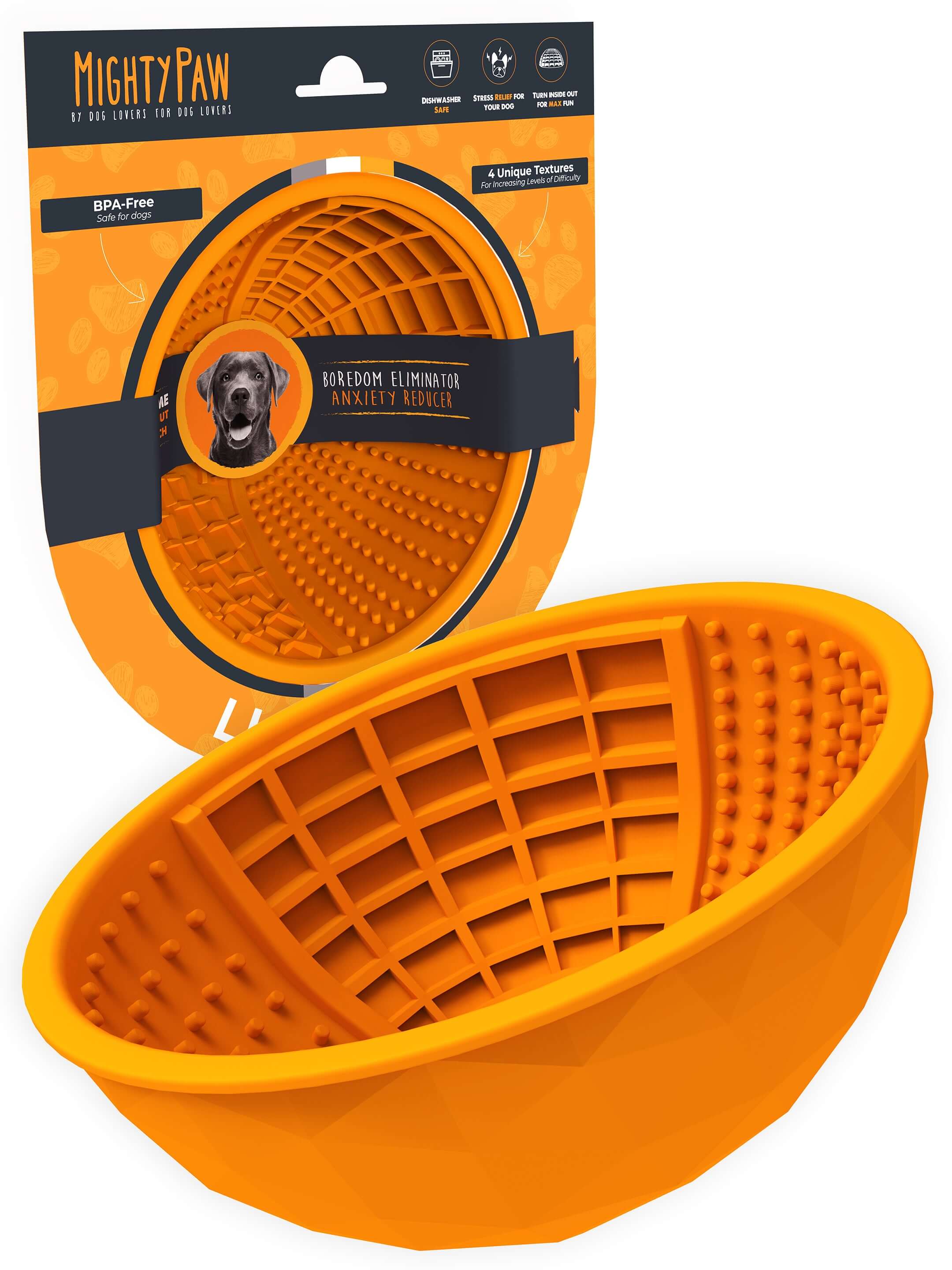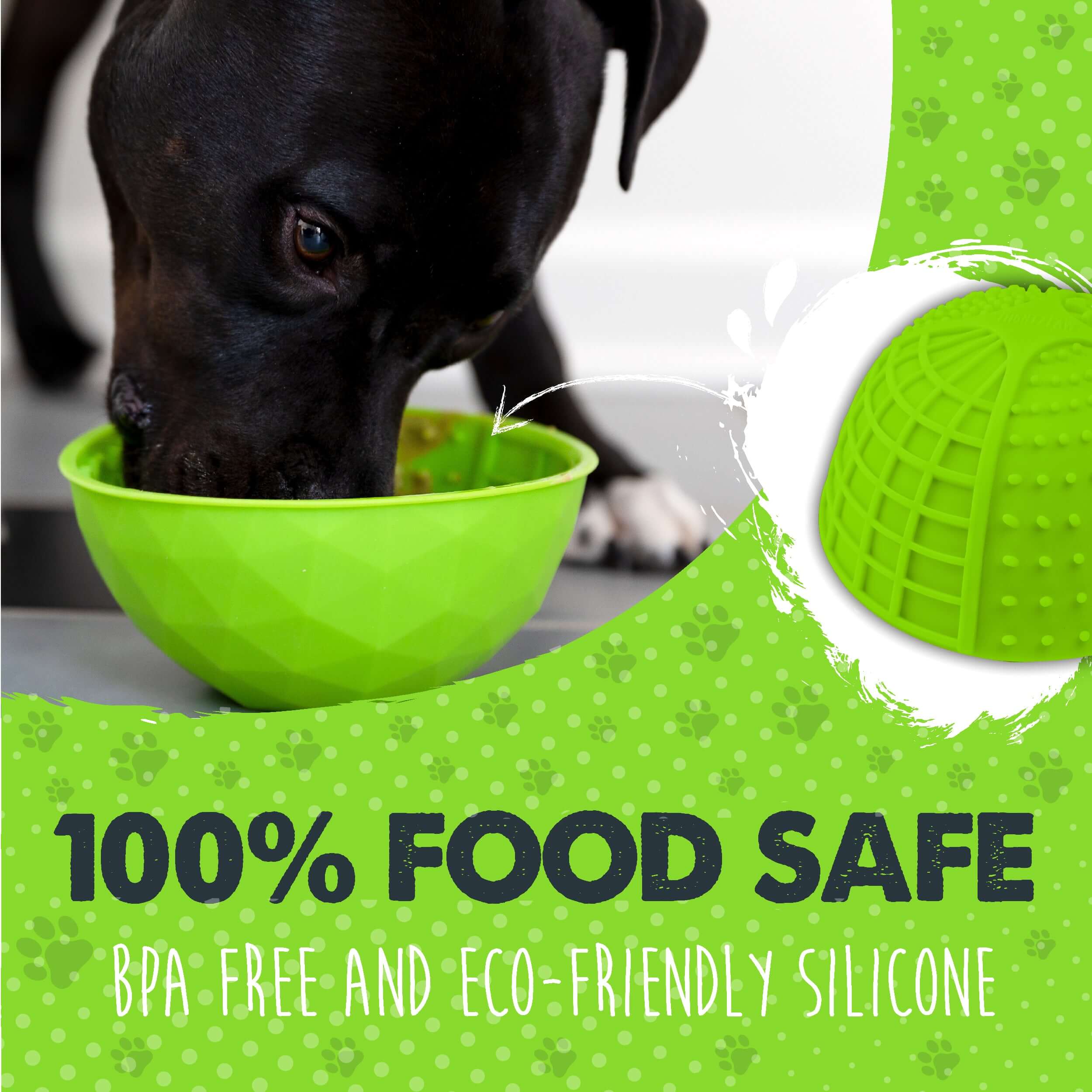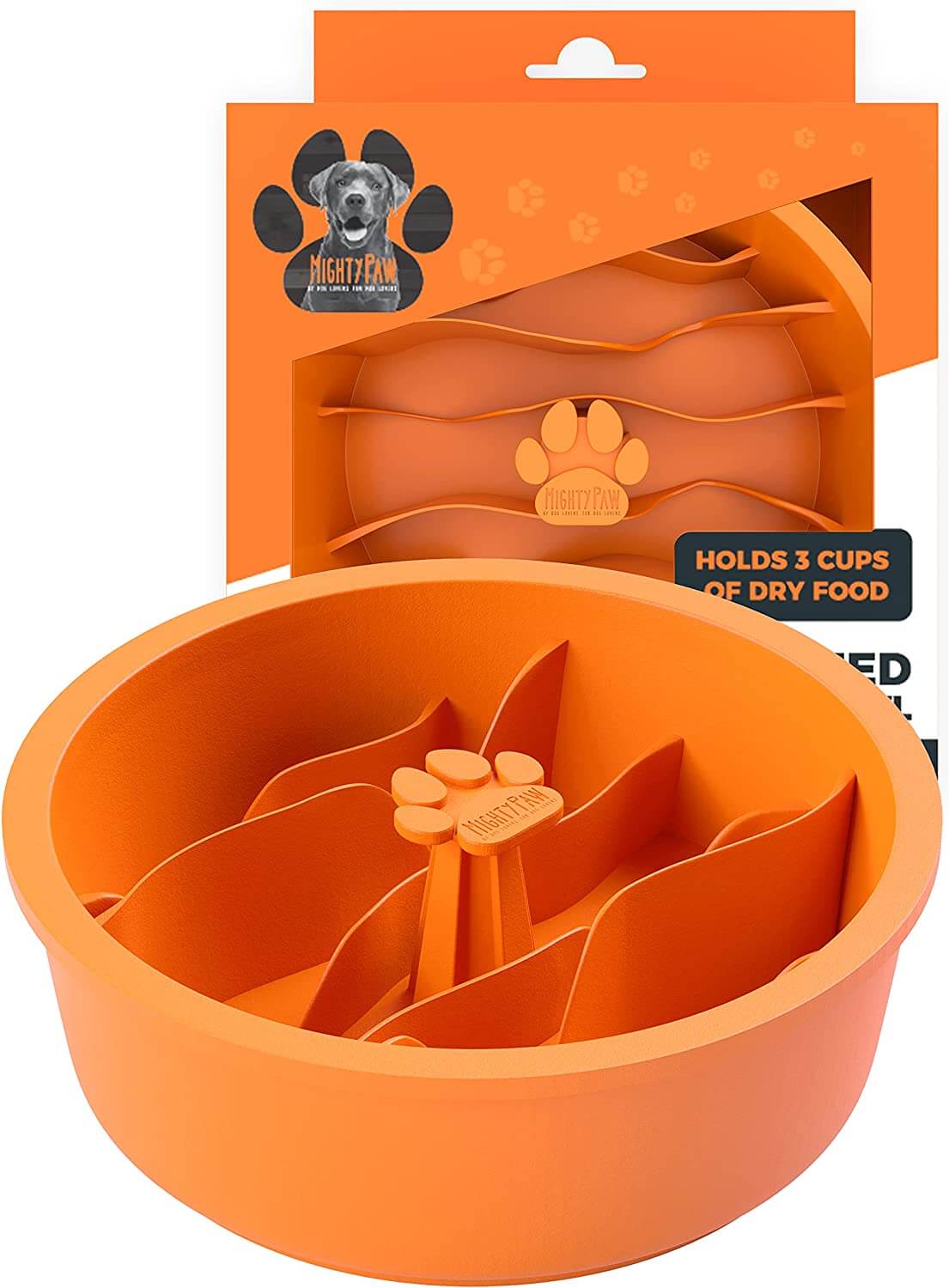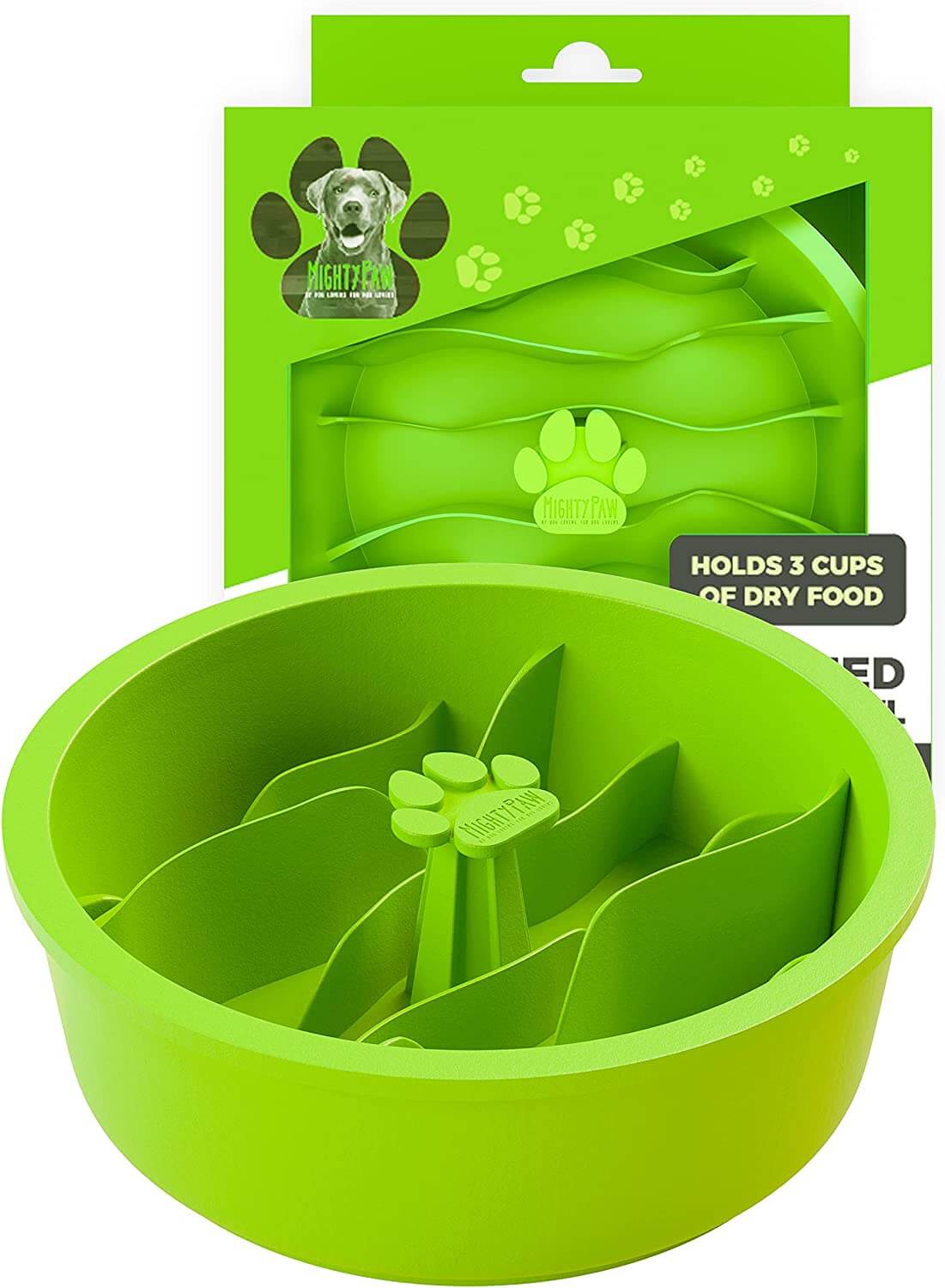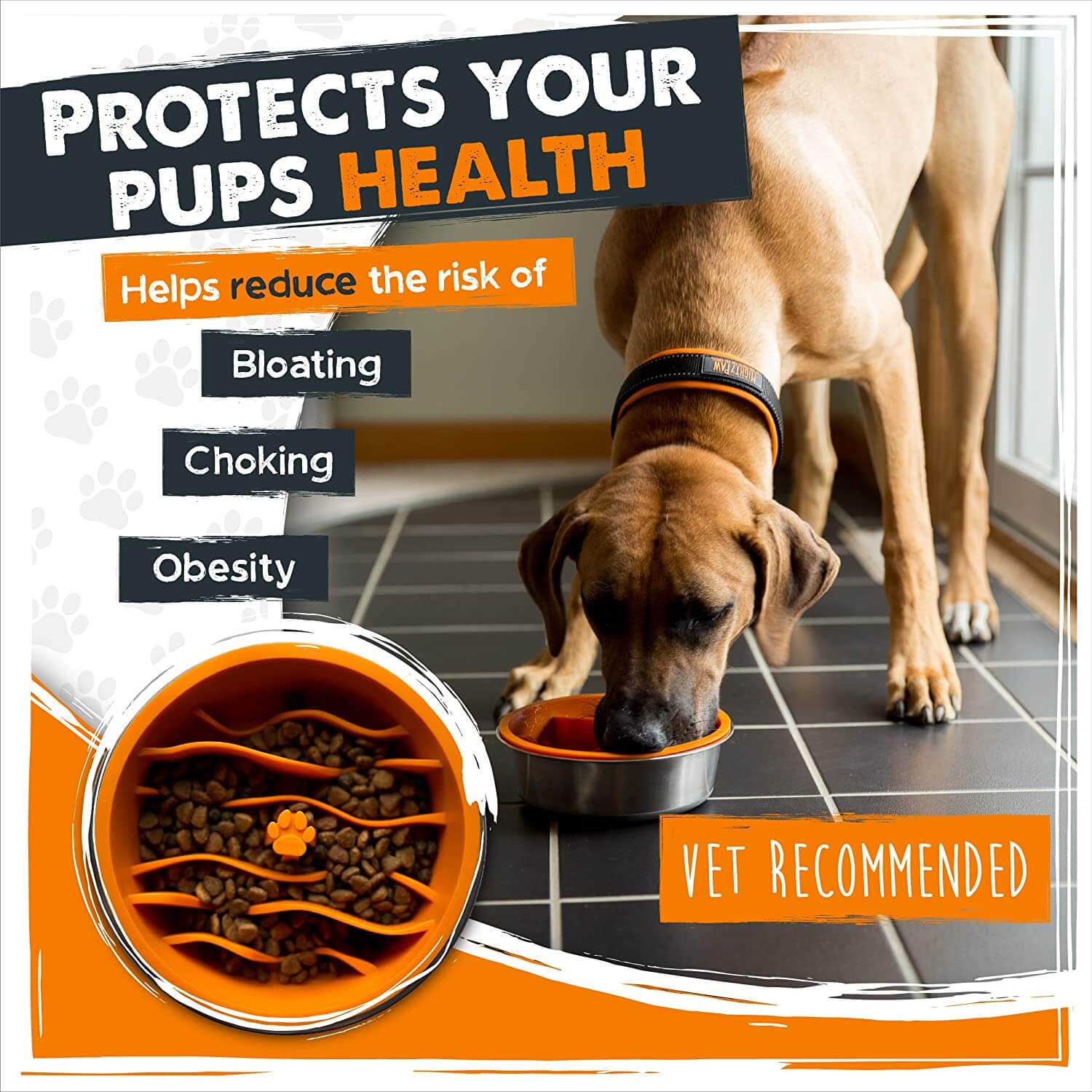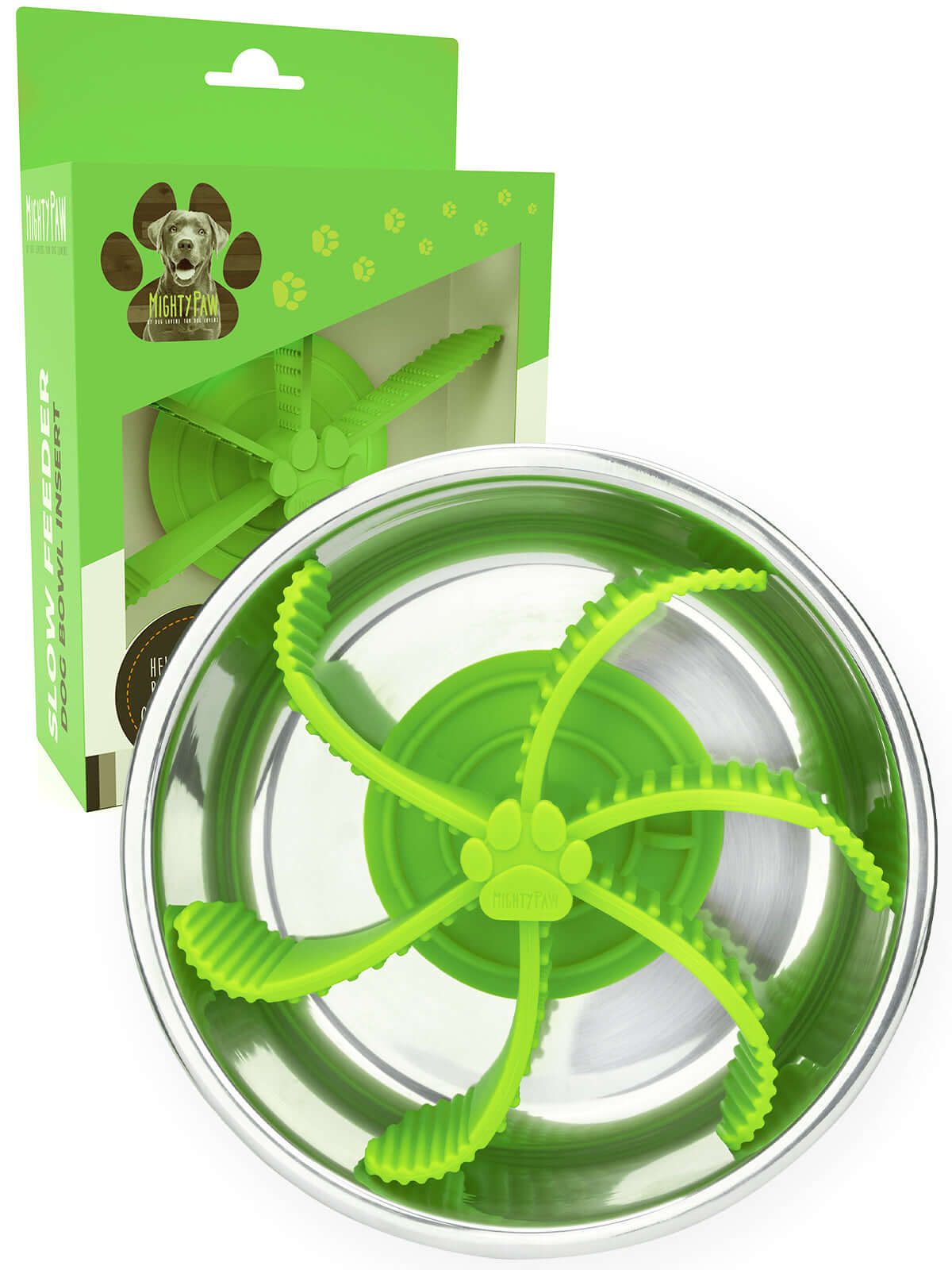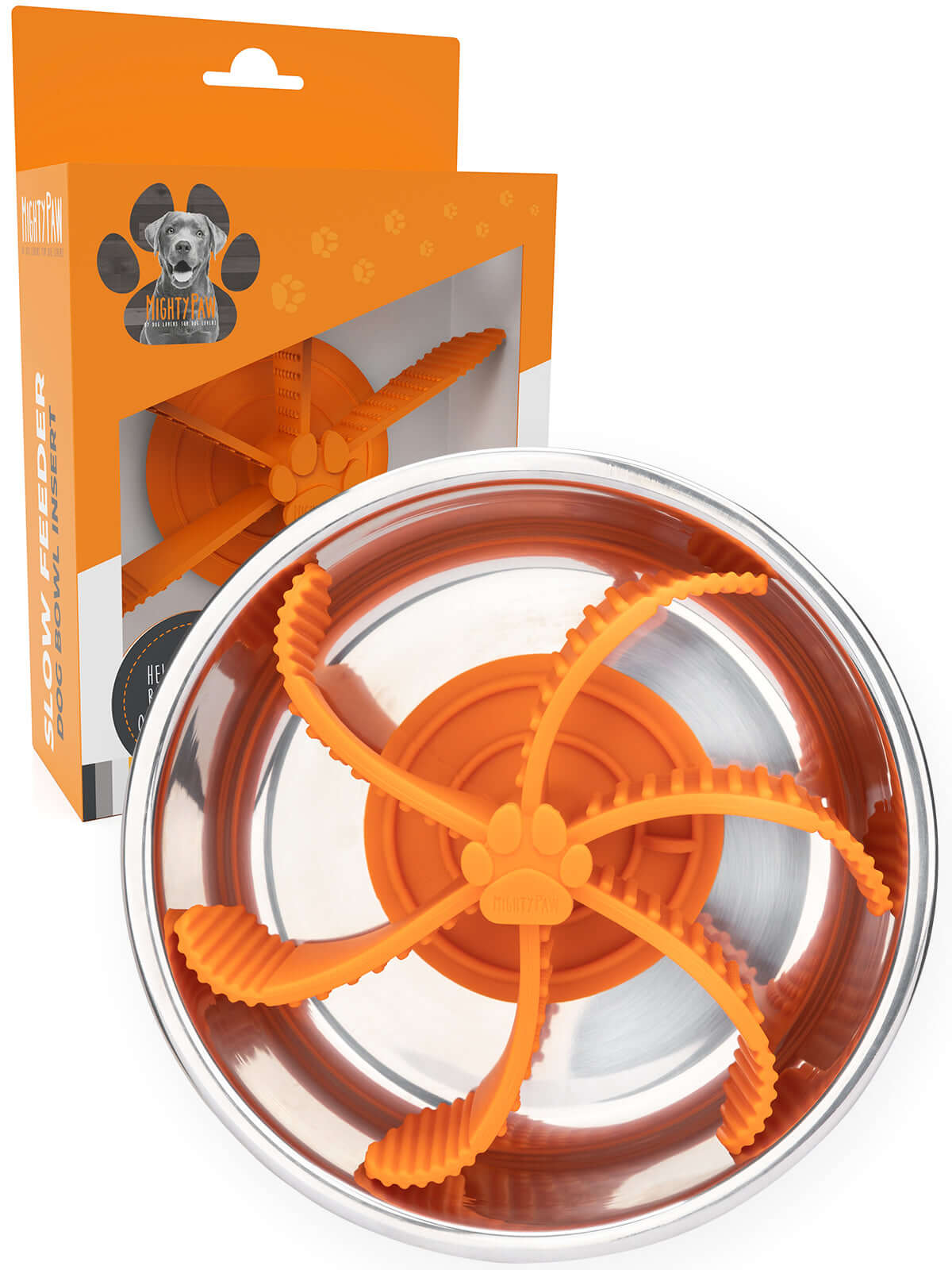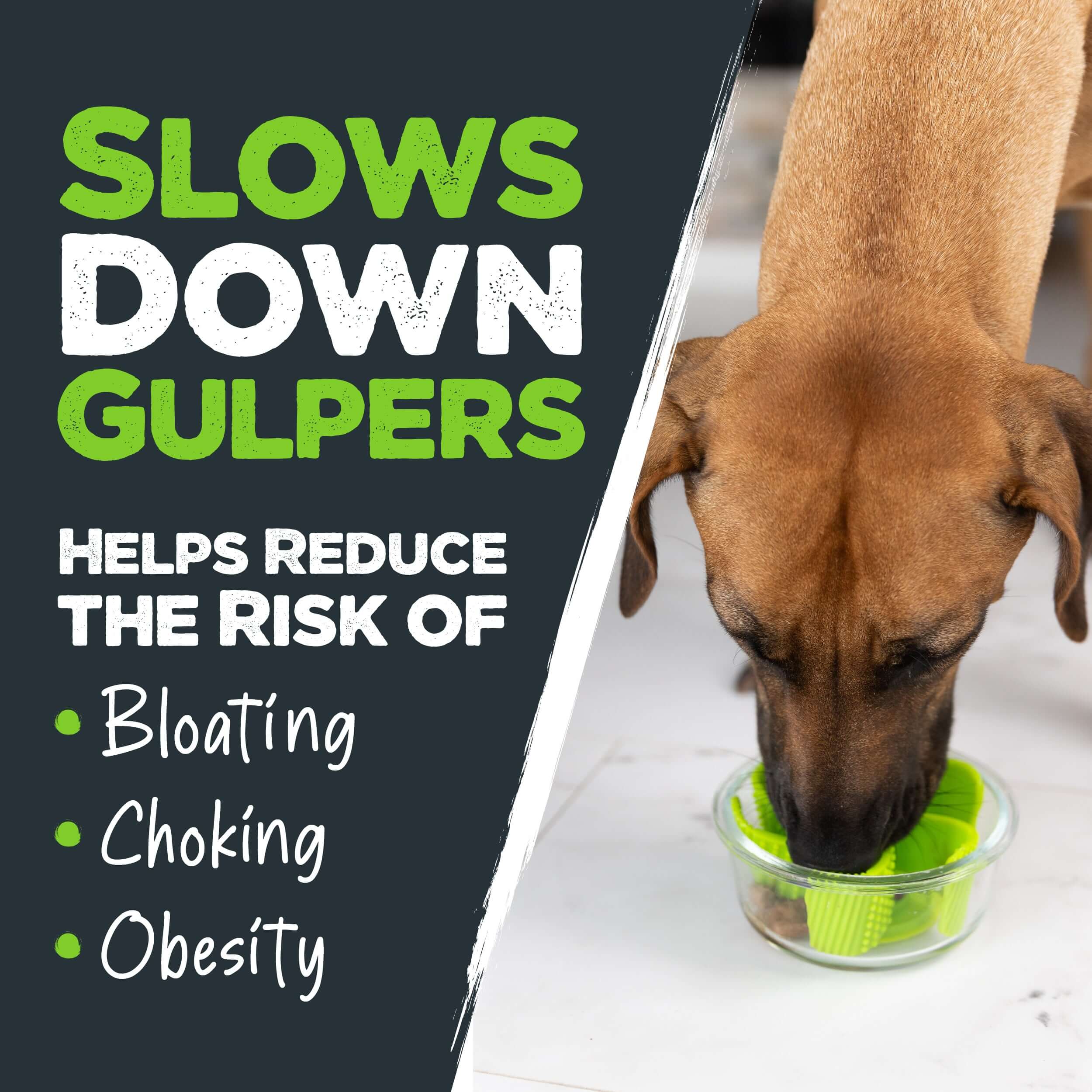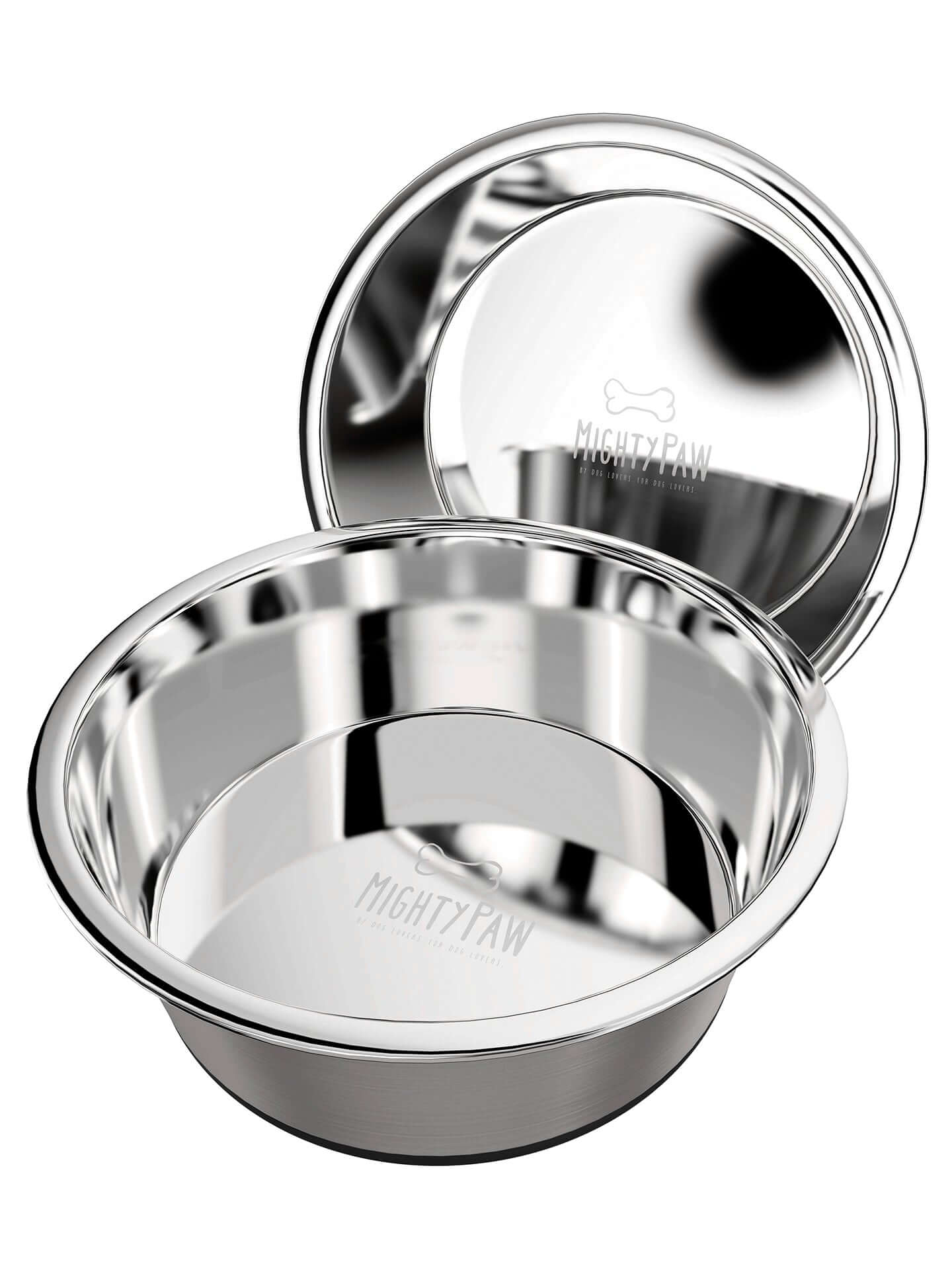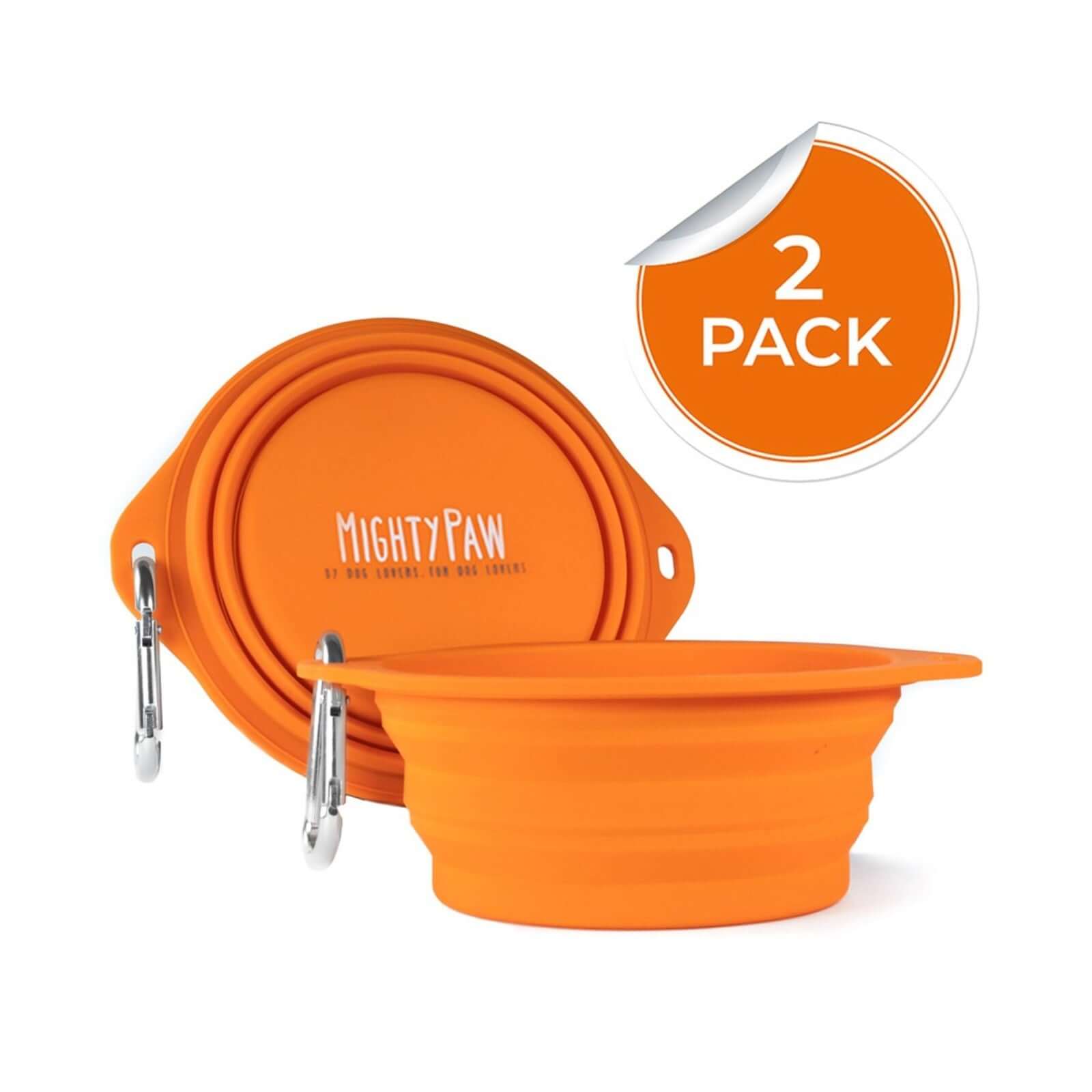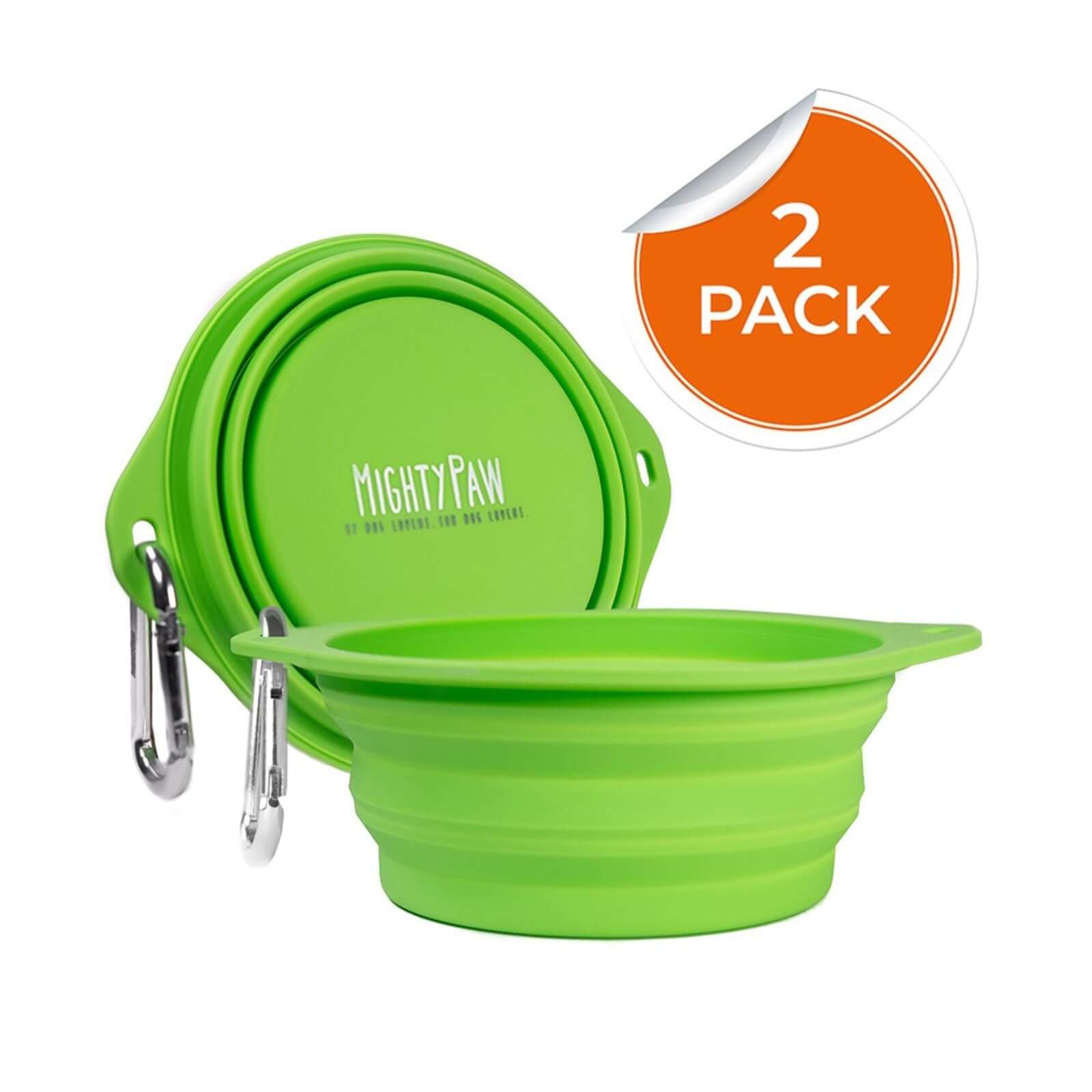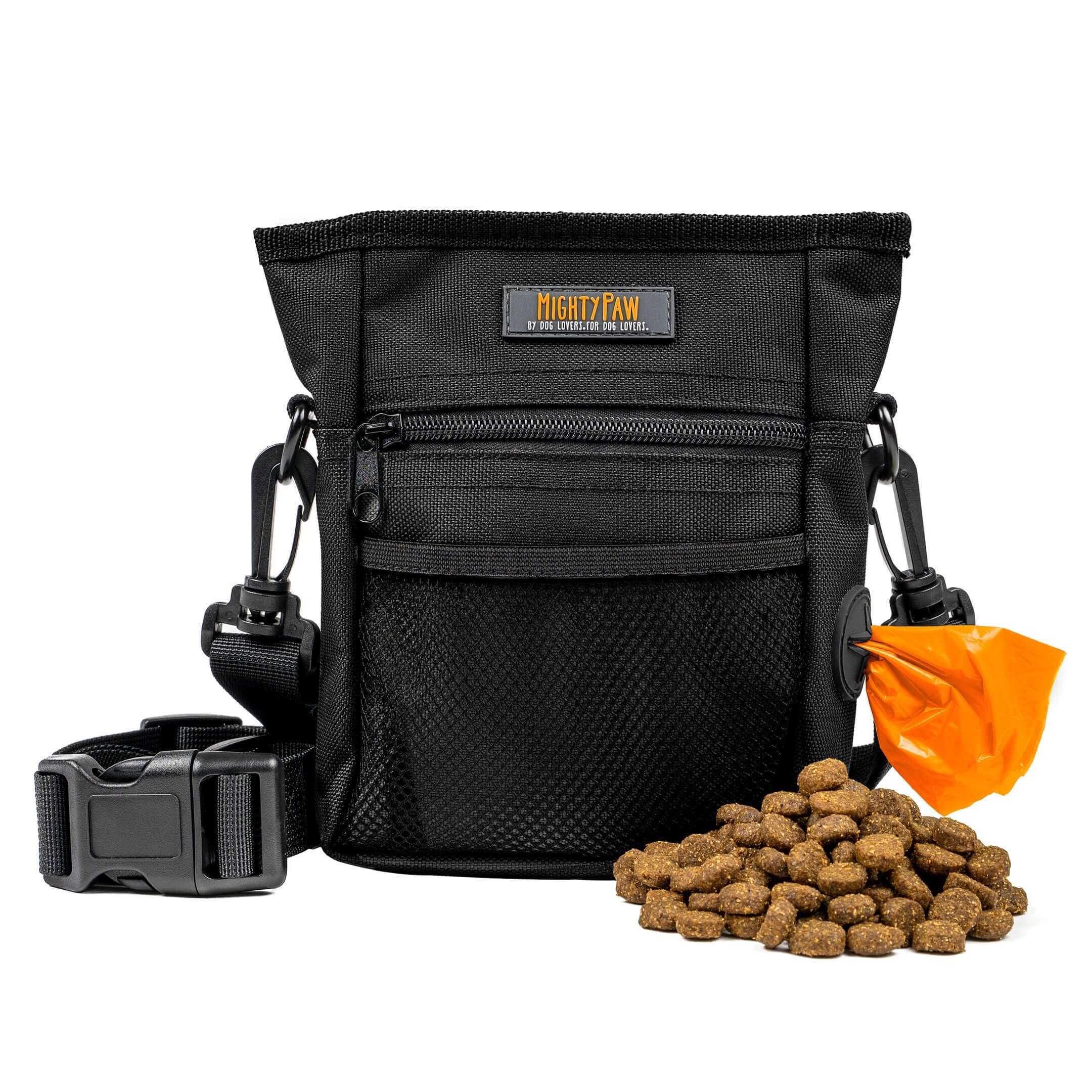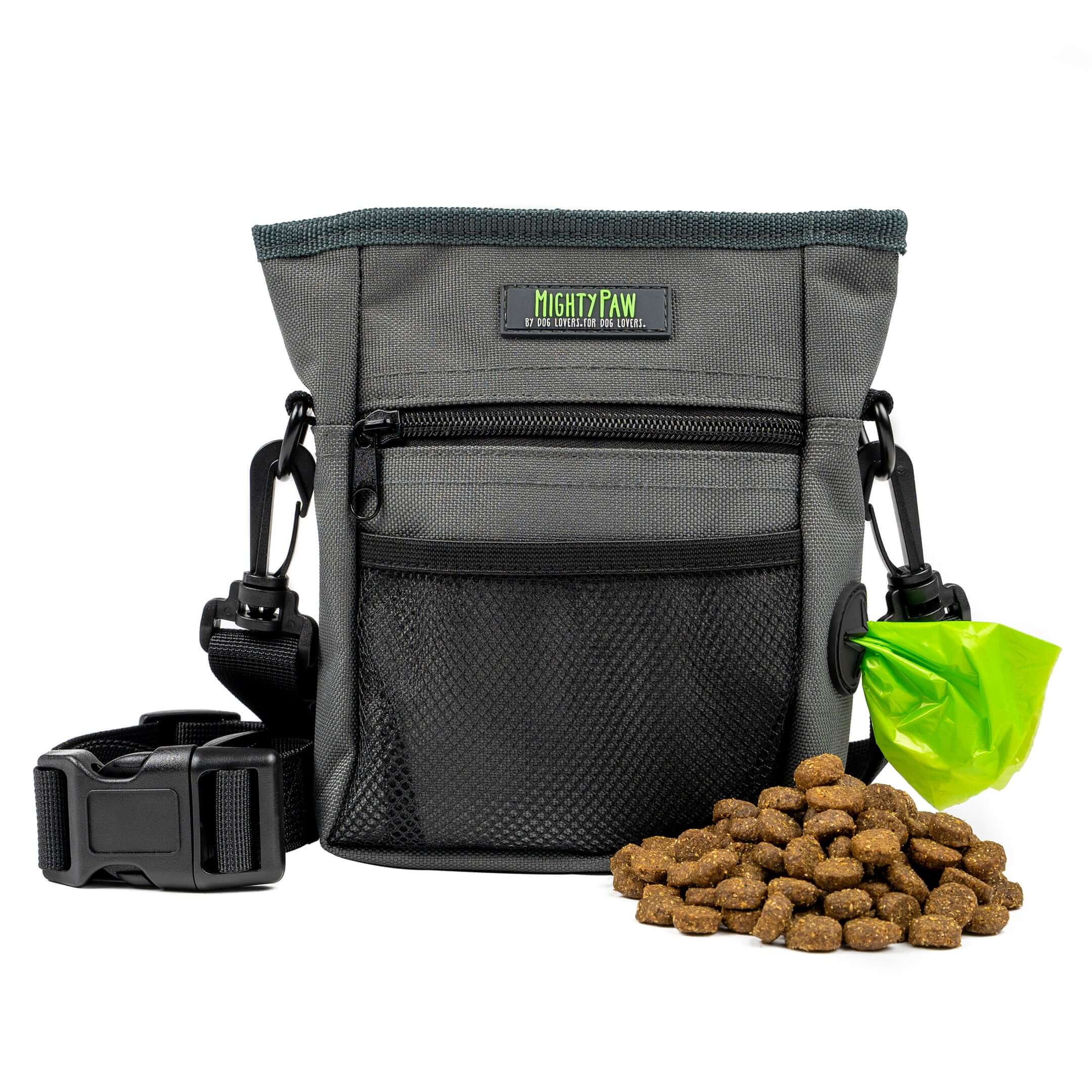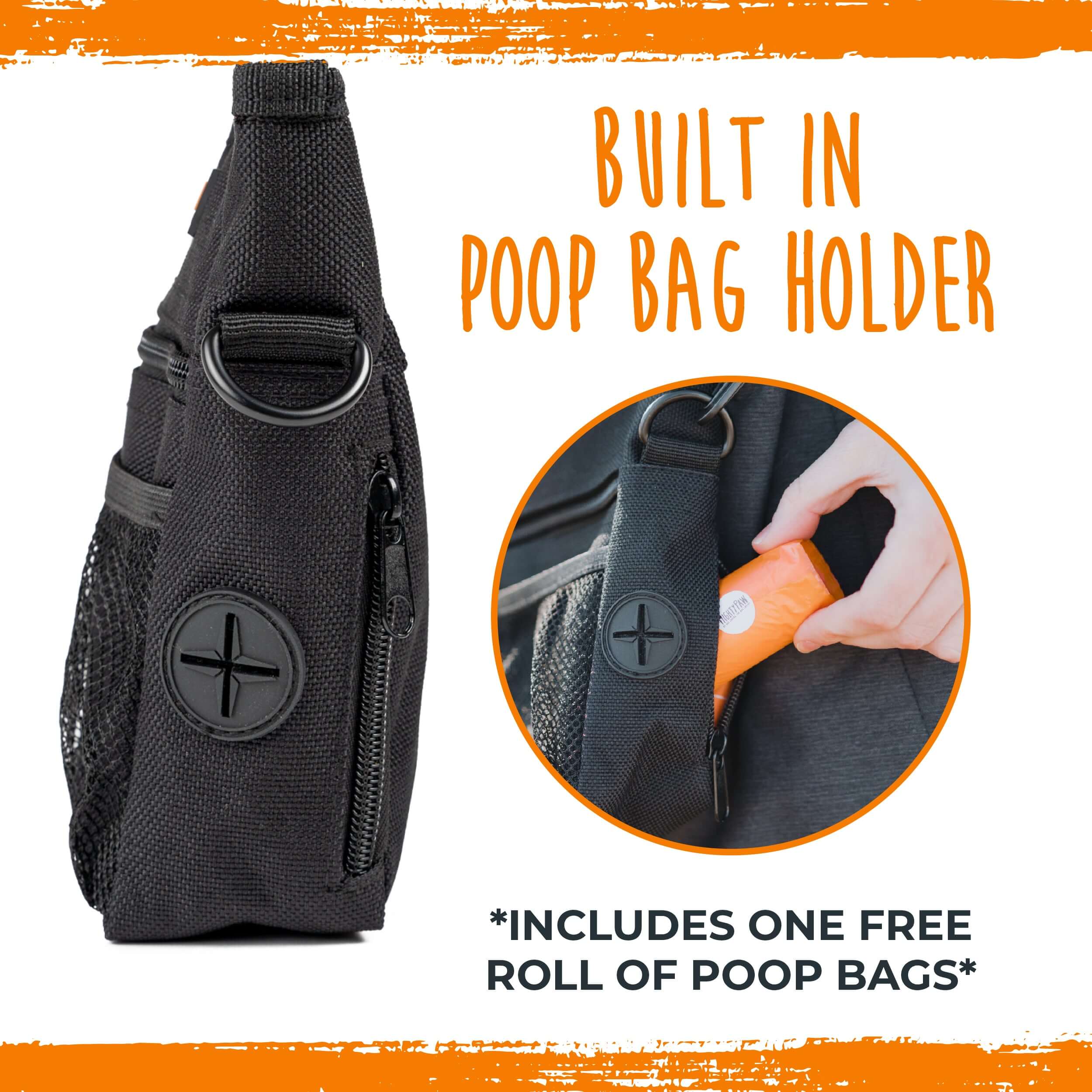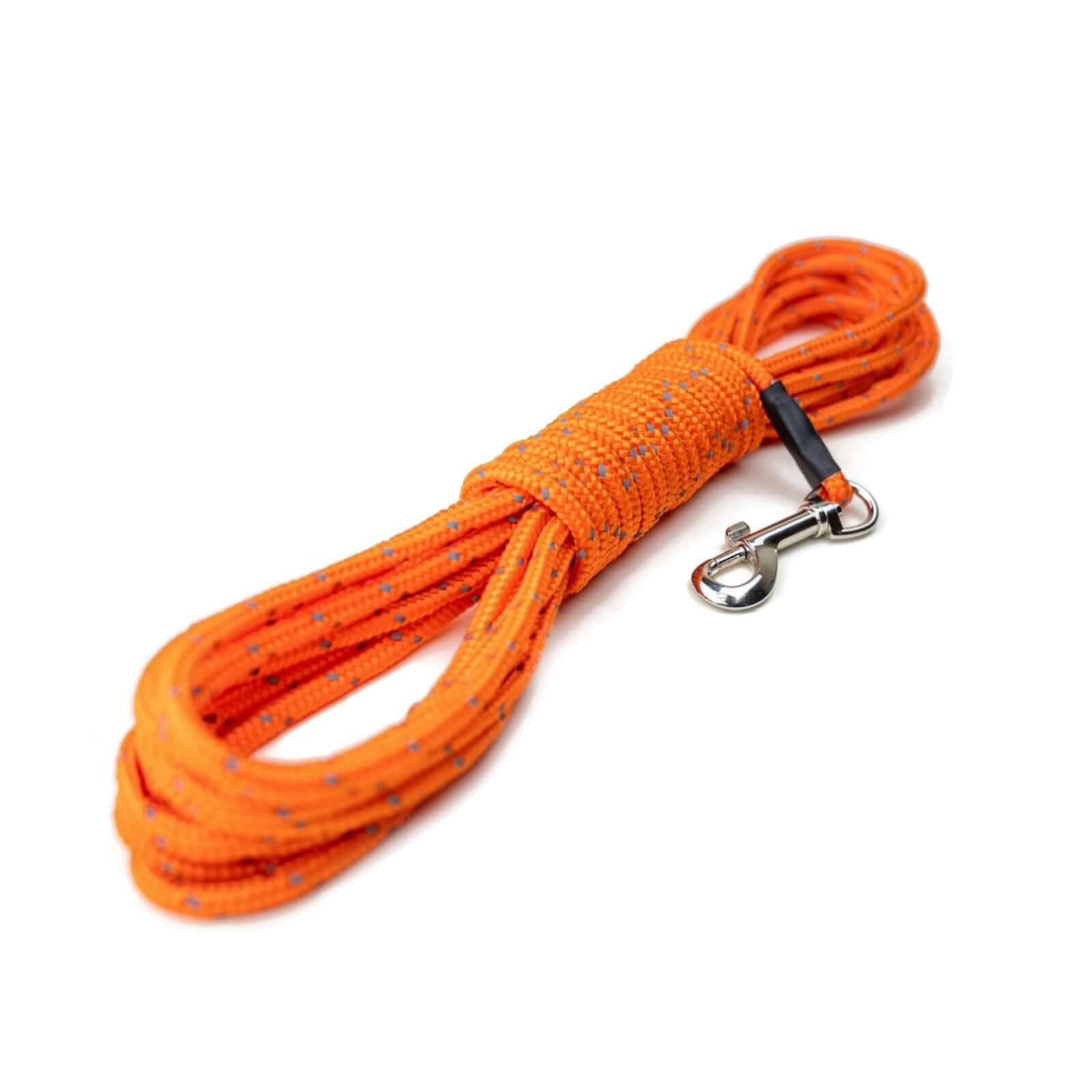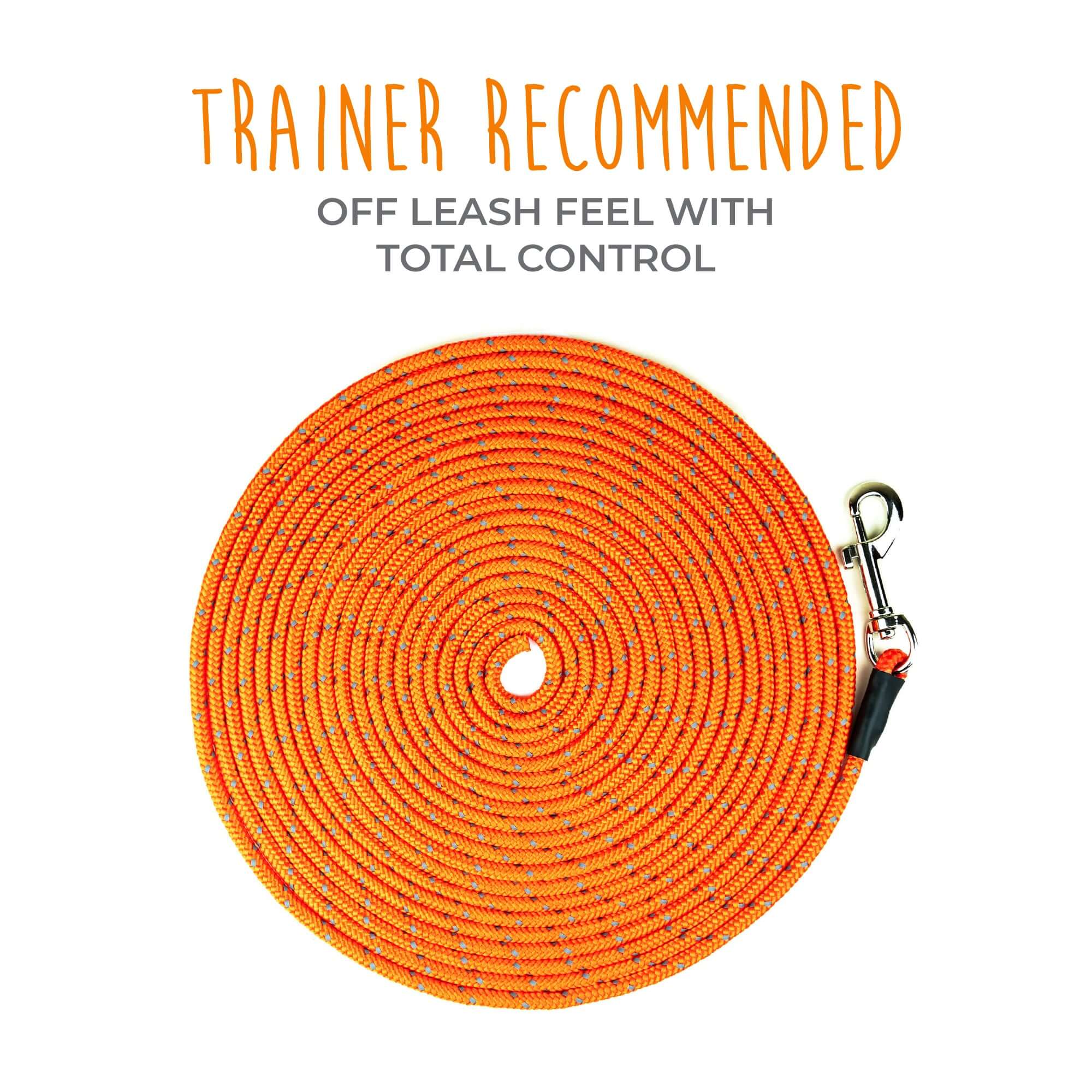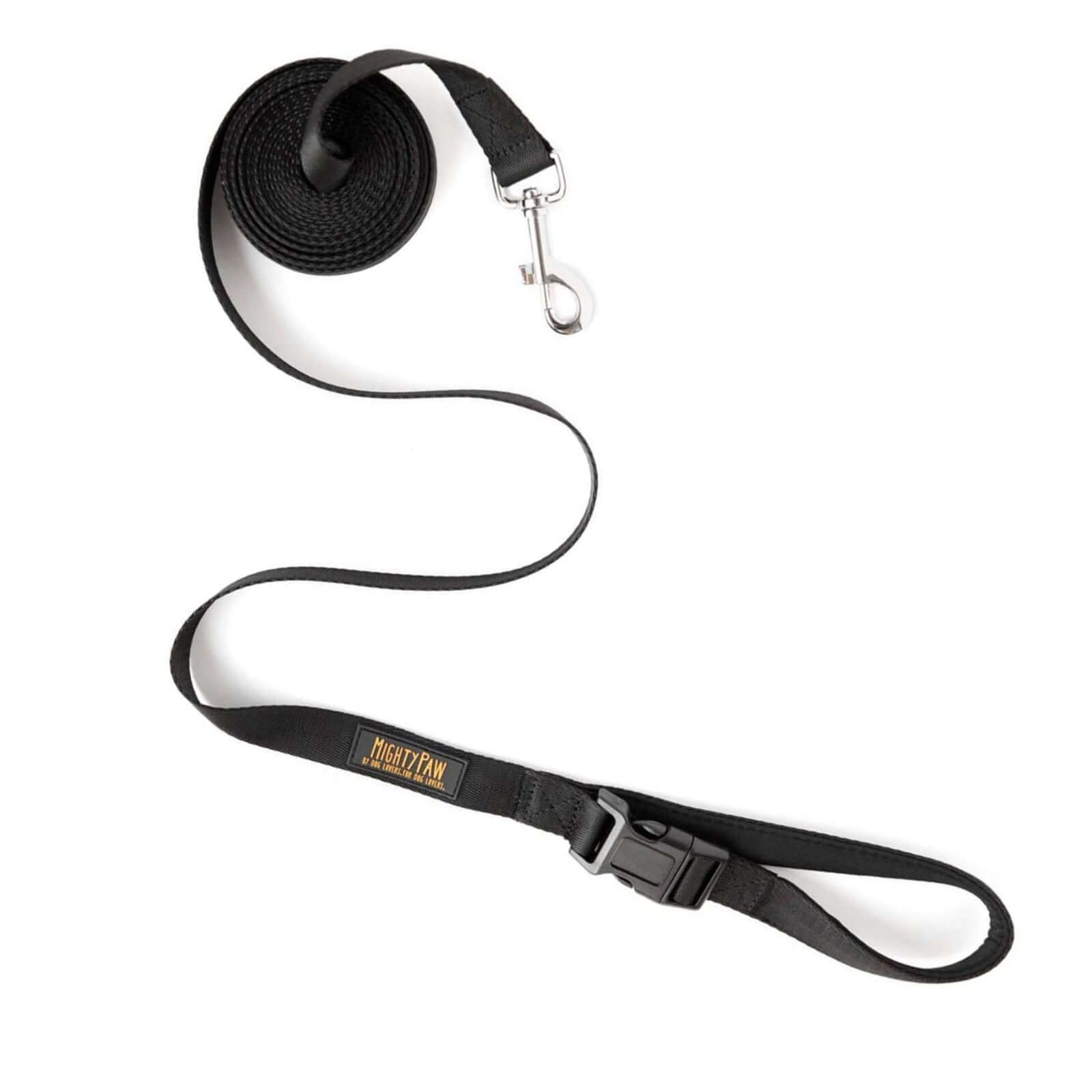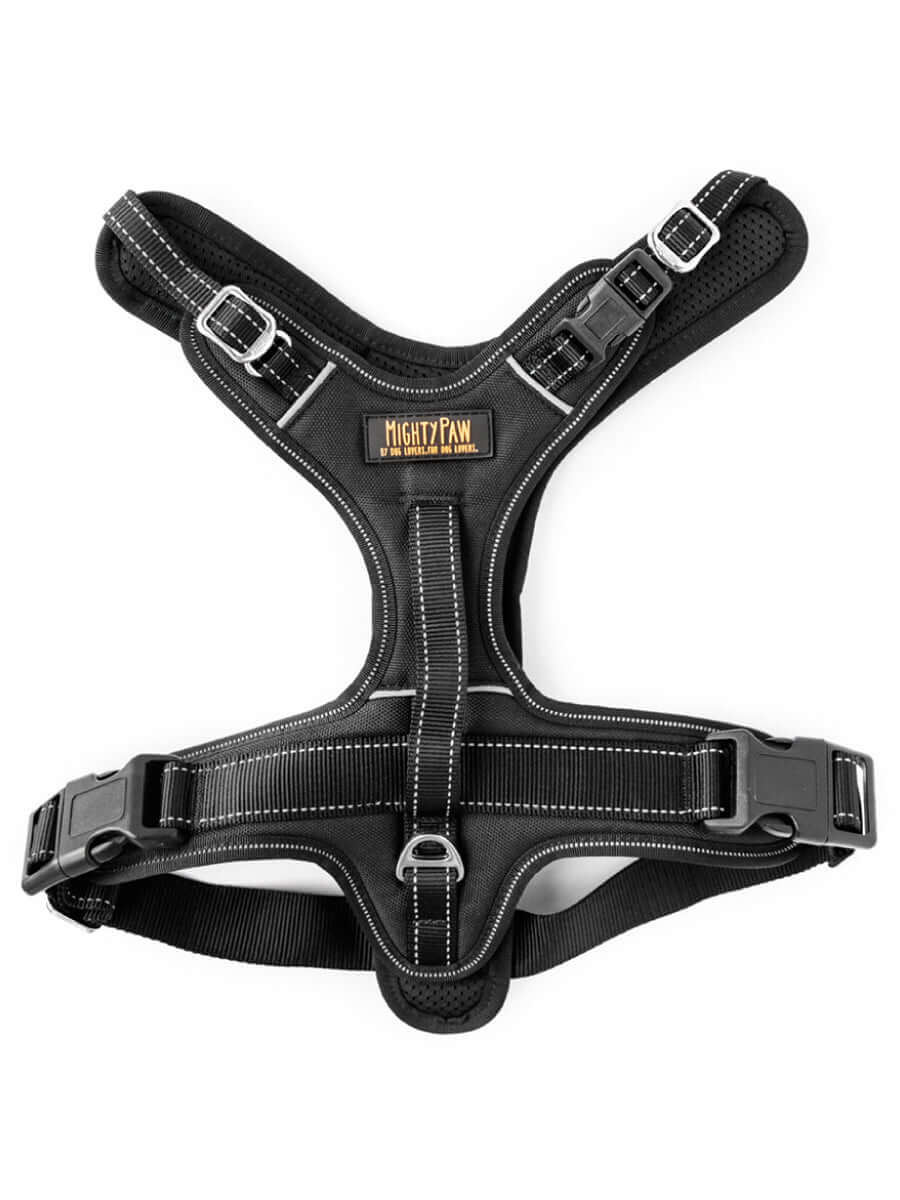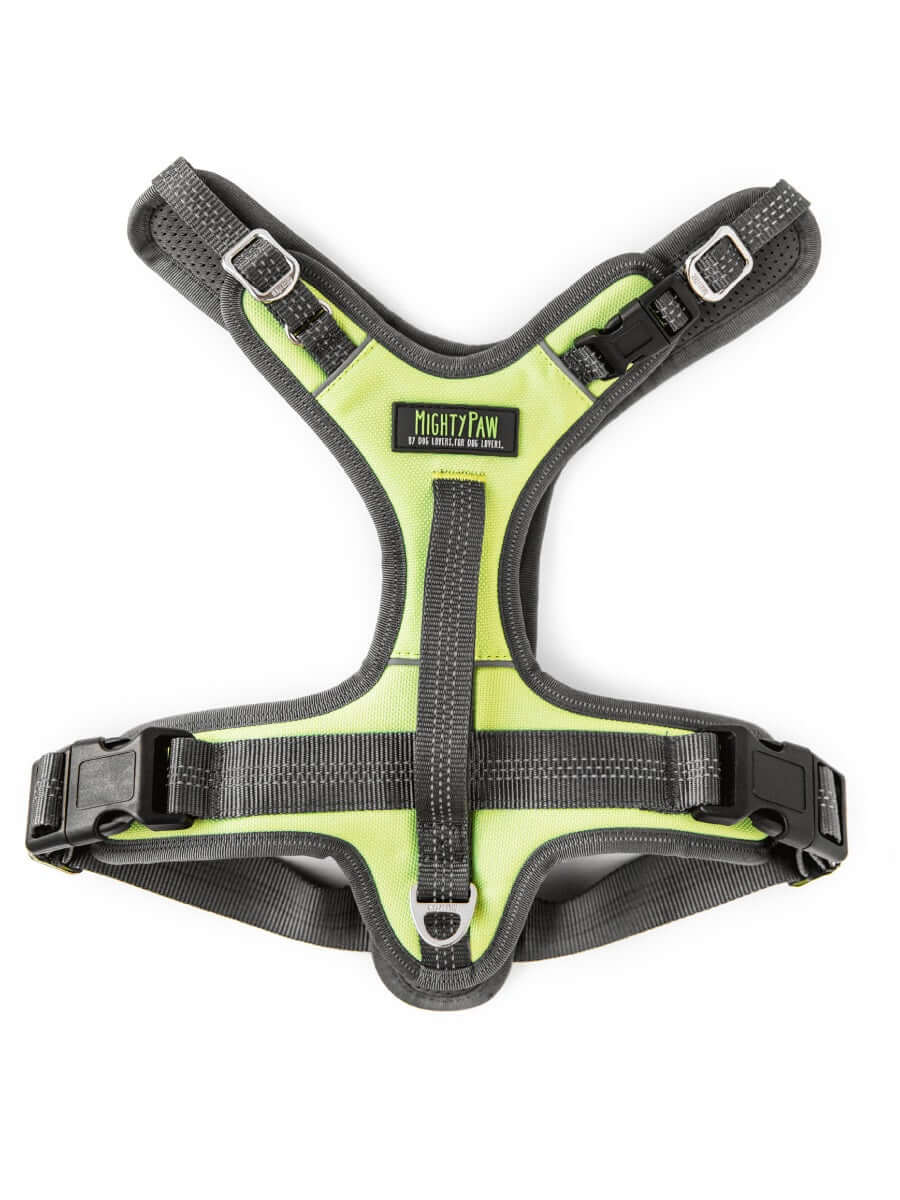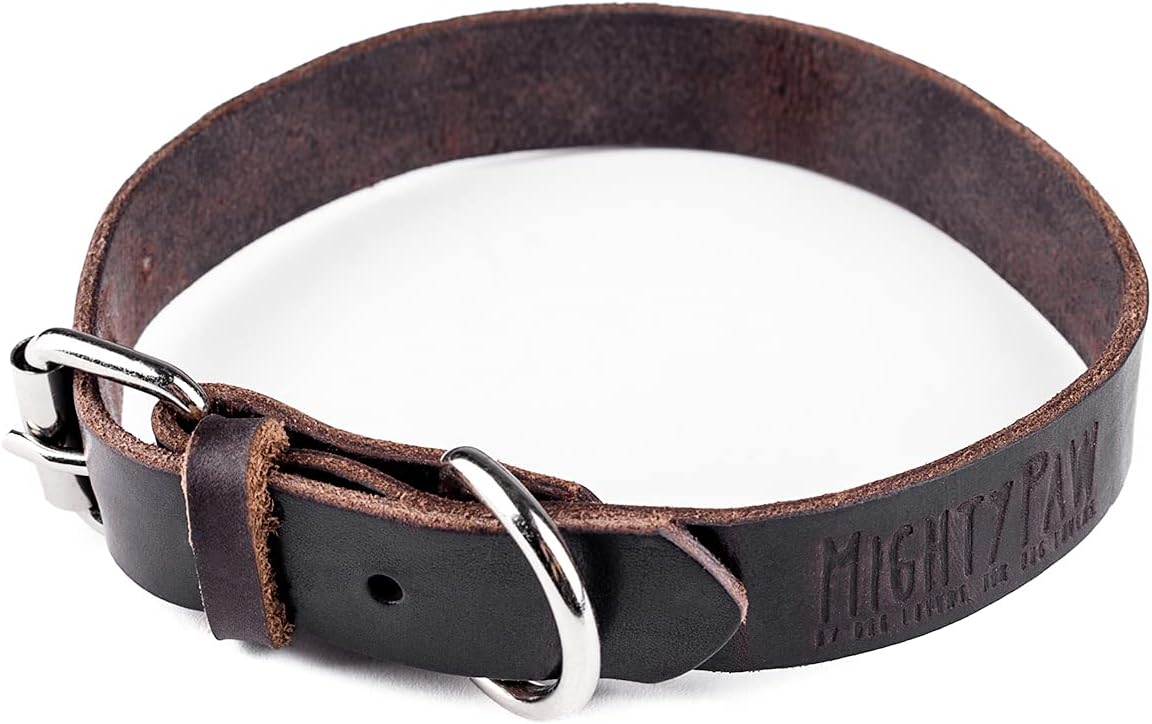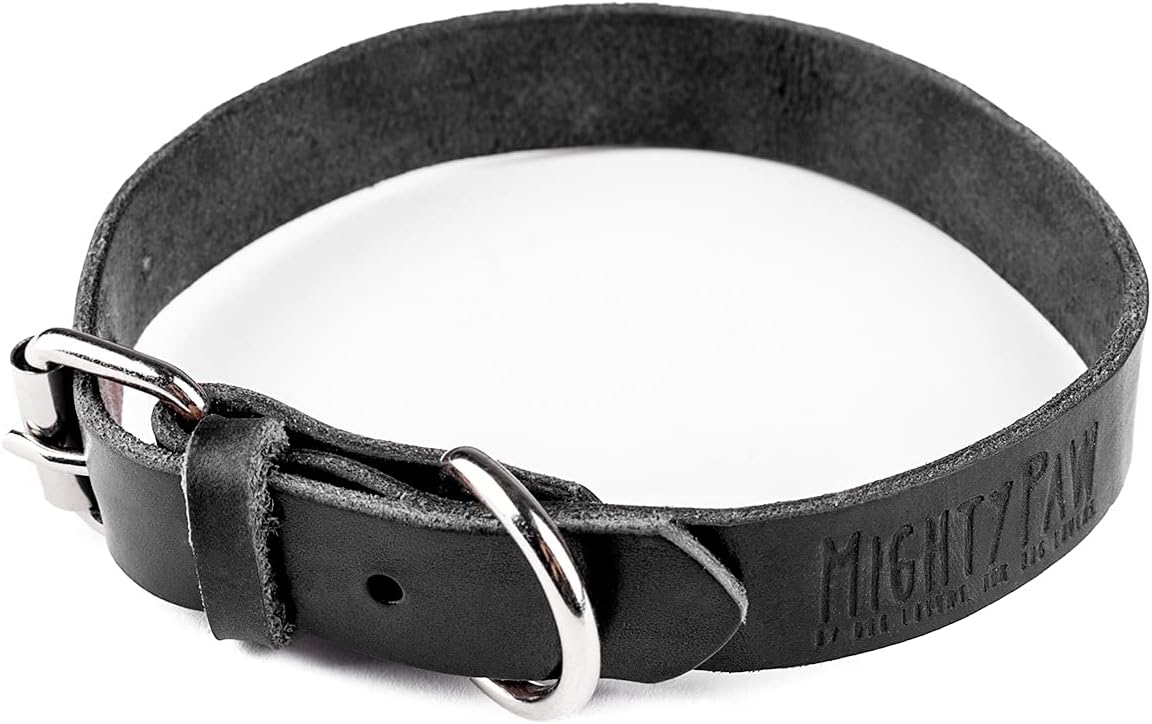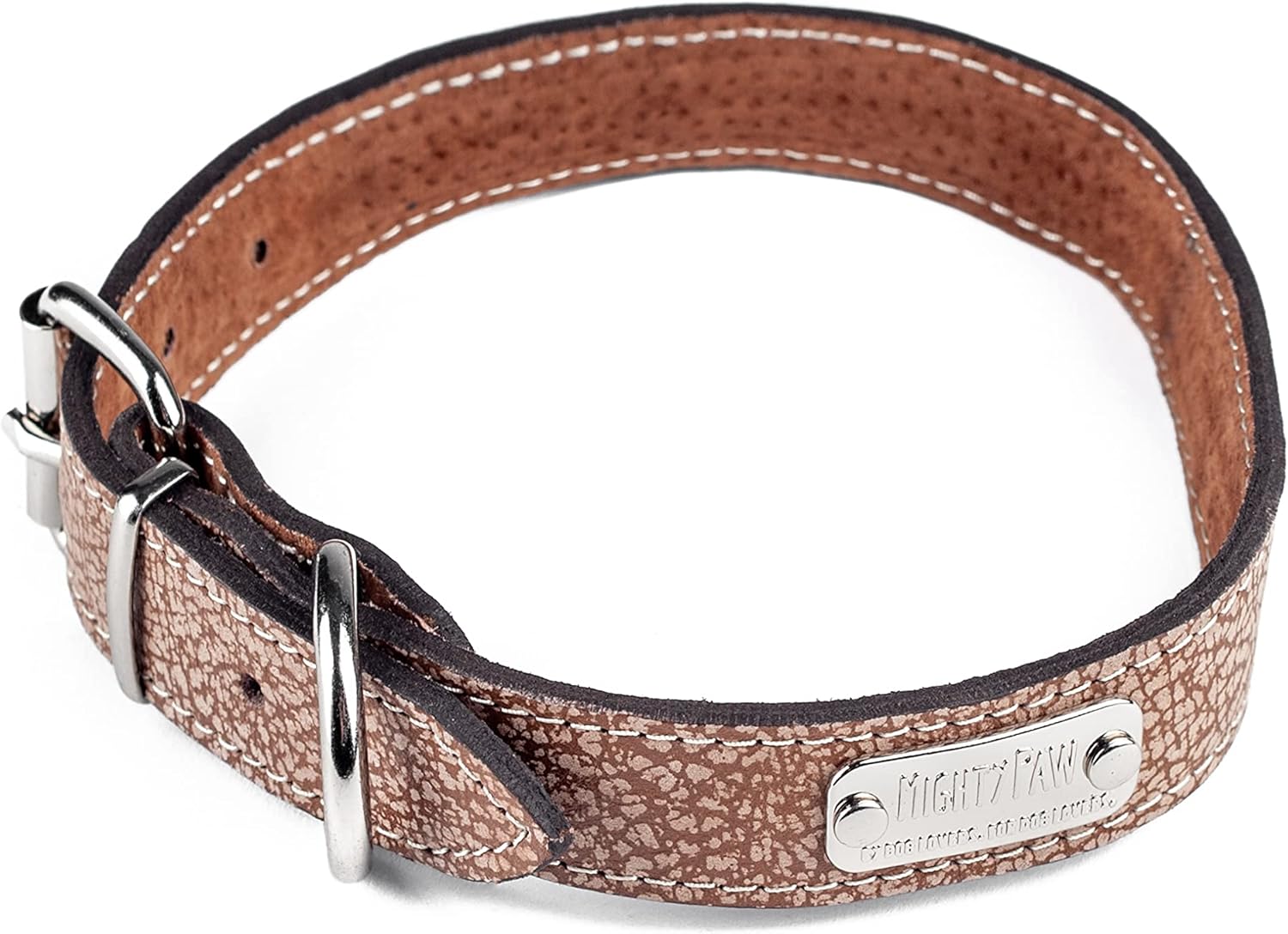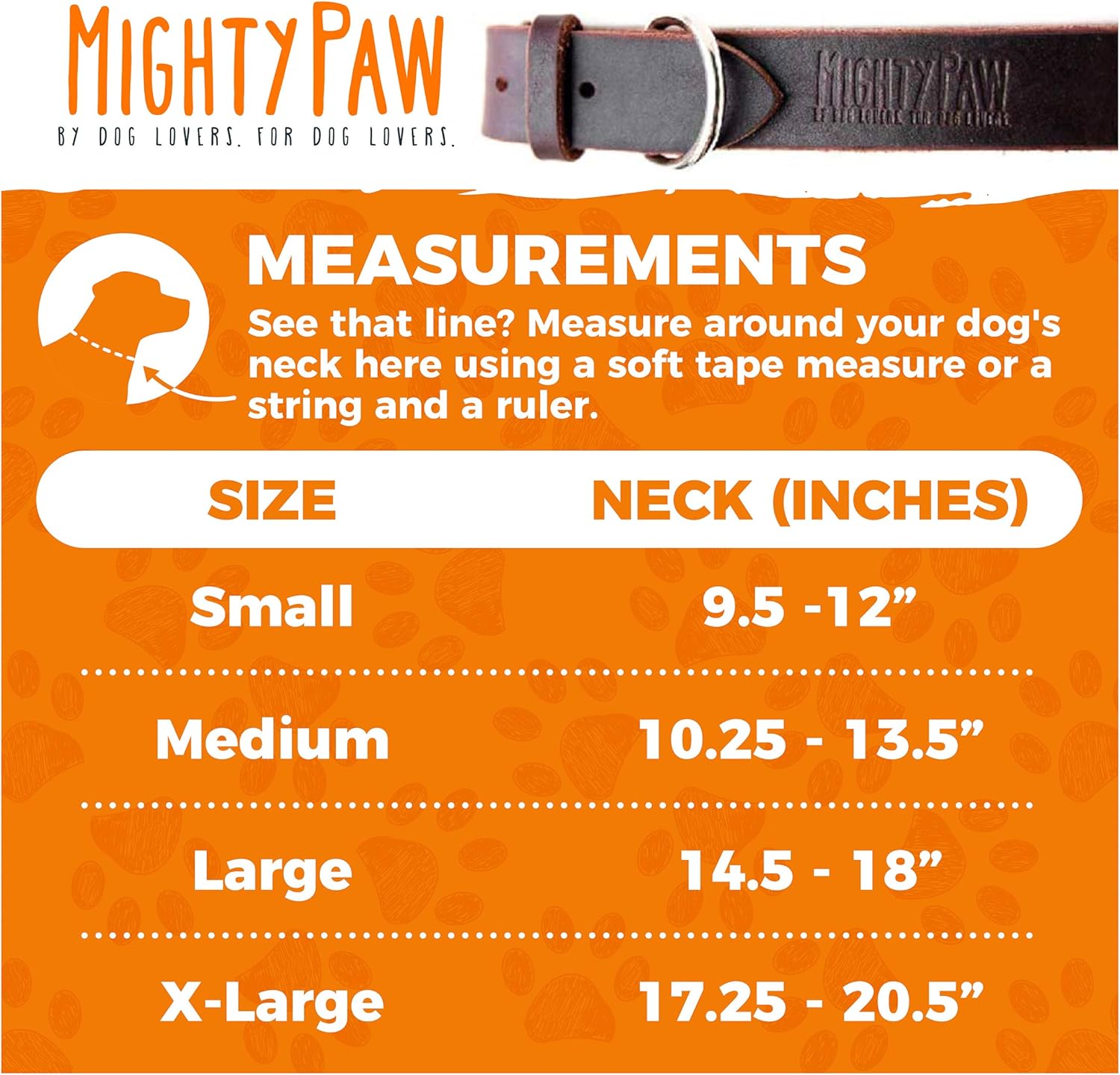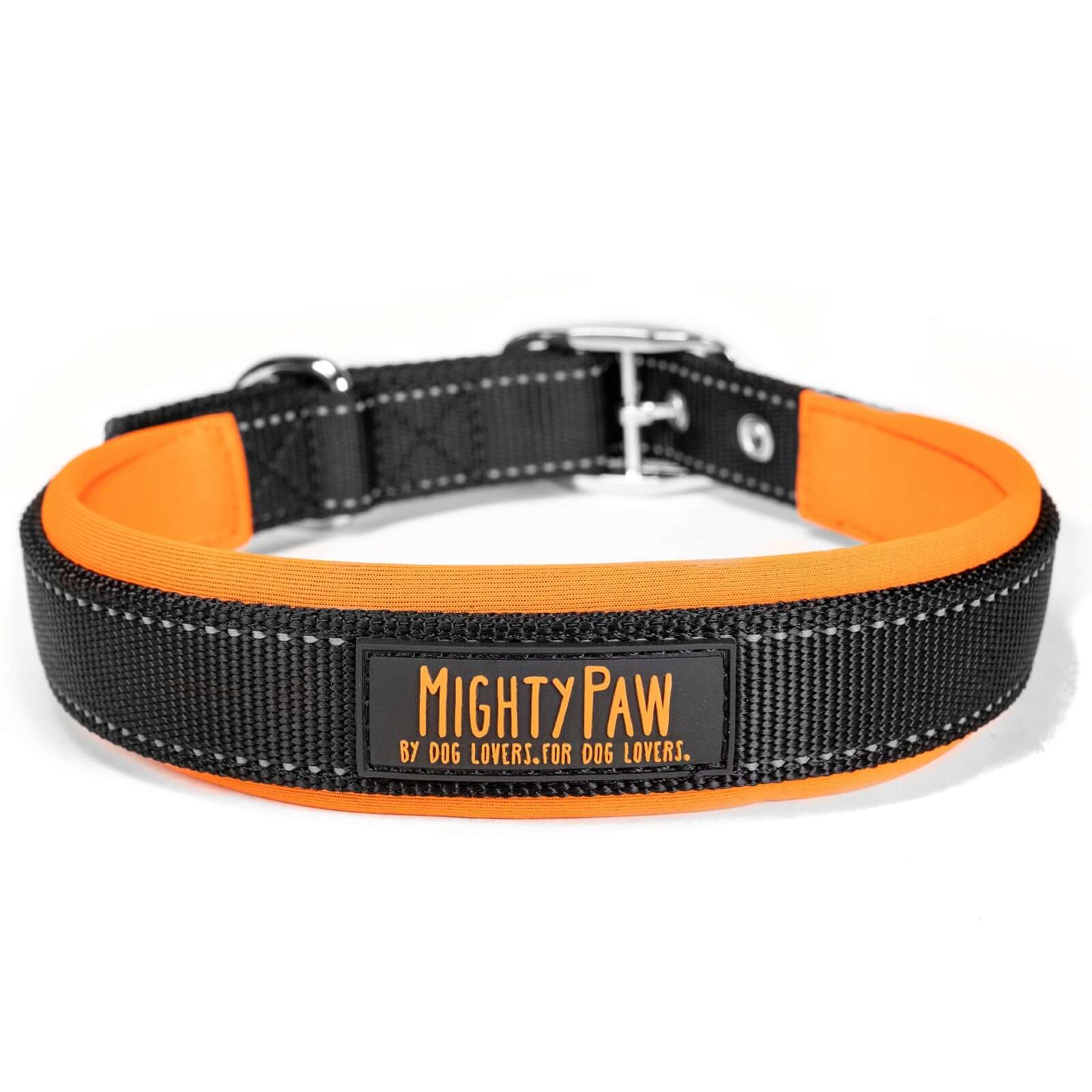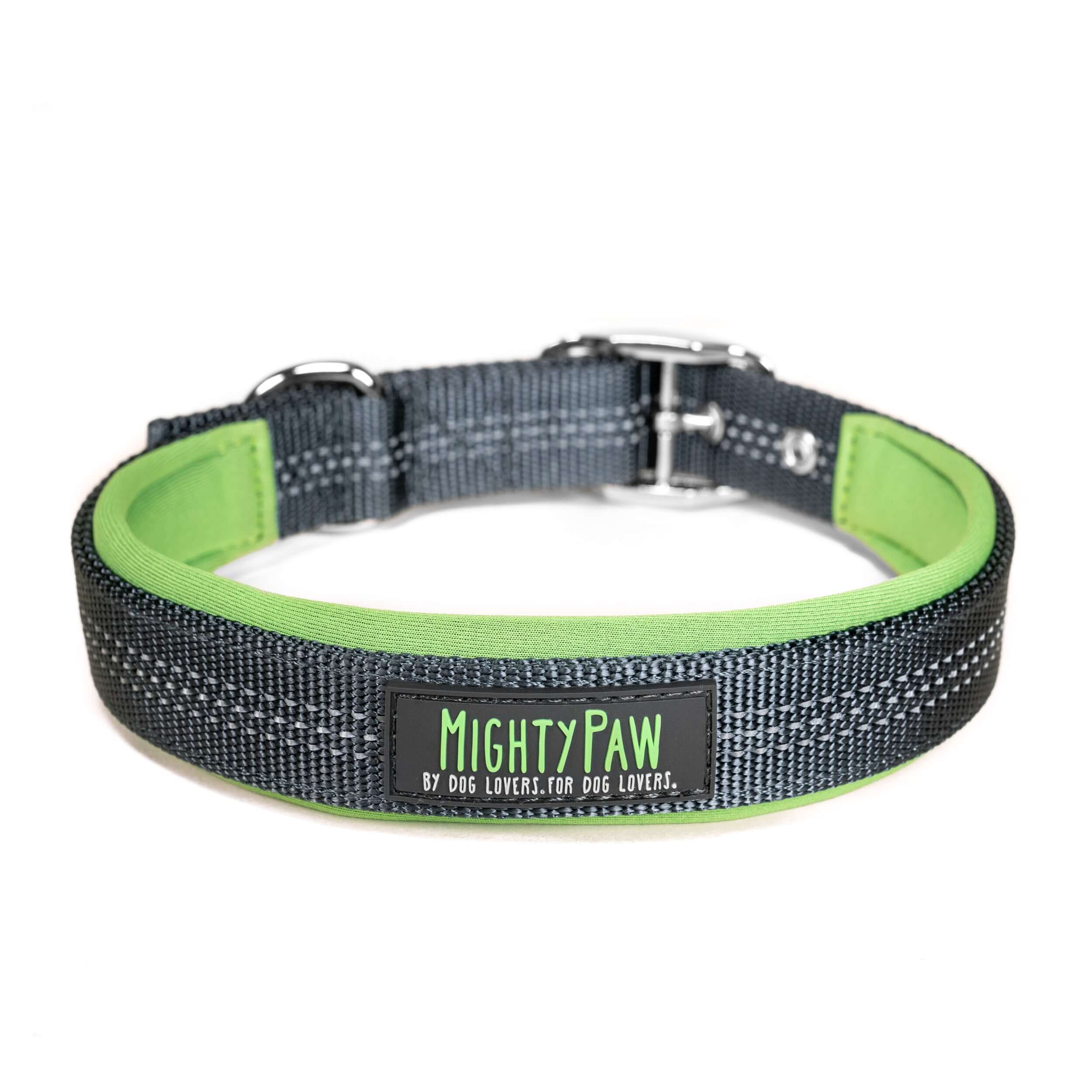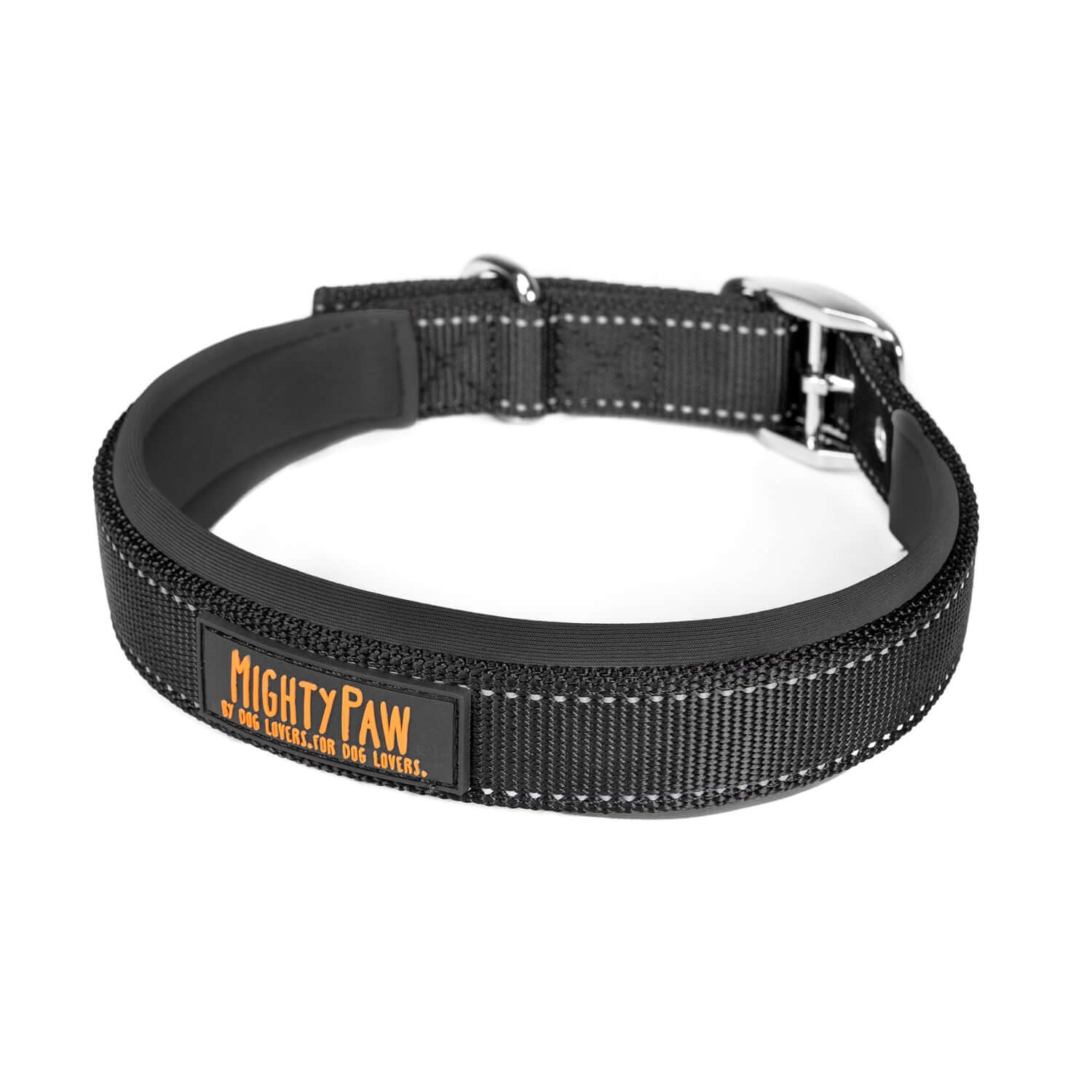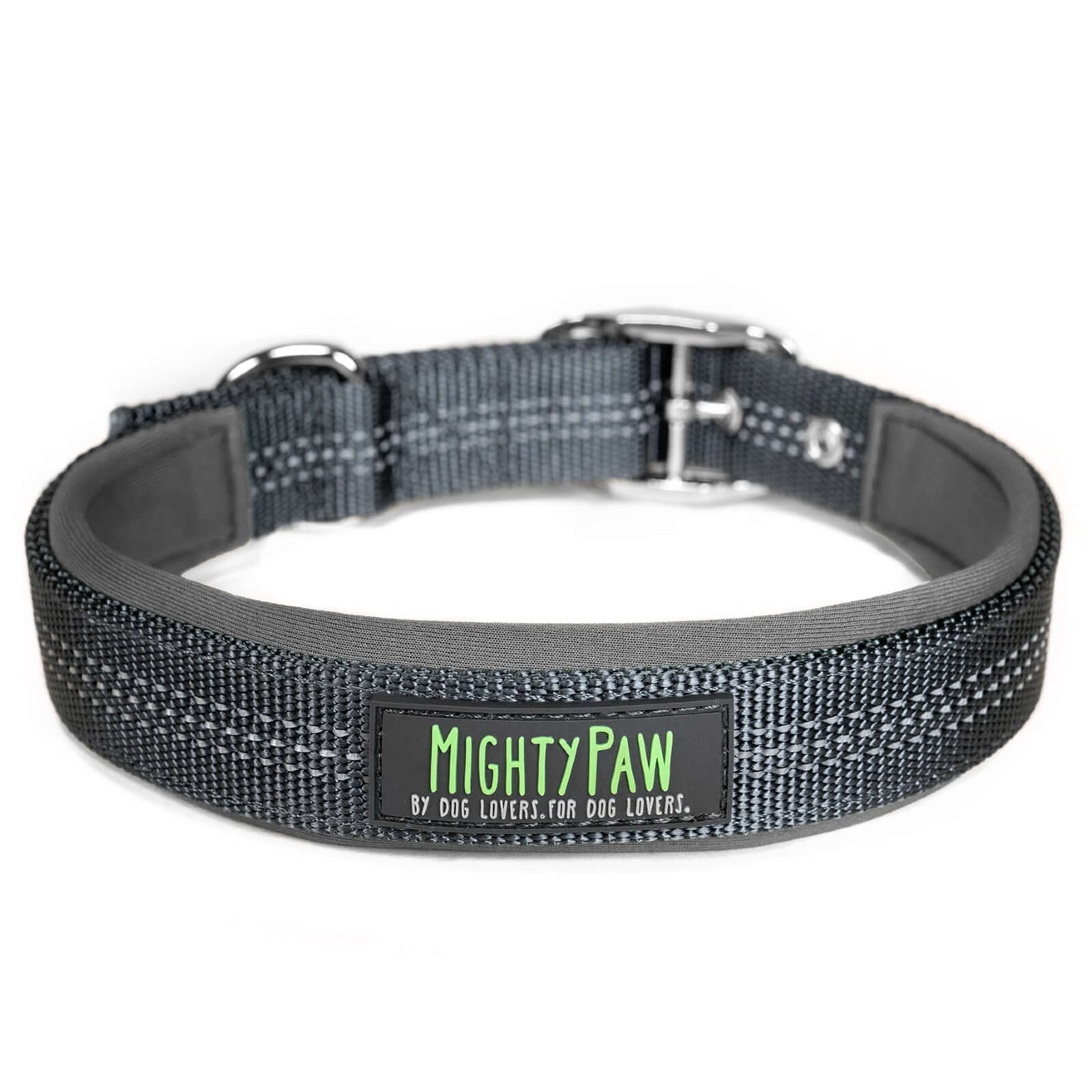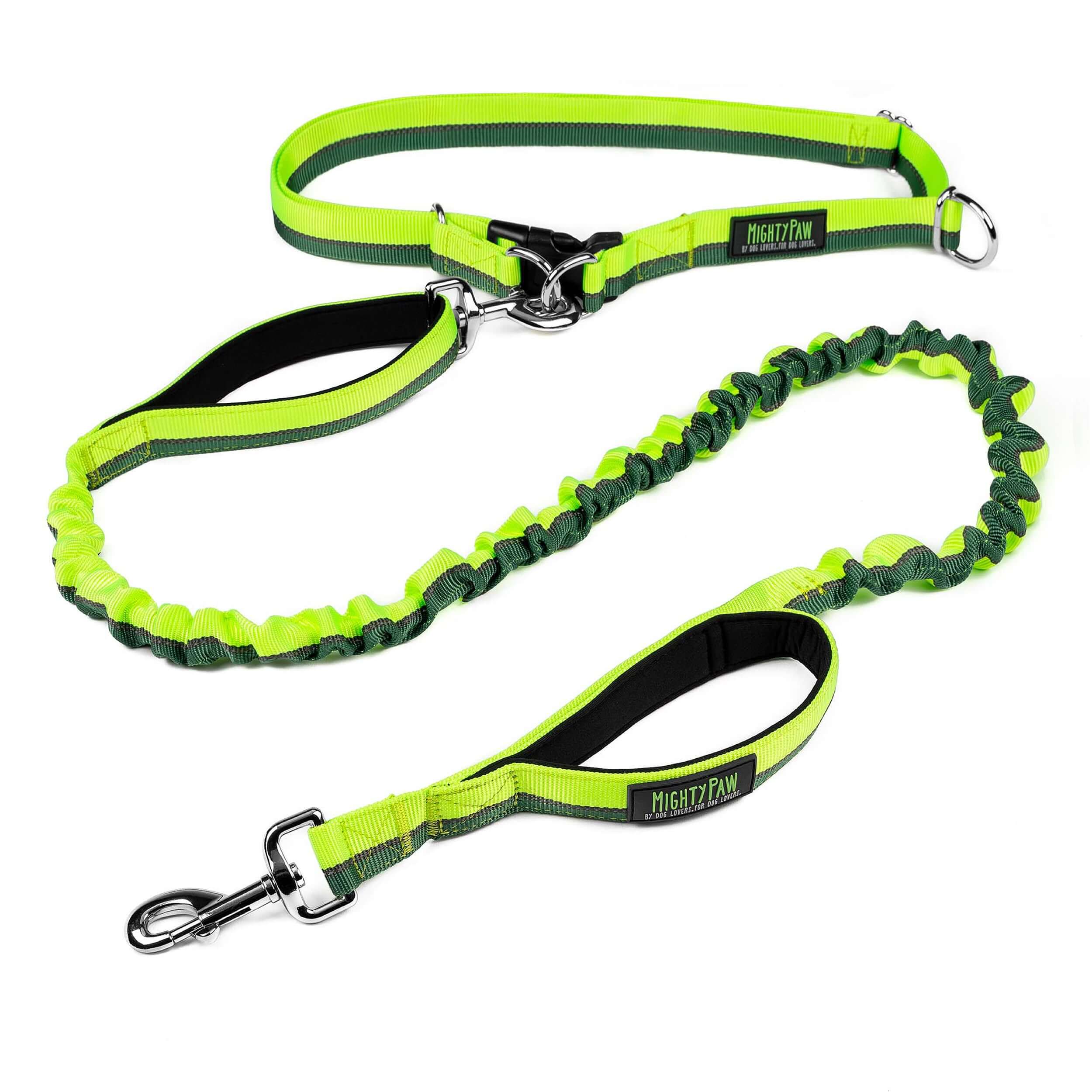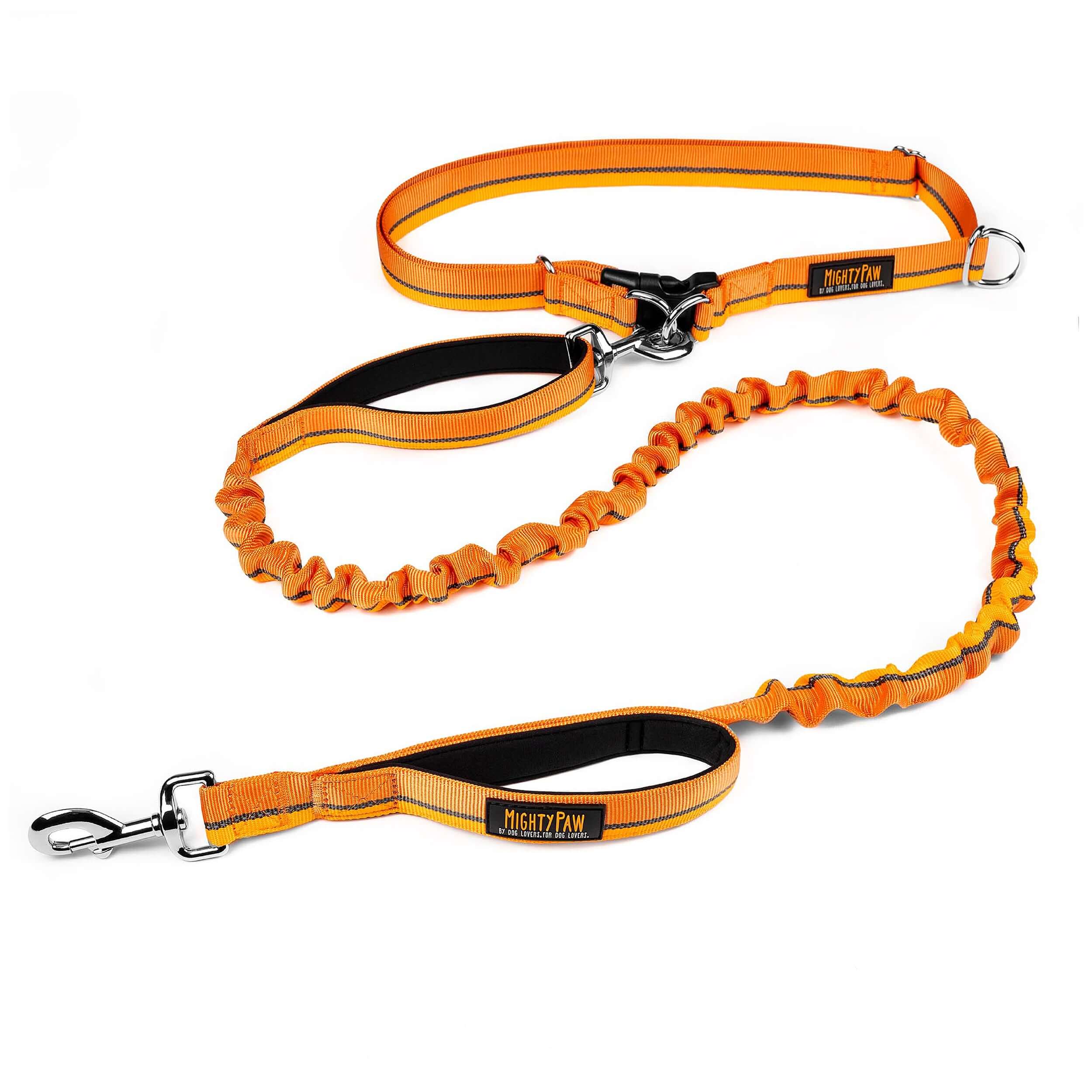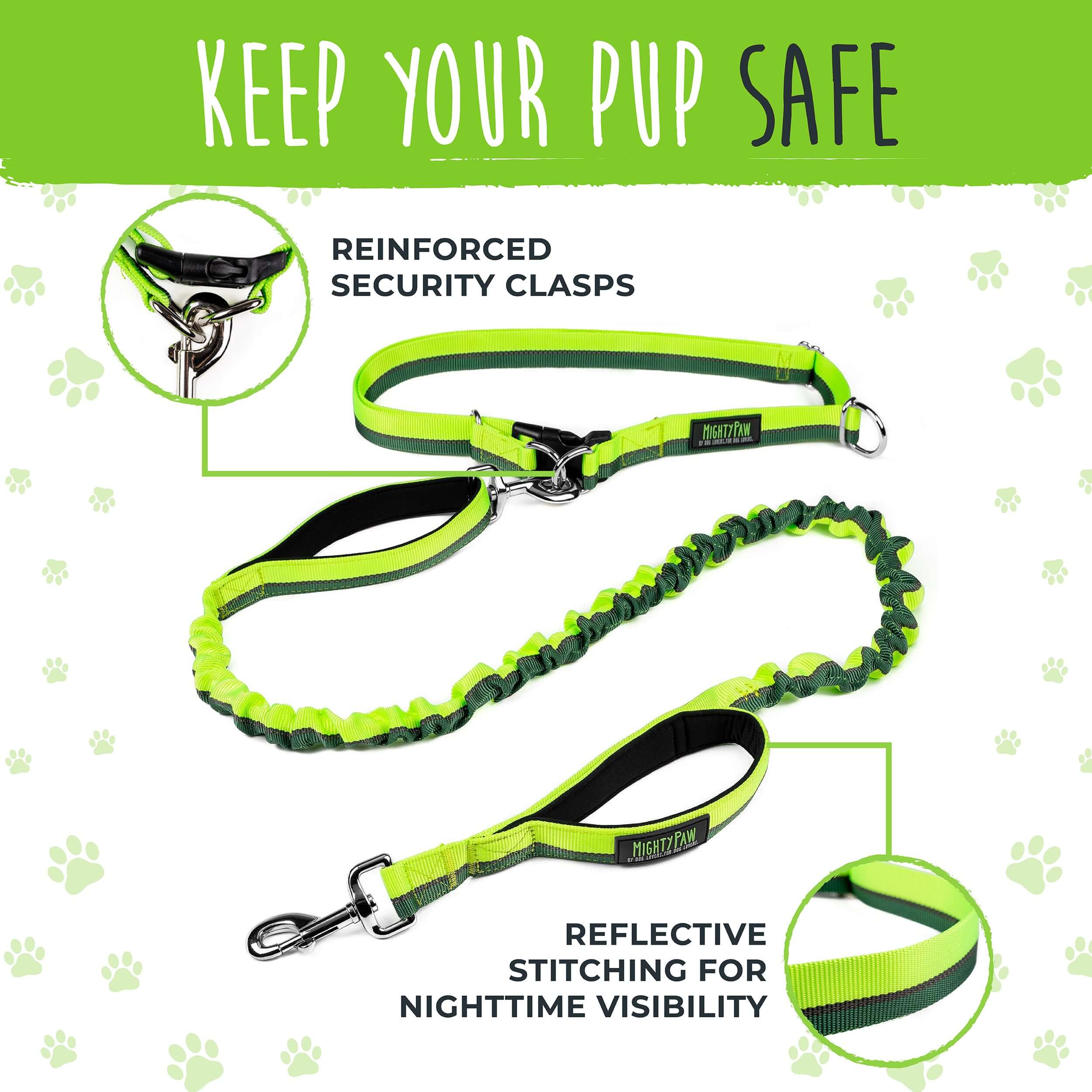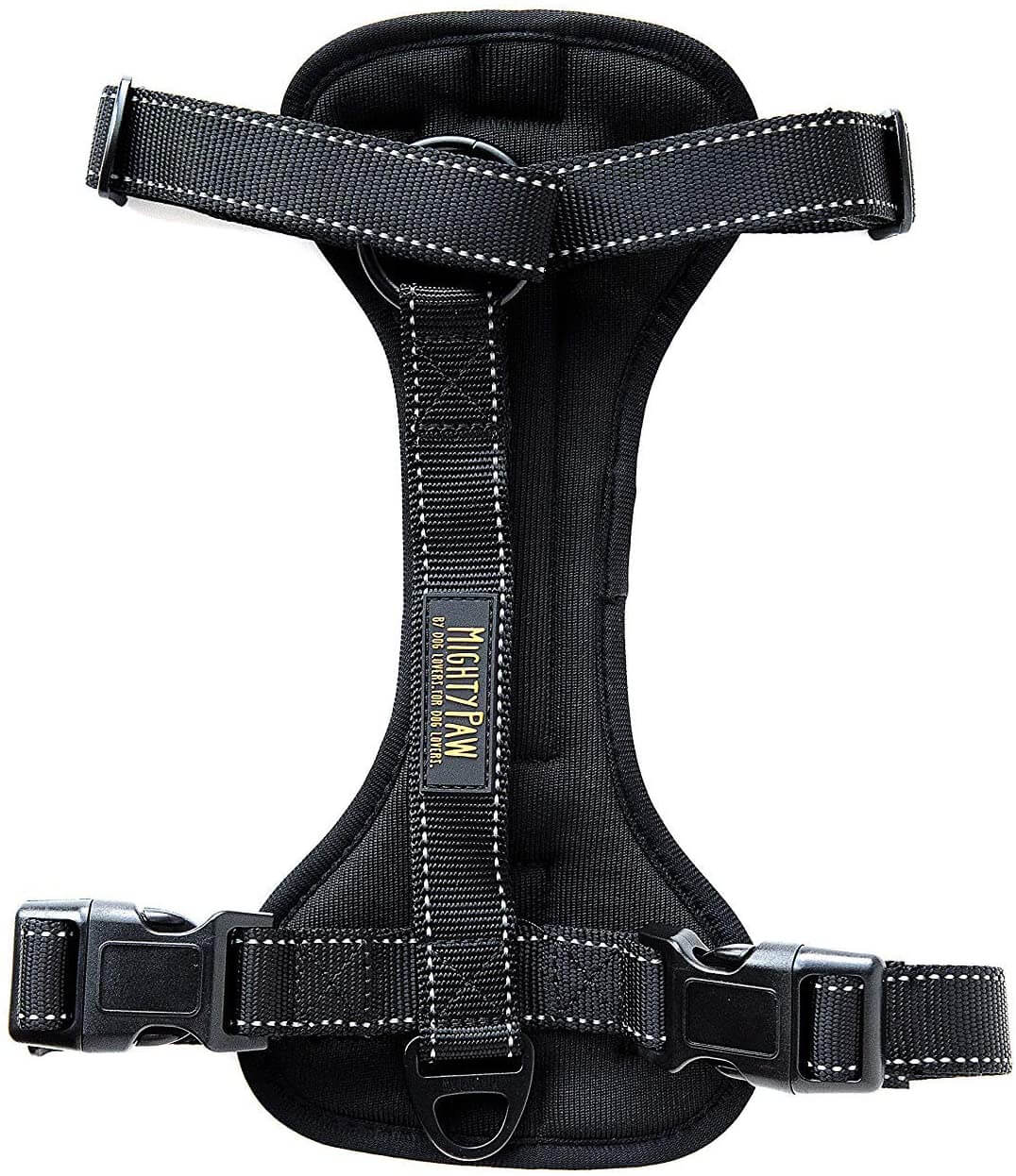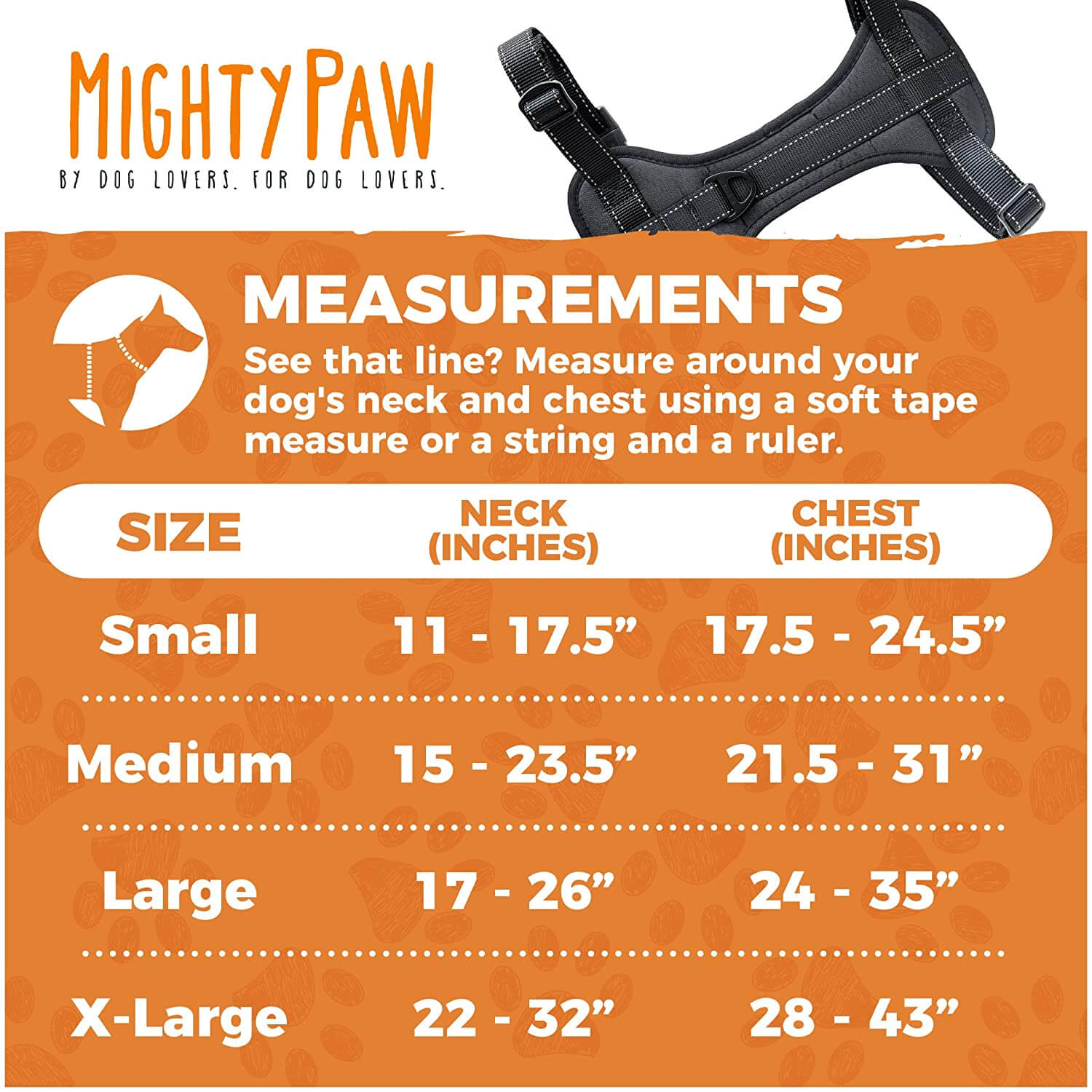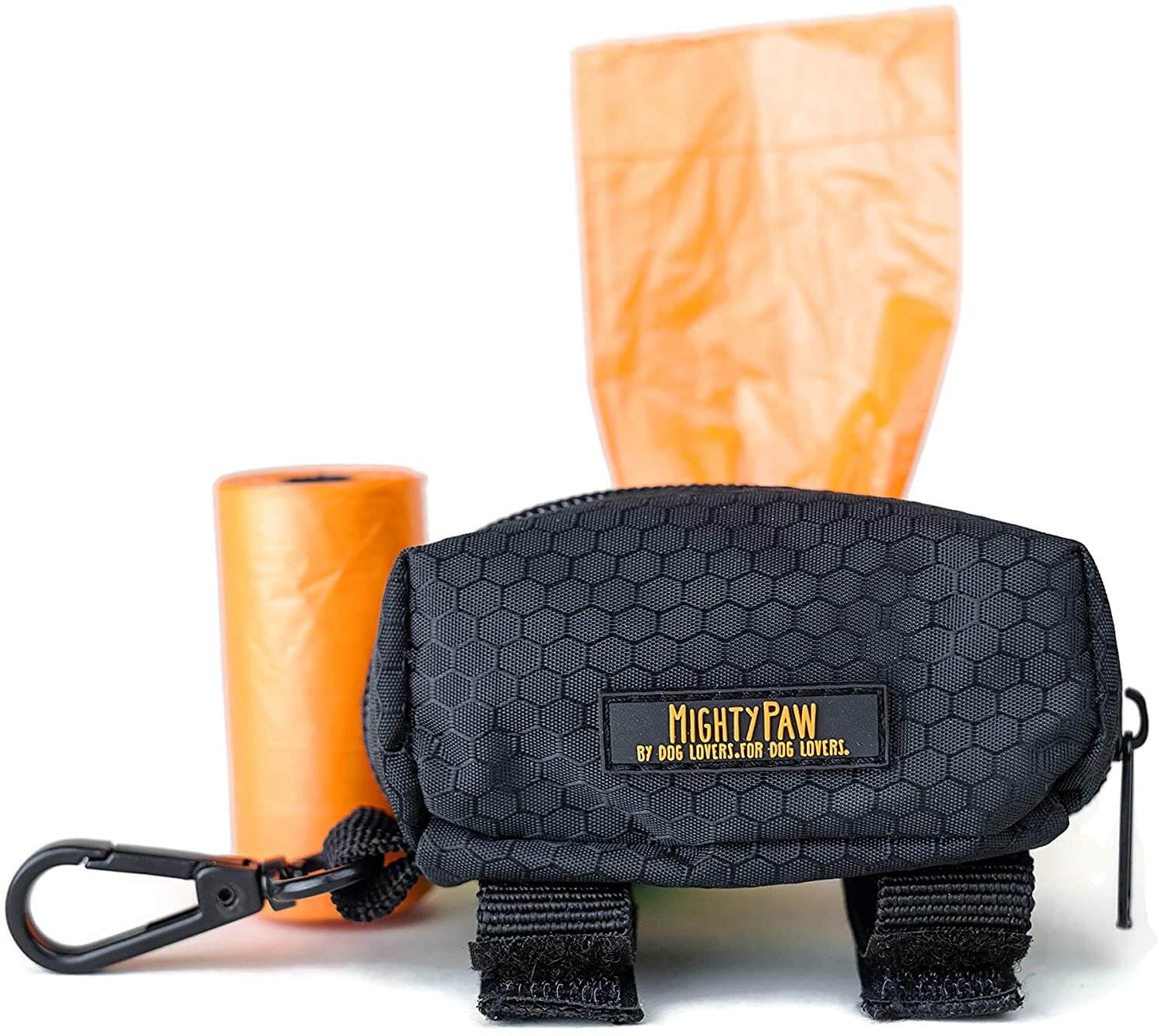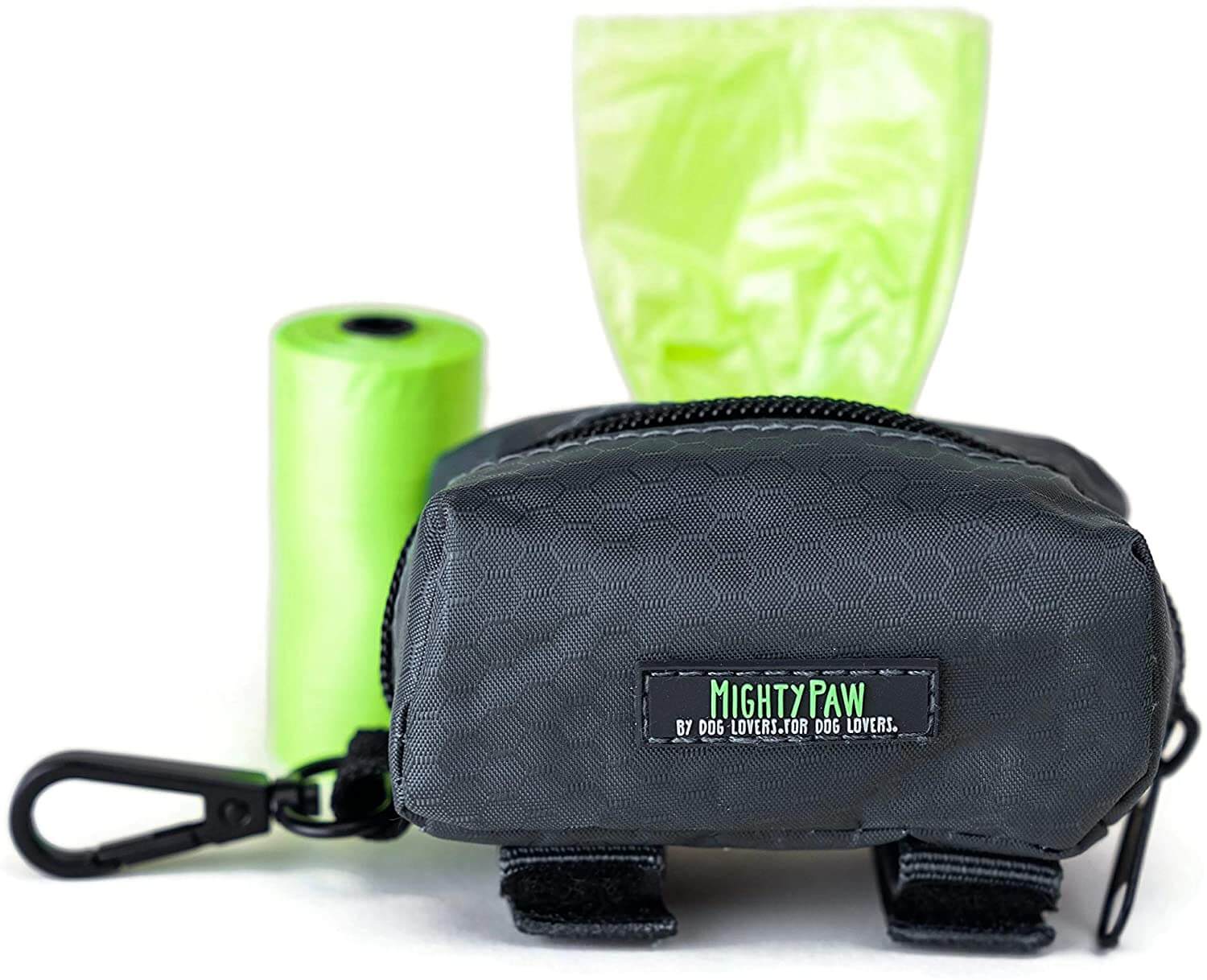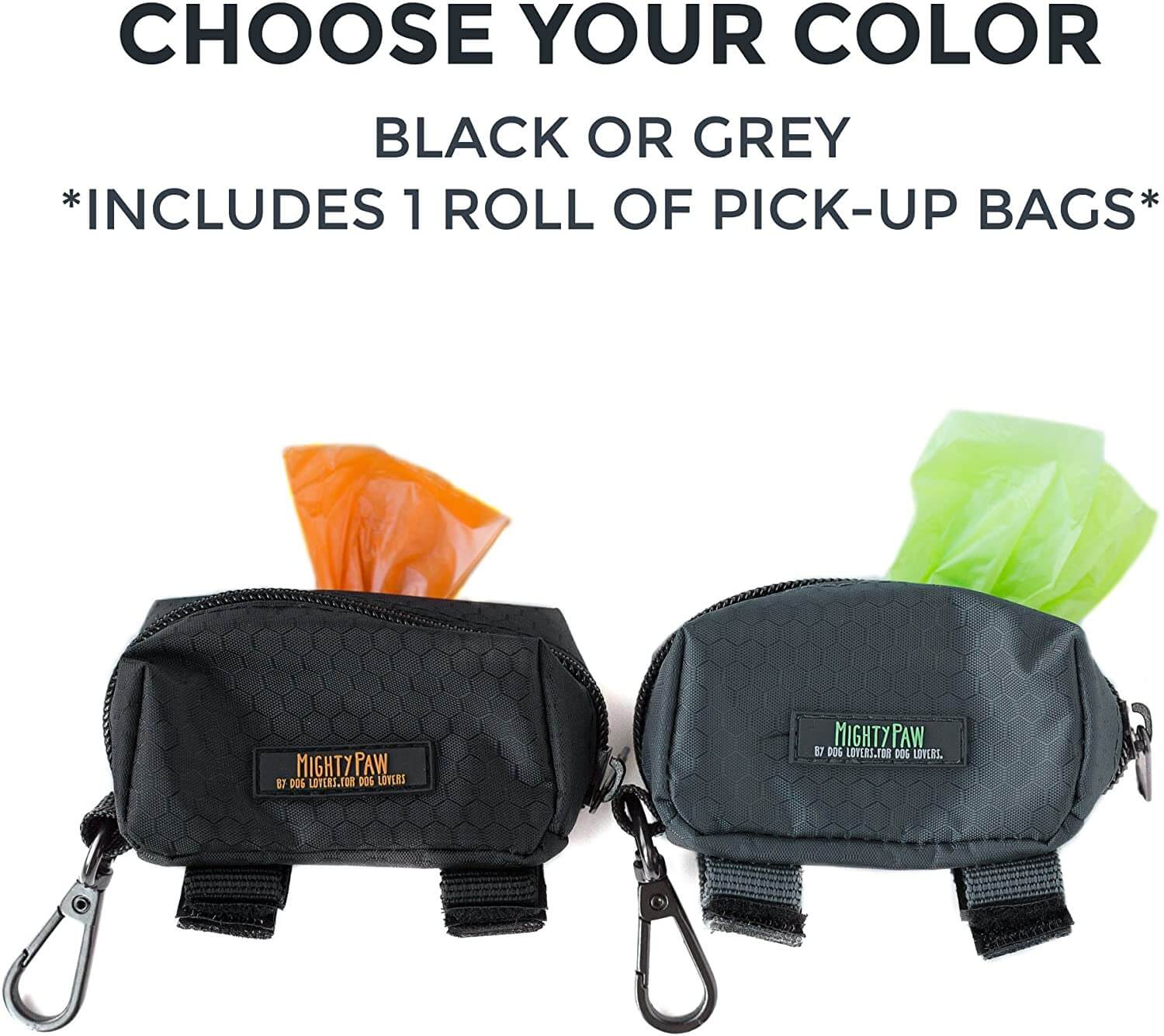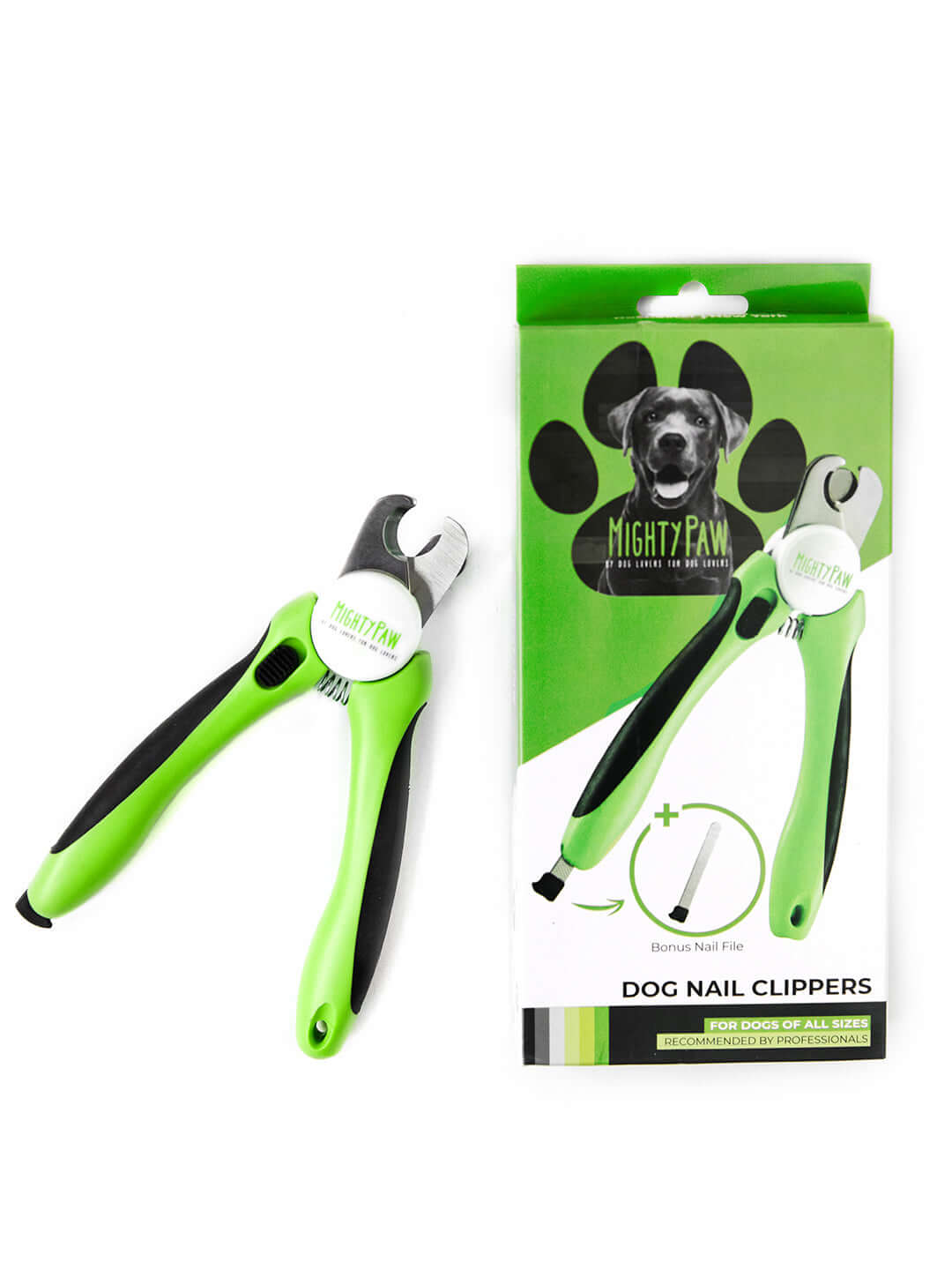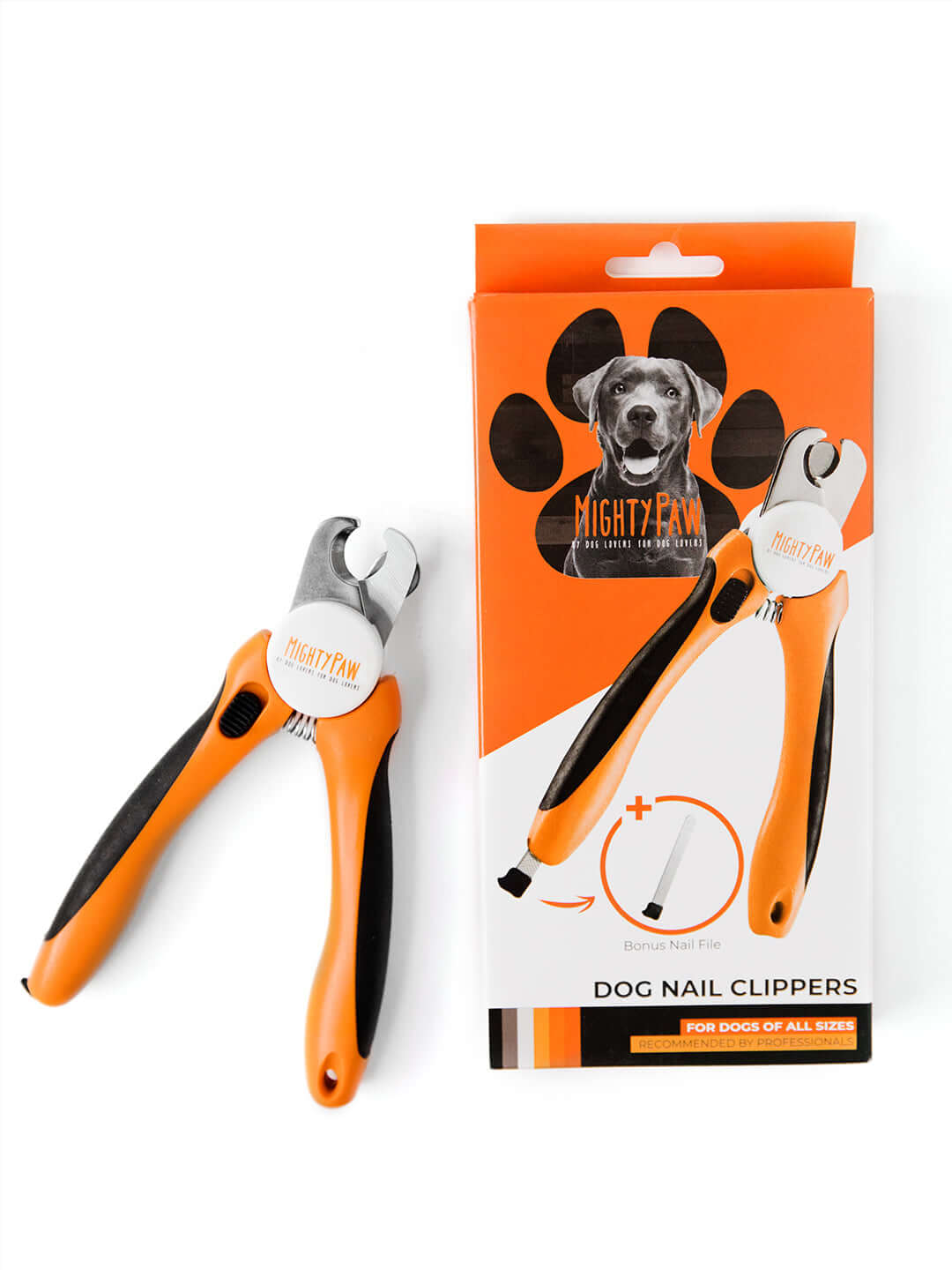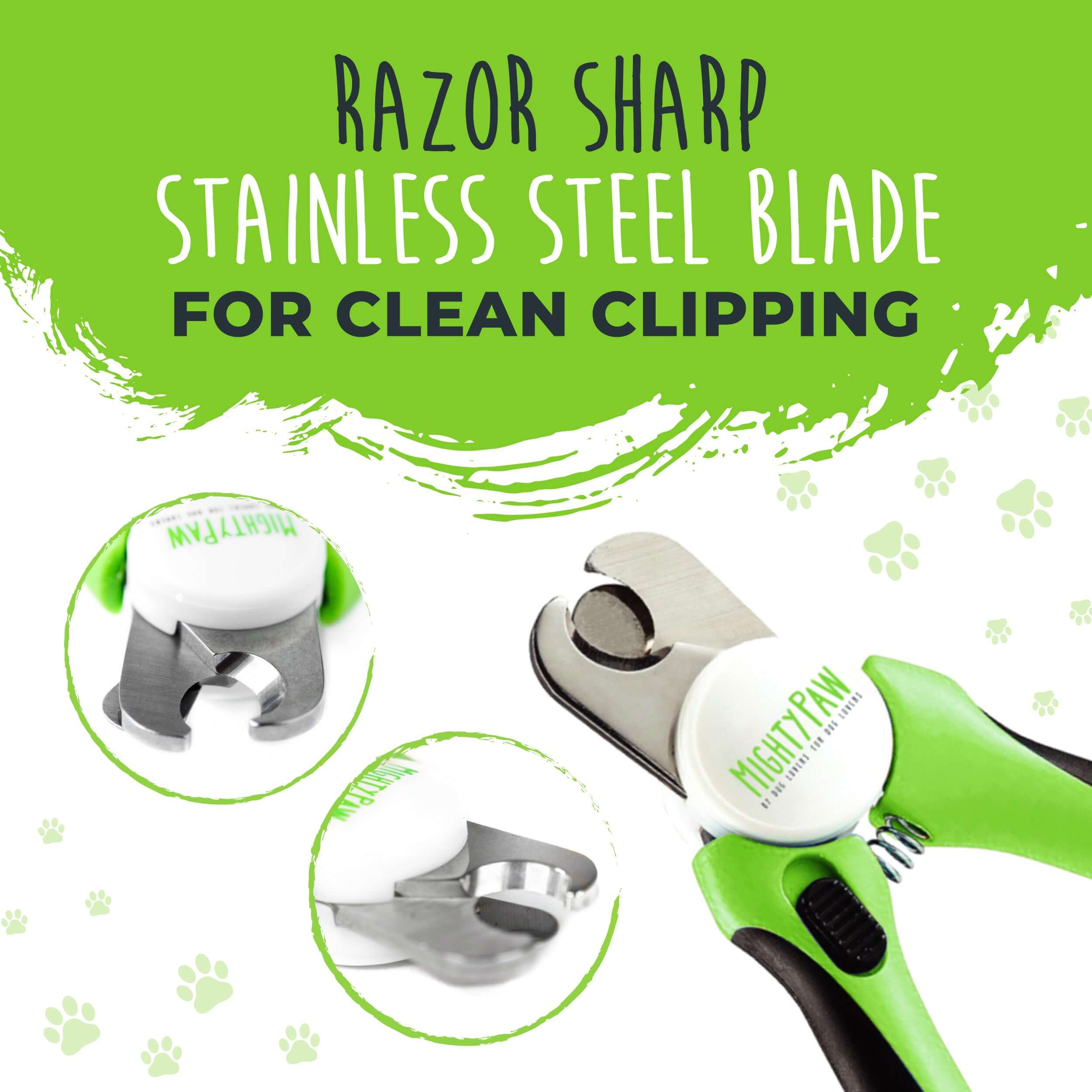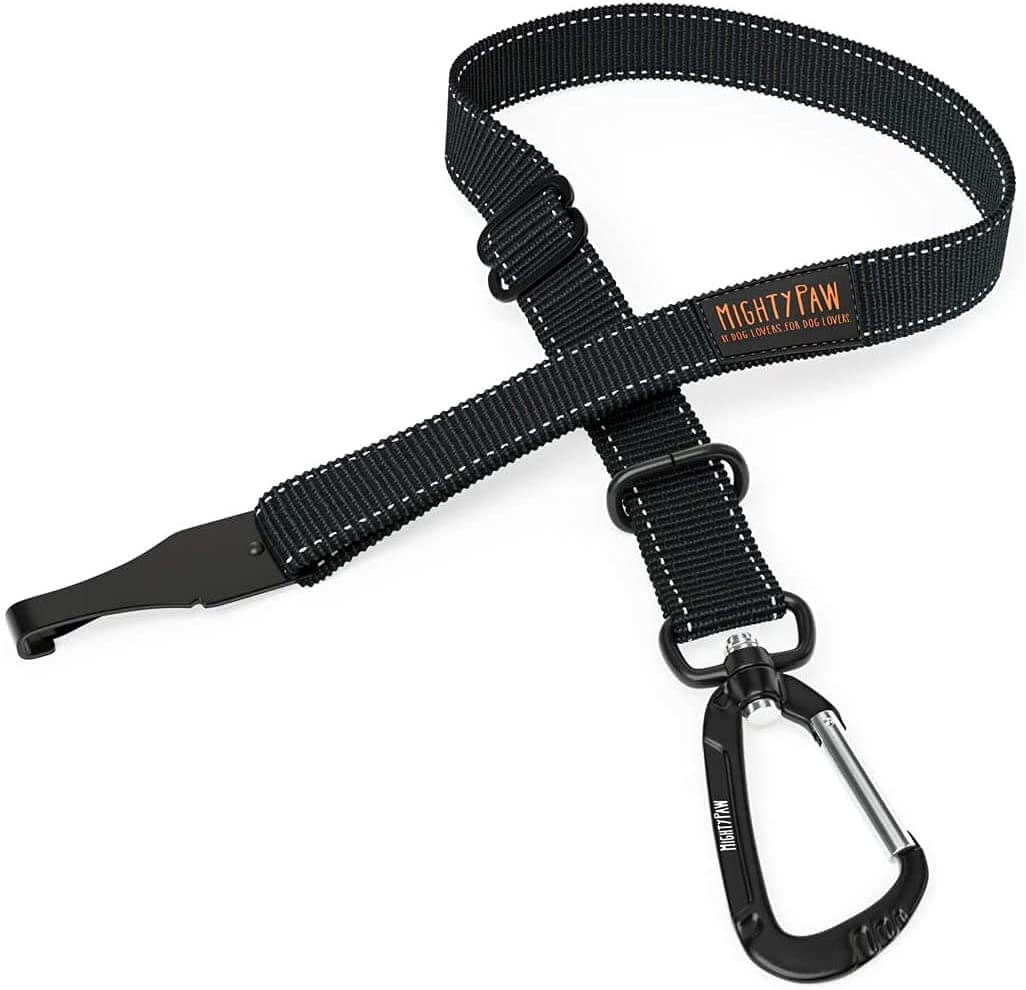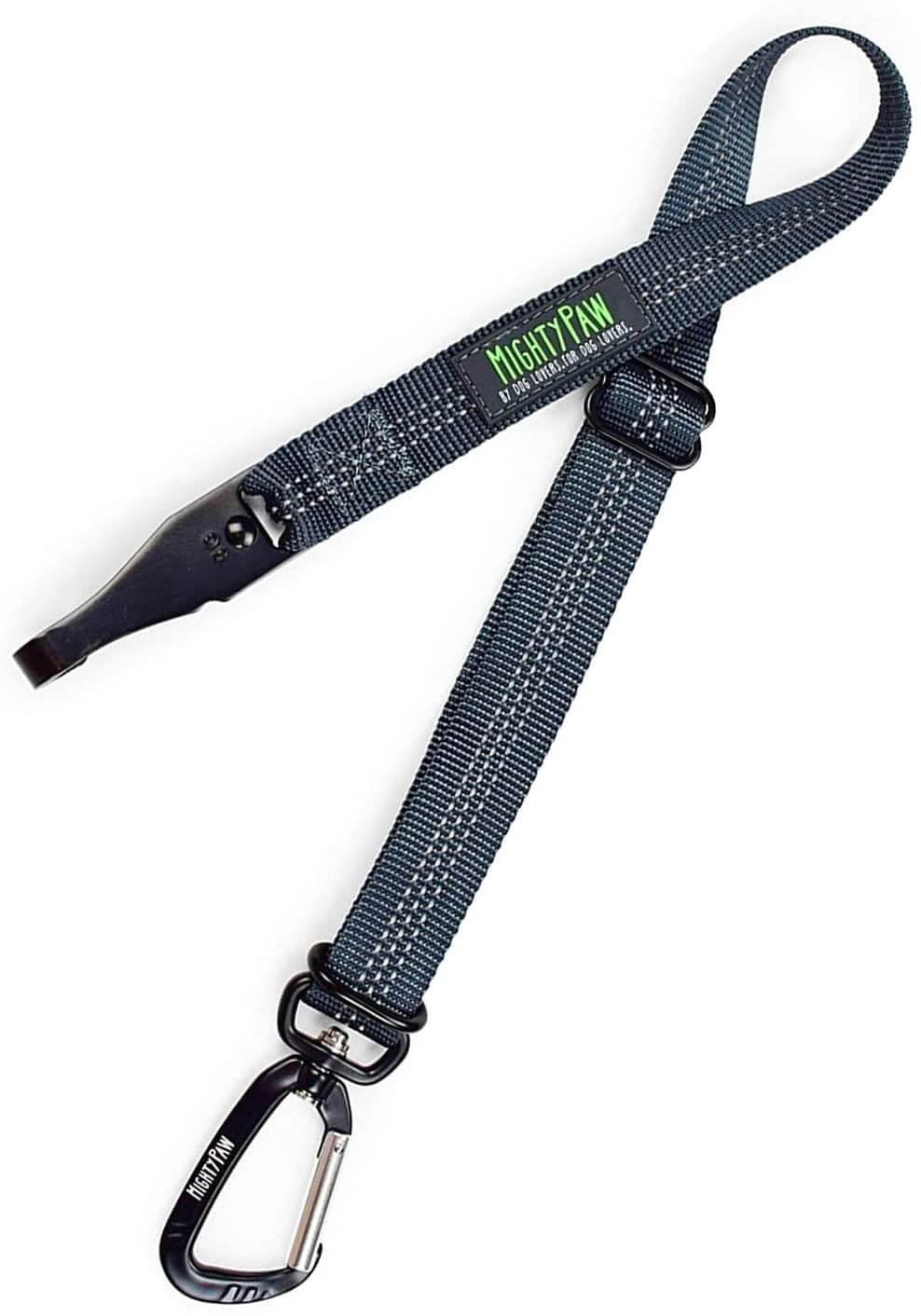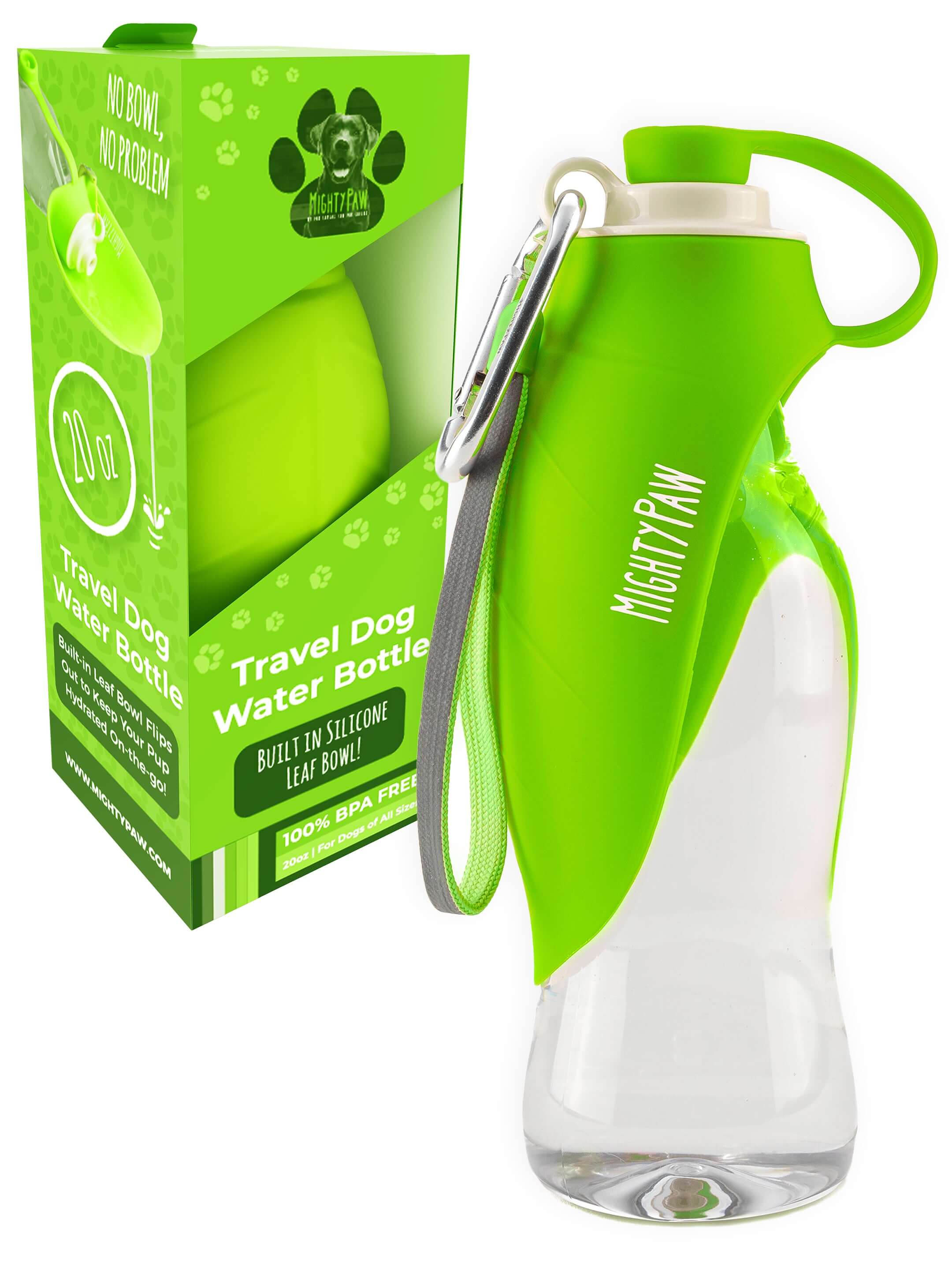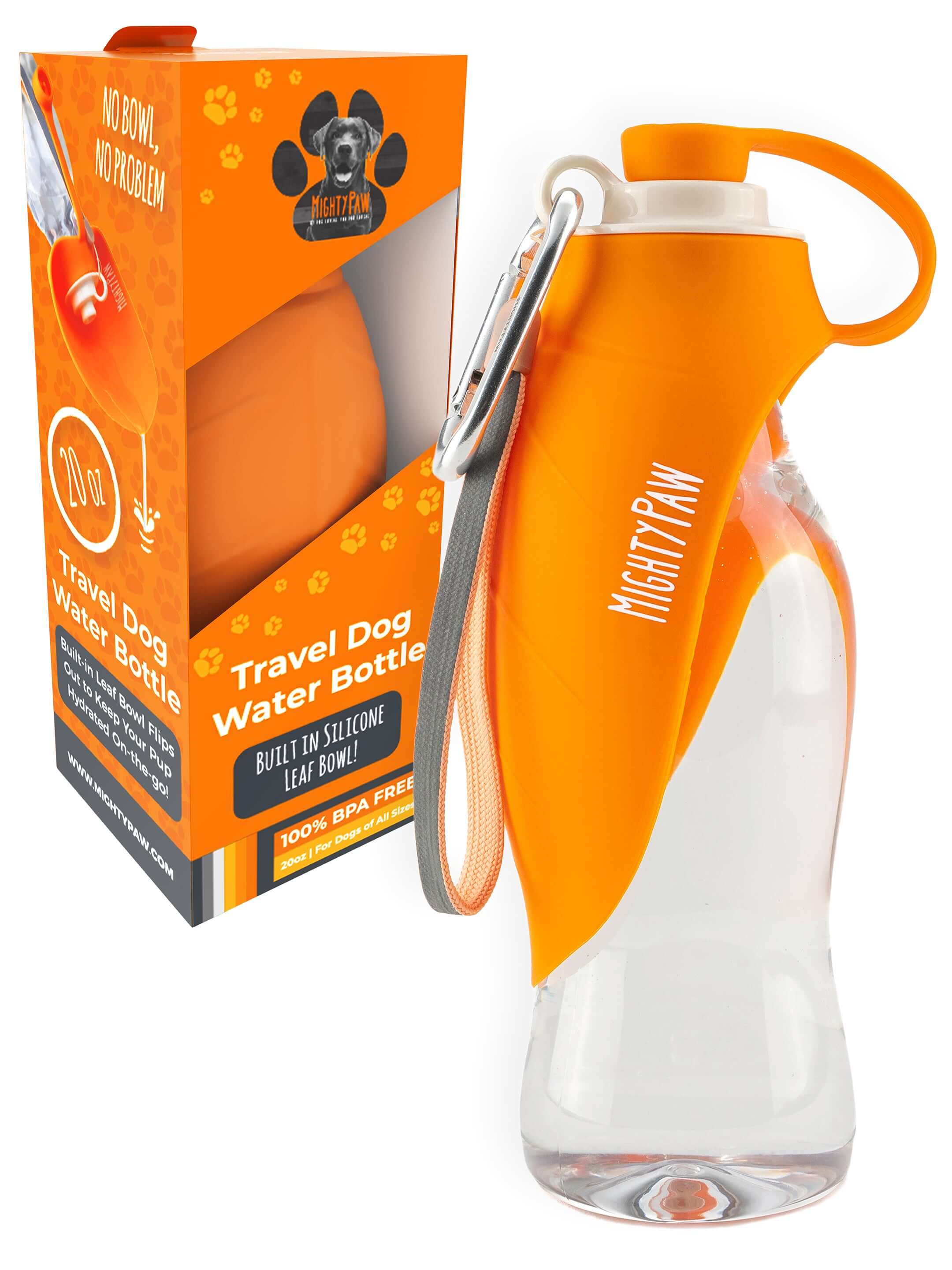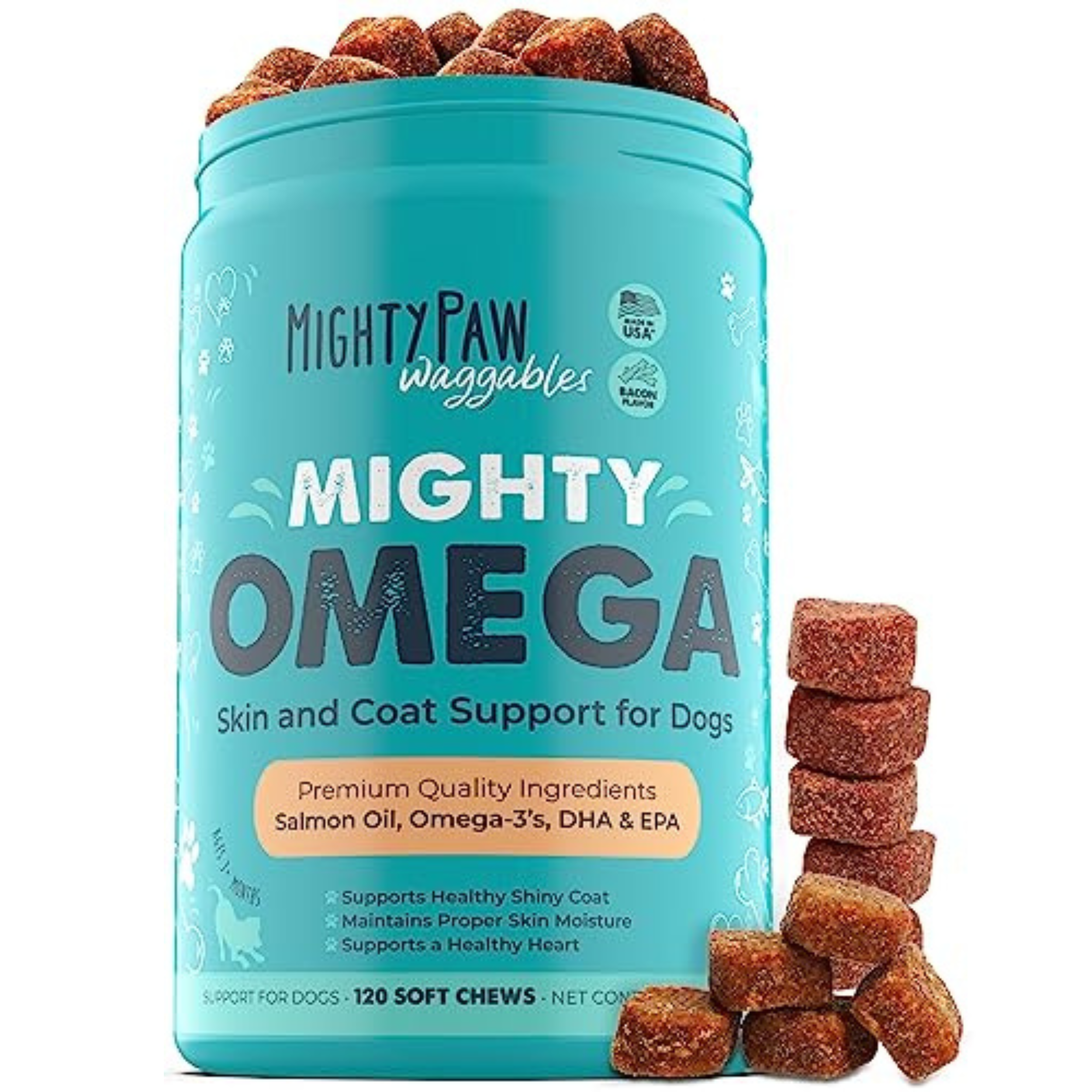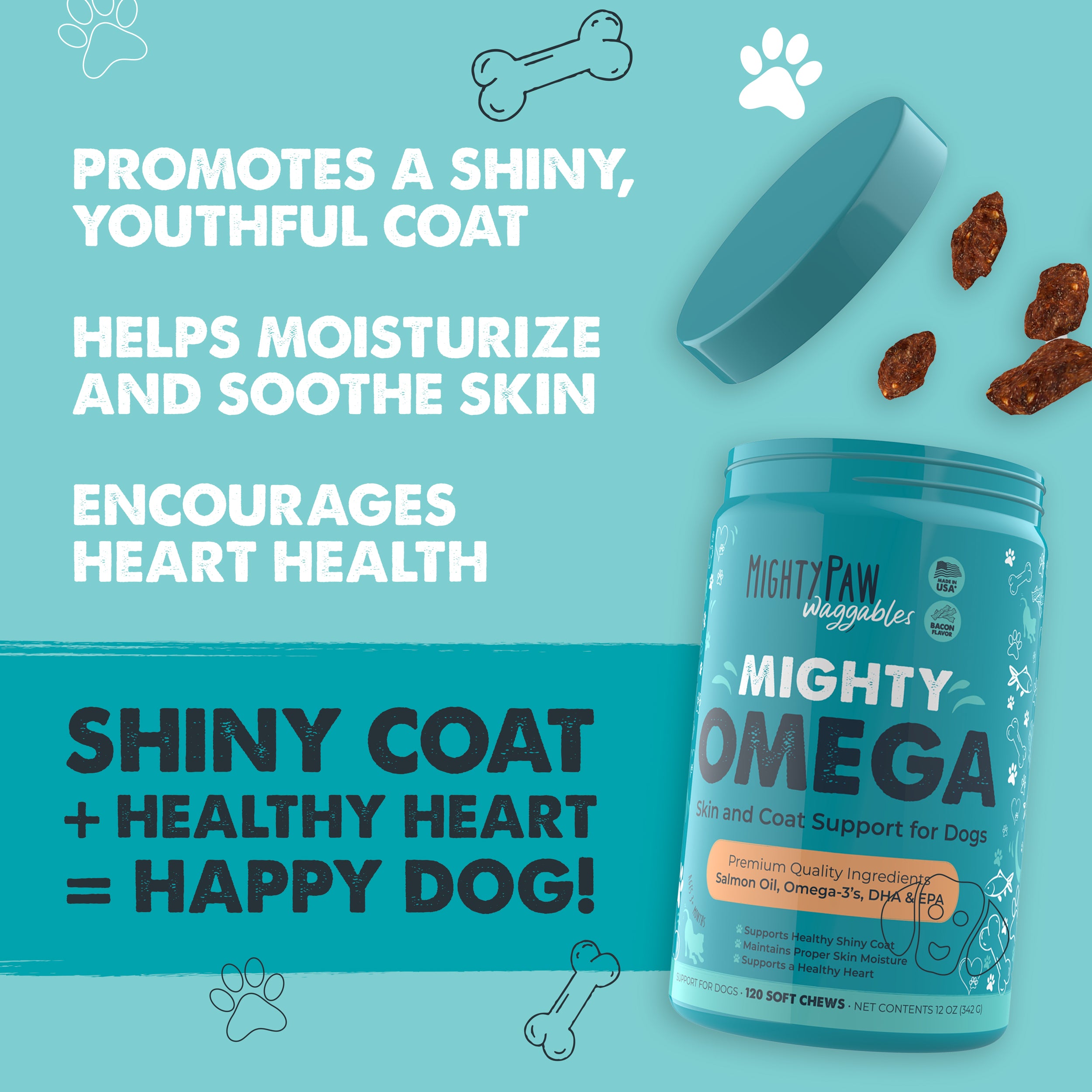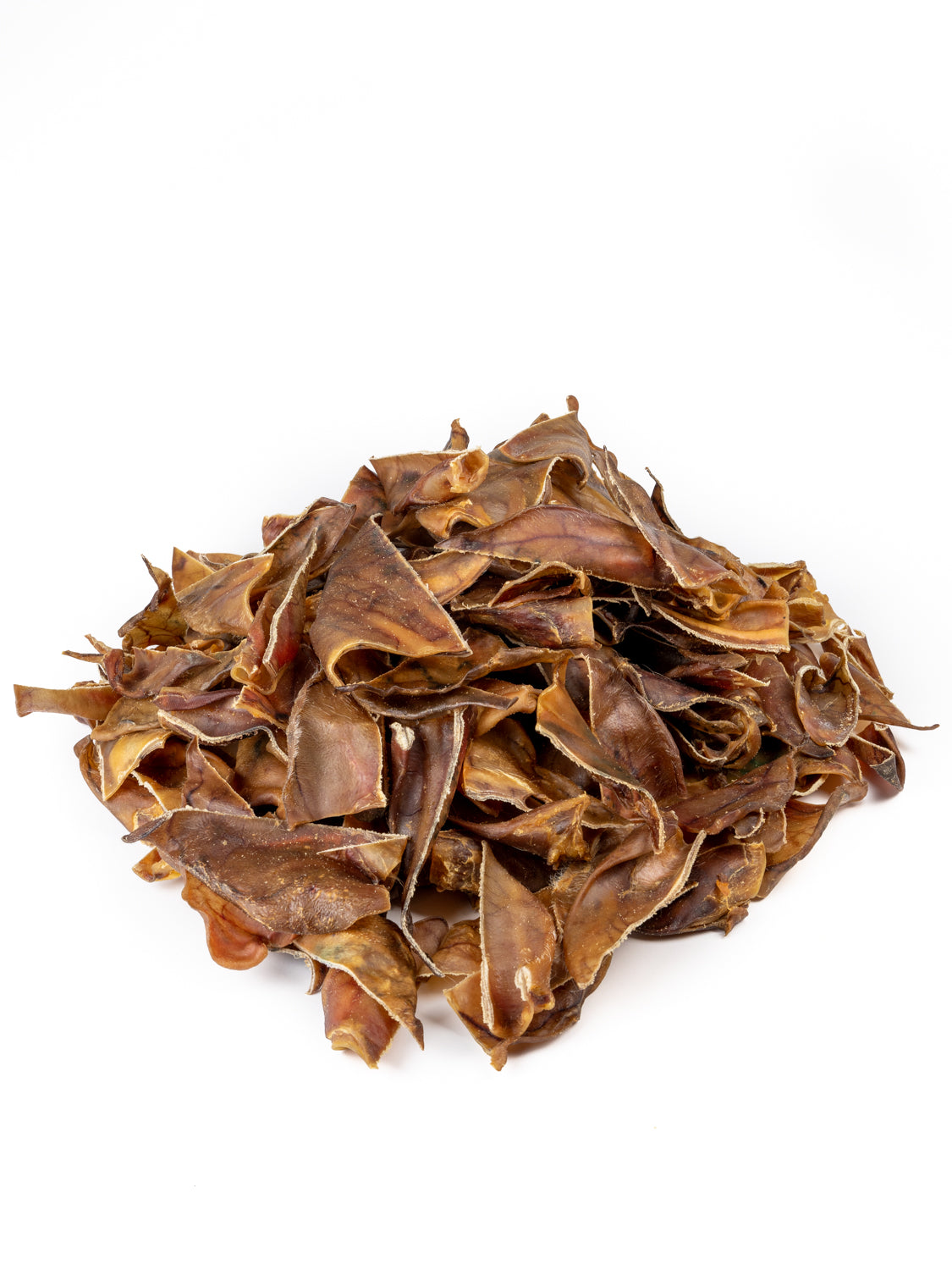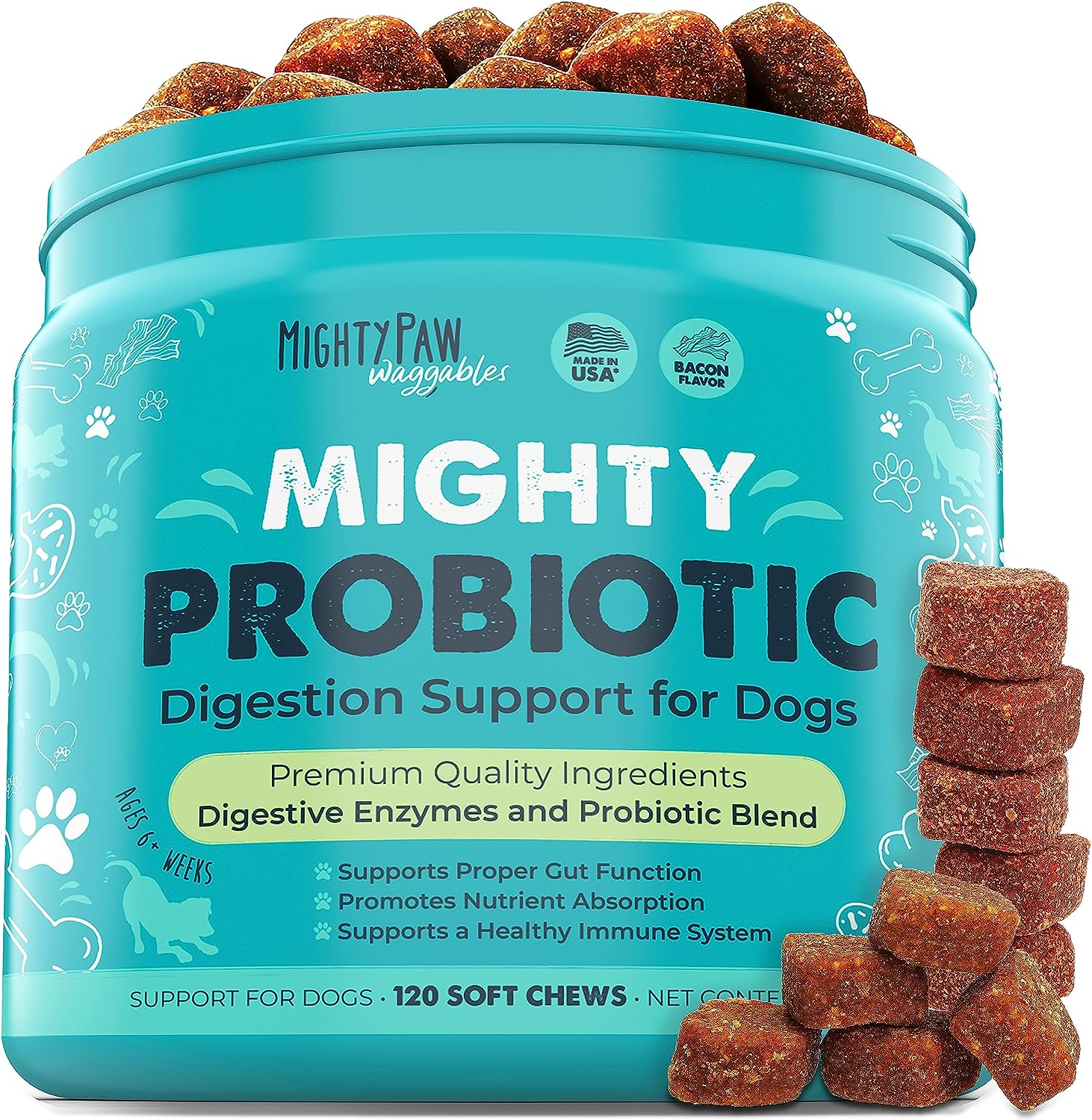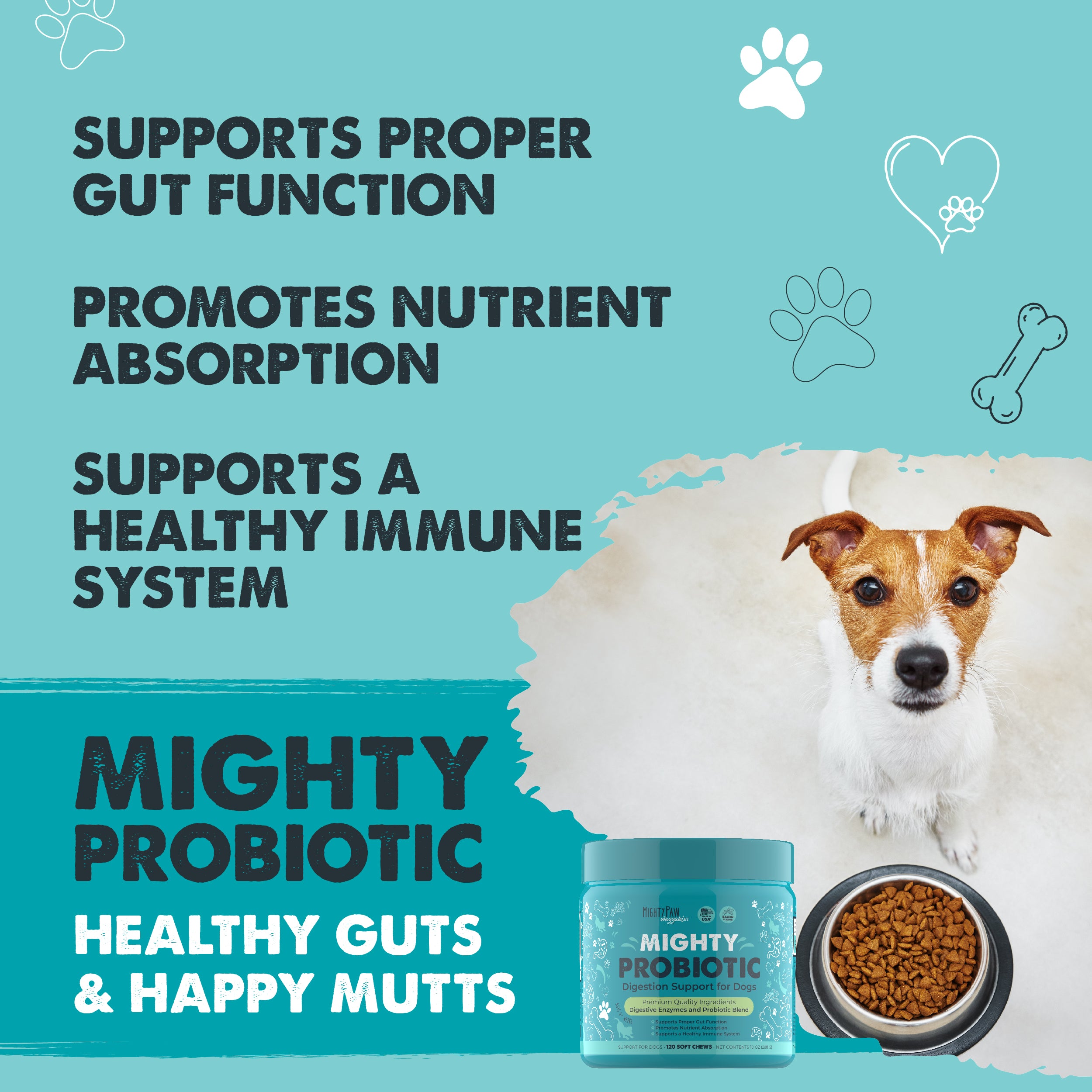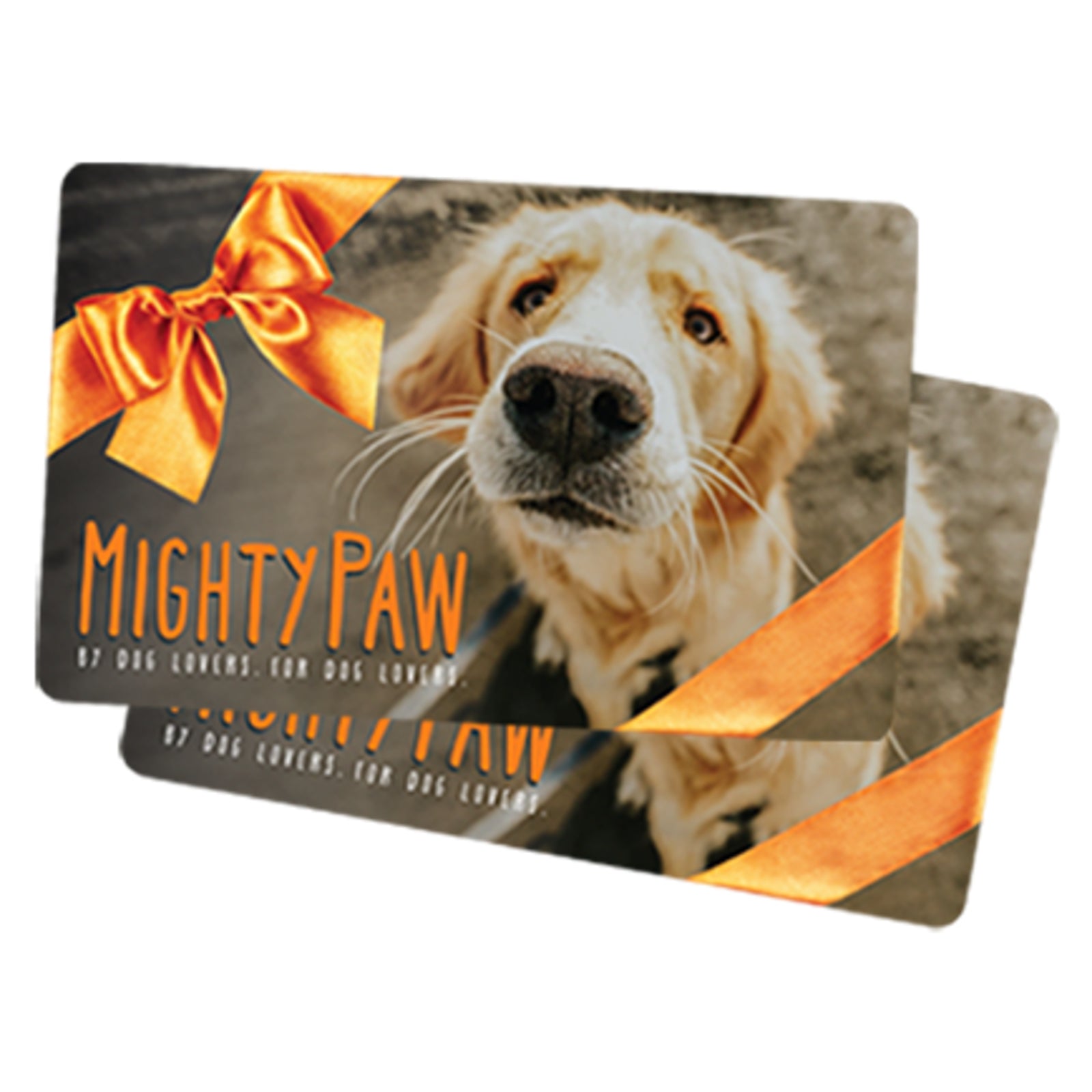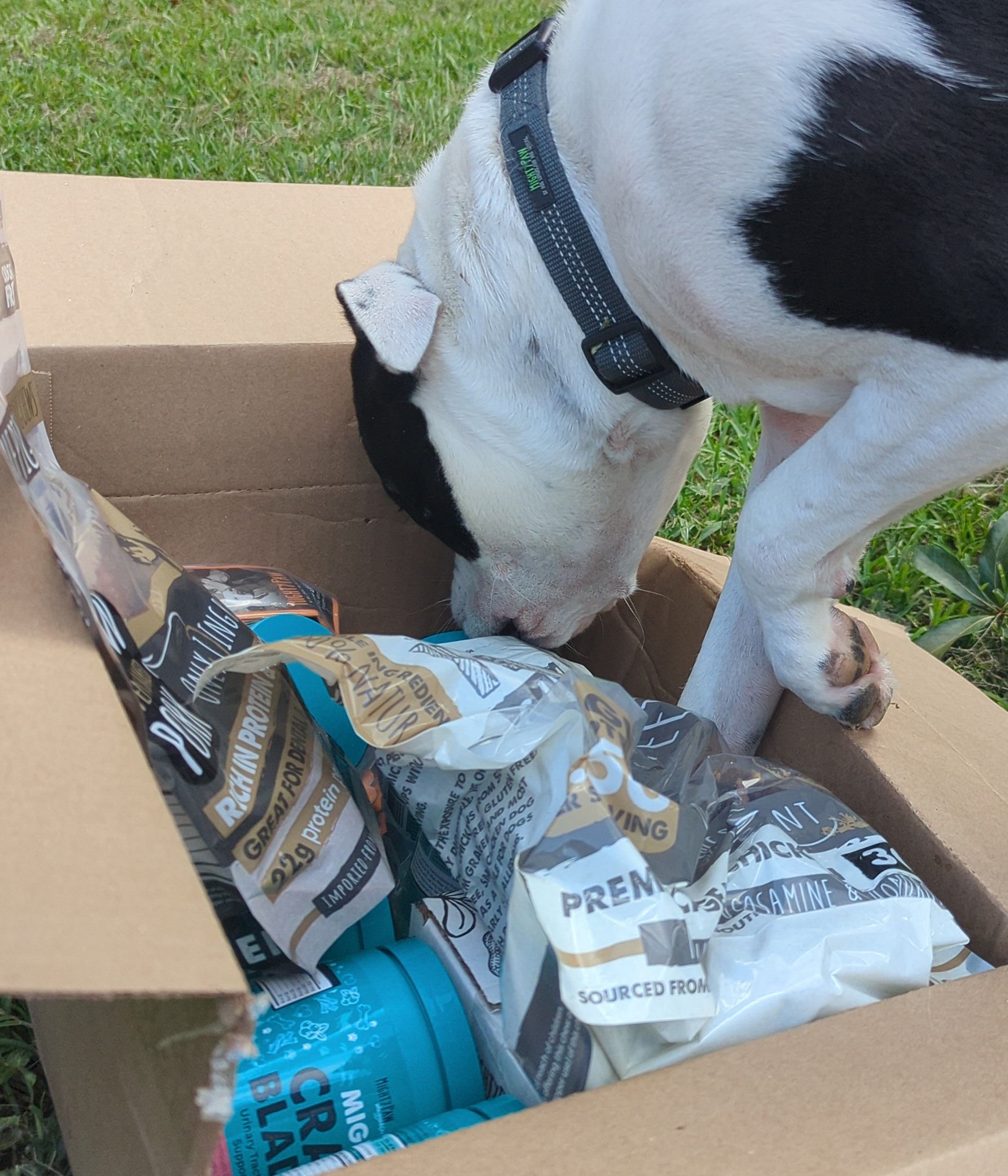Is your dog excessively paw-licking and scratching, suffering with irritated, inflamed skin, showing unusual hair loss, or having frequent ear and skin infections?

If you answered yes, unfortunately, you're not alone. But the Mighty Paw team is here to help!
All of these issues can be signs of seasonal allergies.We know from our own Mighty Paw crew that seasonal allergens can come with the territory when you're out enjoying life with your dog. But our pups wouldn't want to miss our walks and adventures and neither would we!
That's why we took a deep dive into all things seasonal allergies. Here's what we all need to know to get on top of seasonal allergies and make sure our dogs can be their happiest, healthiest selves everywhere, every season!
First, what are the causes and types of seasonal allergies affecting dogs?
Every dog is different so understanding which types and the causes of allergies you're dealing with is the best place to start to find the right solution for your dog.
Causes of seasonal allergies in dogs
The main cause of seasonal allergies in dogs (humans, too) is exposure to environmental allergens such as pollen, mold spores, fleas, and dust mites. Dogs can be exposed to these allergens through their fur or skin, either when they go outside, as allergens are carried inside, or in the case of dust mites, from any and all soft surfaces in your home.
When you think about how close to the ground dogs are and how their shoeless paws and furry faces act like swifters with every step and sniff, it's no surprise they're magnets for pollen and all kinds of allergens.
Common types of allergies in dogs
- Pollen allergies are one common allergen many dogs share to some degree, as a dog's body reacts to certain types of tree, grass, or weed pollens. Spring, summer, and fall all have their own versions of pollen allergens when your dog's allergy symptoms can include inflamed, itchy skin, eyes, and ears.
- Flea allergy dermatitis is a completely different kind of seasonal allergy, caused by an allergic reaction to flea bites. It often worsens in the warmer months when fleas are most active, but of course, fleas are highly contagious whenever they're present and frustratingly hard to get rid of.
- Mold allergies increase as mold spores multiply during the wet seasons of spring and fall.
- Dust mite allergies are year-round but can worsen during the winter months when dogs spend more time indoors and exposed to dust mites on every soft surface. That includes everything from your dog's dog bed to your bed, to upholstered furniture, throws, and rugs.
And what about atopic dermatitis (atopy)? What even is that? Atopic dermatitis is a genetic condition with a tendency to react with significant skin irritation, redness, itching, and swelling when triggered by common allergens.
Consulting your vet: Be sure to contact your veterinarian as soon as possible about your dog's seasonal allergies if your dog is exhibiting any signs of distress.
(In advanced situations, treatment with your veterinarian may involve antihistamines or allergy shots to reduce itching and inflammation while you introduce nutrition and environmental modifications to address the root cause of your dog's allergic response.)

5 ways to help your dog through allergy season
Fortunately, there are several steps you can take to help prepare for and manage seasonal allergies.
1) Regular brushing, bathing, and paw/face cleaning.
The first step is to keep your dog clean and well-groomed with regular brushing and bathing. This will help get rid of any allergens that may be trapped in your dog's fur and on your dog's skin, as well as any debris or dirt.
You don't always have to give your dog a full bath - nor should you! A washcloth for your dog's face or a paw soak with a couple inches of water in the tub or quick paw rinse right after you come inside go a long way to keeping allergens off your dog and out of your home. Even a fast paw wipe with a fragrance-free grooming wipe as you come inside keeps pollen outside.
2) Avoid walks in intensely pollen-heavy areas.
If your dog is suffering from pollen allergies, try to avoid taking walks on days when the pollen count is high or in high grass or heavily treed spots. Instead, opt for indoor activities like letting your dog enjoy a treat-stuffed toy or a frozen lick pad with dog-friendly peanut butter smeared on it or limit your walks to harder surfaces with more air and light.
It's also a good idea to keep your dog from exploring piles of damp leaves in fall that host mold spores (not to mention ticks). Your dog may pull you towards the leaves but he/she will definitely thank you for steering away from those itch-infested piles!
3) Treat your environment.
Keep your home free of allergens as much as possible. Vacuum regularly, dust often, and wash all bedding in hot water to reduce the amount of dust mites. (We've done the research on dust mites so you don't have to. Trust us, they're everywhere and gross!)
A bit of extra cleaning is worth it for all members of your household to make a healthy dent in the dust mite population in your home. Even if you keep the cleanest of homes you most likely have dust mites (sorry to break it to you!) so continual cleaning goes a long way for allergy sufferers.
It also helps to install air filters throughout your home to remove any pollen or mold spores from the air. And just as you're wiping paws to keep bacteria and allergens outside, you may want to remove your shoes when you come inside too. We love the outdoors but it might give your dog some allergy relief to keep the outdoors, outdoors!
4) Use natural, allergen-removing shampoos.
Especially anytime your dog is coming into more contact with seasonal allergens, you'll want to use special, all-natural shampoos made specifically for dogs to get all those allergens off their coat and skin. Look for shampoos without chemicals and artificial fragrances that can further irritate your dog's skin and trigger topical allergies.
Natural shampoos with ingredients like lavender and aloe vera can help soothe the skin and reduce itching as well as any other allergy symptoms to maintain skin health and keep your dog feeling clean and comfortable.
5) Give your dog immune-boosting foods and supplements.
Many foods and natural supplements can help boost your dog's immune system and support their bodies’ response to seasonal allergies from the inside out. The same foods and nutrient supplements also give your dog a good base for joint health and overall wellness and energy. Win, win!
Which foods and supplements are good for dogs with seasonal allergies?
Foods high in omega-3 fatty acids or that contain antioxidants like quercetin or turmeric can strengthen your dog's nutritional foundation and support their response to seasonal allergies. These can include:
- Fresh fruits and vegetables: Fresh fruits and vegetables are packed with vitamins and minerals that can help promote a healthy immune system.
- Herbs and spices: Herbs such as turmeric and ginger, as well as other spices like cinnamon or oregano can also encourage a healthy inflammation response and soothe irritation associated with allergies.
- Fish: Coldwater fish such as salmon or mackerel are a great source of omega-3 fatty acids that can help support inflammation and irritation responses associated with allergies.
- Bone broth: Bone broth is high in vitamins and minerals that can help support a healthy immune system response to allergy symptoms.
Key nutrients like Omega-3s, quercetin, and turmeric are also available in supplements to make it easy to be sure your dog is getting the solid immune base needed to help with allergies.
What is Omega-3 and why is it good for seasonal allergies?
Omega-3 fatty acids are essential nutrients found in certain foods and supplements that have many health benefits for dogs and humans. Omega-3 fatty acids are most commonly found in coldwater fish (salmon, for example) but can also be found in some plant oils like flaxseed oil, soybean oil, walnut oil, and more.
They can help to soothe discomfort from inflammation and irritation associated with allergies. And help support healthy skin and coat, as well as keeping the immune system functioning properly.
Incorporating foods that contain omega-3 fatty acids or an omega-3 supplement into your pup's diet can help keep your pup well in allergy season and year-round.

What is turmeric and why is it good for your dog's allergies?
Turmeric is a common spice and antioxidant that can help support a healthy inflammation and irritation response associated with allergies. Studies have shown it to boost your dog's immune balance and help prevent issues as varied as joint disease and cancer.
When used as a supplement, turmeric can help reduce the effects of inflammation and irritations associated with allergies. It can also strengthen your pup's immune system to help ward off future allergy attacks.
Adding fresh or powdered turmeric to your pup's food is an easy way to get its benefits but you may want to talk to your vet to ensure the right amount for your dog's size and breed.
What is quercetin and how can it help your dog's allergies?
Quercetin is a bioflavonoid found in many plants, fruits, and vegetables that has powerful anti-inflammatory and antioxidant properties. It's been shown to be effective at reducing inflammation associated with seasonal allergies in dogs, as well as helping to soothe itching and scratching. Quercetin can also help boost the immune system and reduce the overall severity of allergies.
Incorporating quercetin into your pup's diet with whole foods and/or naturally-sourced supplements can be an effective way to help manage seasonal allergies and keep your dog healthy year-round.
Natural remedies for dog allergies
There are also several natural remedies you probably already have in your kitchen you can use to help manage your dog's allergies and keep your home clear of allergens without allergy-causing chemicals.
Coconut oil (applied topically), for example, has antibacterial/anti-inflammatory properties and can soothe your dog's skin and paws. Also, organic apple cider vinegar (ACV) is a bit of an all-purpose health hero. ACV rinses (diluted with water) are a proven antifungal/antibacterial and powerful tool against yeast infections and allergens causing itchy paws and skin.
Vinegar diluted in water makes a great cleaner and dust mite/allergen eliminator around your home without leaving chemical residue on surfaces like floors that can trigger allergic reactions in your dog.

How Mighty Immune + Itch Chews can help
The best support to help dogs with seasonal allergies is prevention. That's why we're proud of our vet-backed Mighty Immune and Itch supplement chews to support your dog's immune system and itchy skin, paws, and ears.
Mighty Immune + Itch is made in the USA and created with key natural, immune-supporting, normal inflammatory response ingredients: Omega-3 fatty acids, turmeric, and quercetin, plus bromelain (found in pineapple) and pumpkin for more antioxidant cell protection. All so you can be sure your dog is getting the best nutrients.
Targeting seasonal allergies is an ongoing process, but taking a few simple steps can help get you and your dog on top of seasonal allergies and out enjoying life together!

